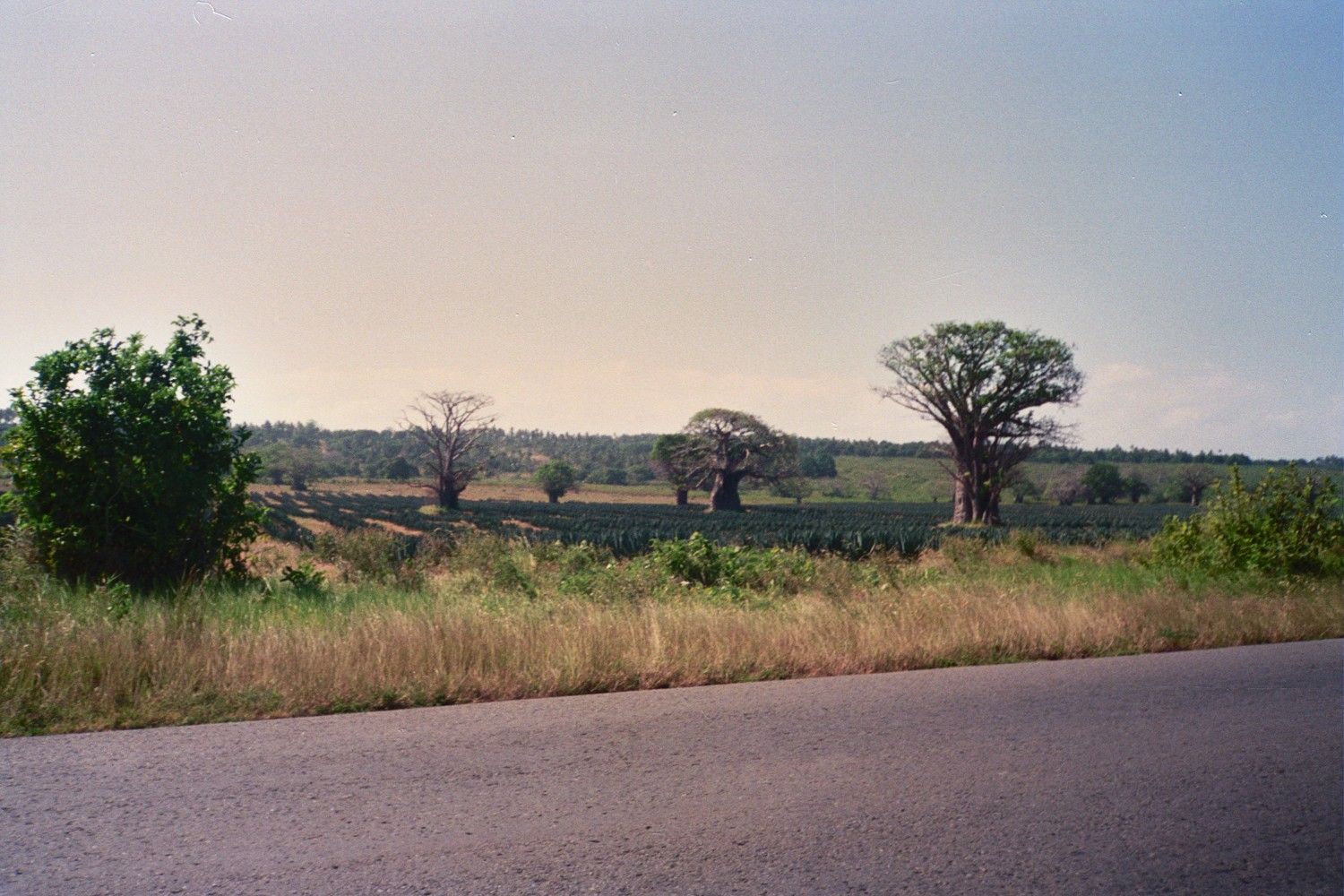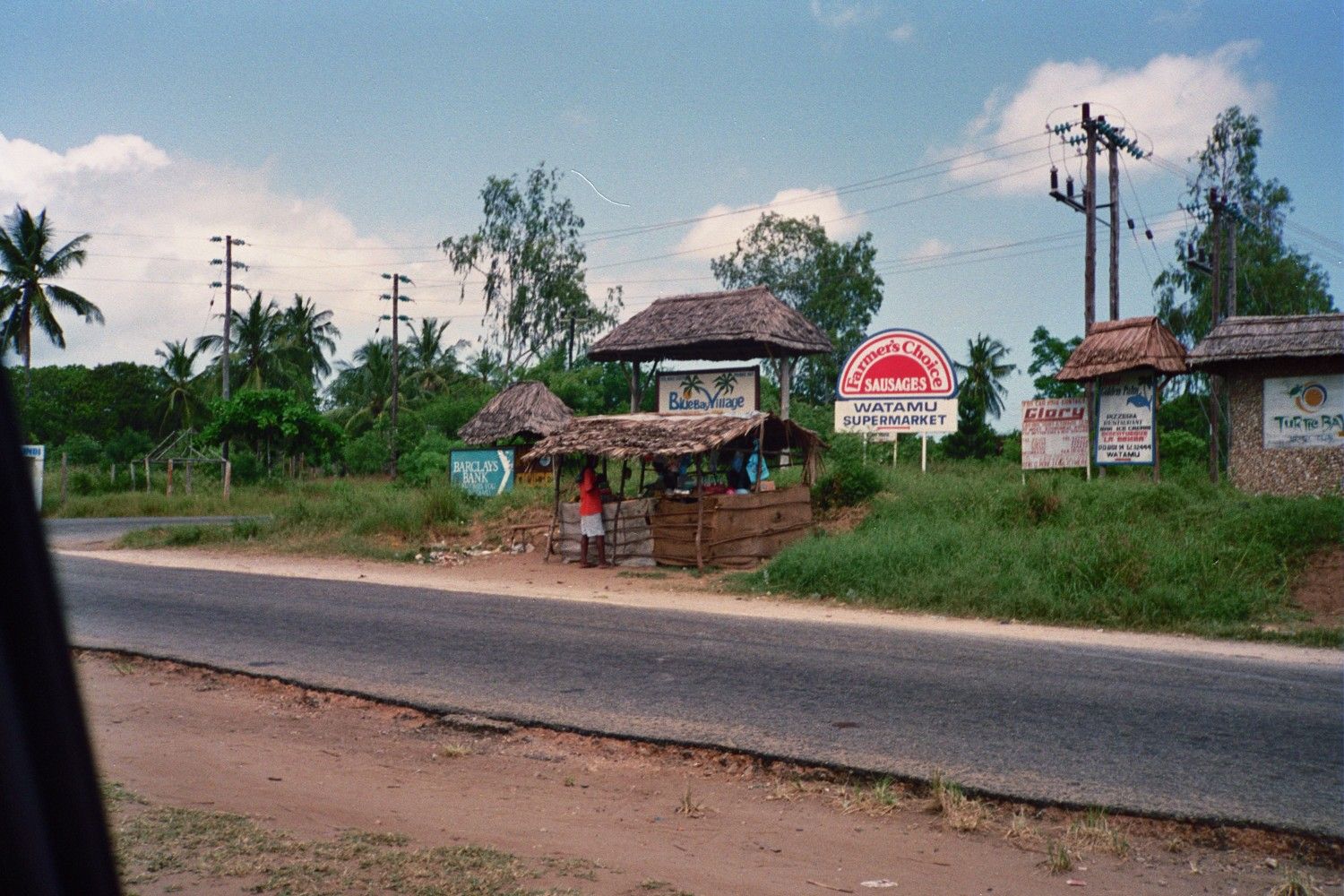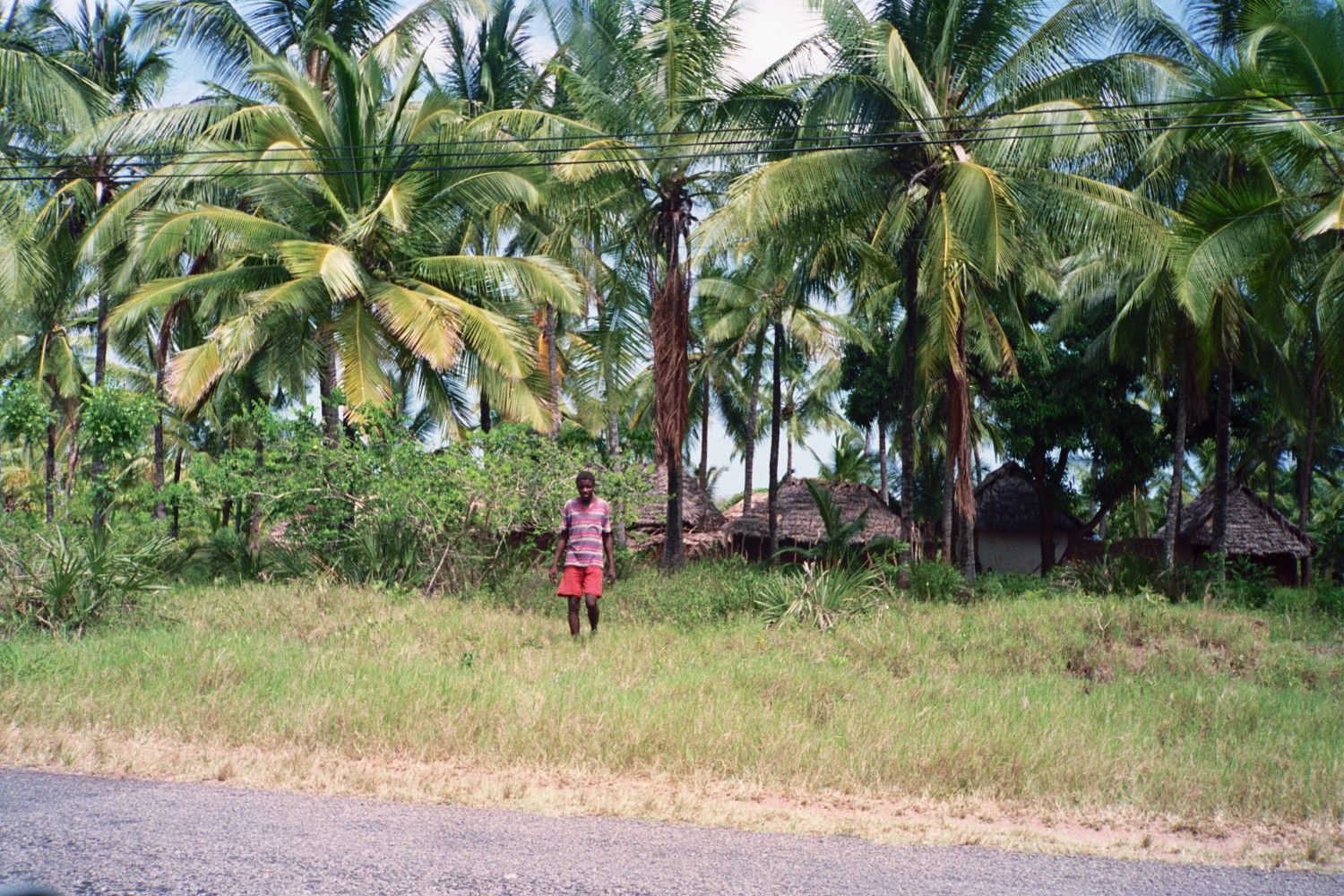A Second Letter To Friends About Living In Kenya
Dear friends,
Again, greetings from Africa.
A lot of people didn’t seem to get the first letter I sent in late October. The mail from Africa is not all that consistent. If you didn’t get a copy send a note to my mom’s address – XXXXXXX – and I’ll get a copy to you this summer.
So, what’s it like working in a third world country? Kind of like walking up an icy hill carrying a tray of eggs and getting pummeled in the testicles by a fire hose. Well, maybe not that bad, but I’ve never worked so hard and accomplished so little in my life. Its not just the difficulty in finding trained, experienced staff, its also that the environment conspires to work against efficiency. For example, we had requested our bank to transfer $35,000 from our local dollar account to our local Kenya shilling account so we could pay our local creditors. This request was made December 31. $17,500 was transferred on January 7 (eight days later) and the other $17,500 transferred until January 31. This was between two accounts in the same bank.
We spent a lot of unnecessary hours trying to figure out why the bank kept warning us that we were overdrawn on our Kenya shilling account, and then calling them to rectify the situation. Sometimes we’ll get hit by three or four of these external environmental mishaps a day. It’s a wonder any work gets done in this country. One of our biggest suppliers told us that we were their first major customer that did not expect kickbacks. And this is considered one of the best places in Africa to do business.
I’ve decided to leave Kenya March 31. Seven months of 70 plus hour work weeks without a strong feeling of accomplishment has left me a bit empty. I have no regrets about coming out here. It has been and continues to be an amazing experience. I still have very good feelings about the company and the people I work with. I’ll spend some time traveling through Southeast Asia and Australia and return to the States June 16 where I’ve supposedly got tickets to five first round World Cup matches in Pasadena. I start work for a small consulting company in Torrance, California on July 11. By the way, I’ll be looking for a place in the Manhattan/Hermosa Beach area around July 1. If you know of any openings, send a note to my mom’s address.
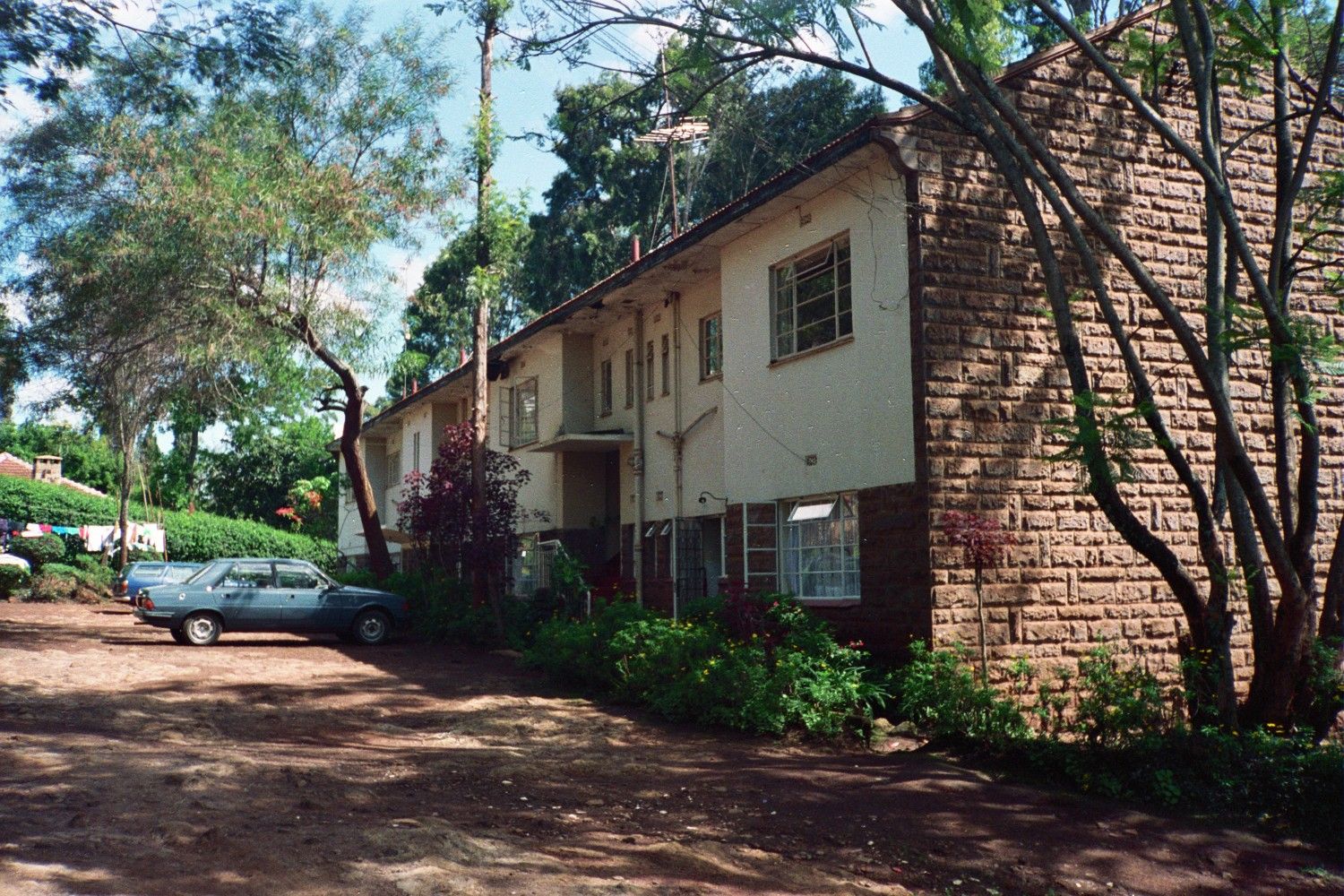
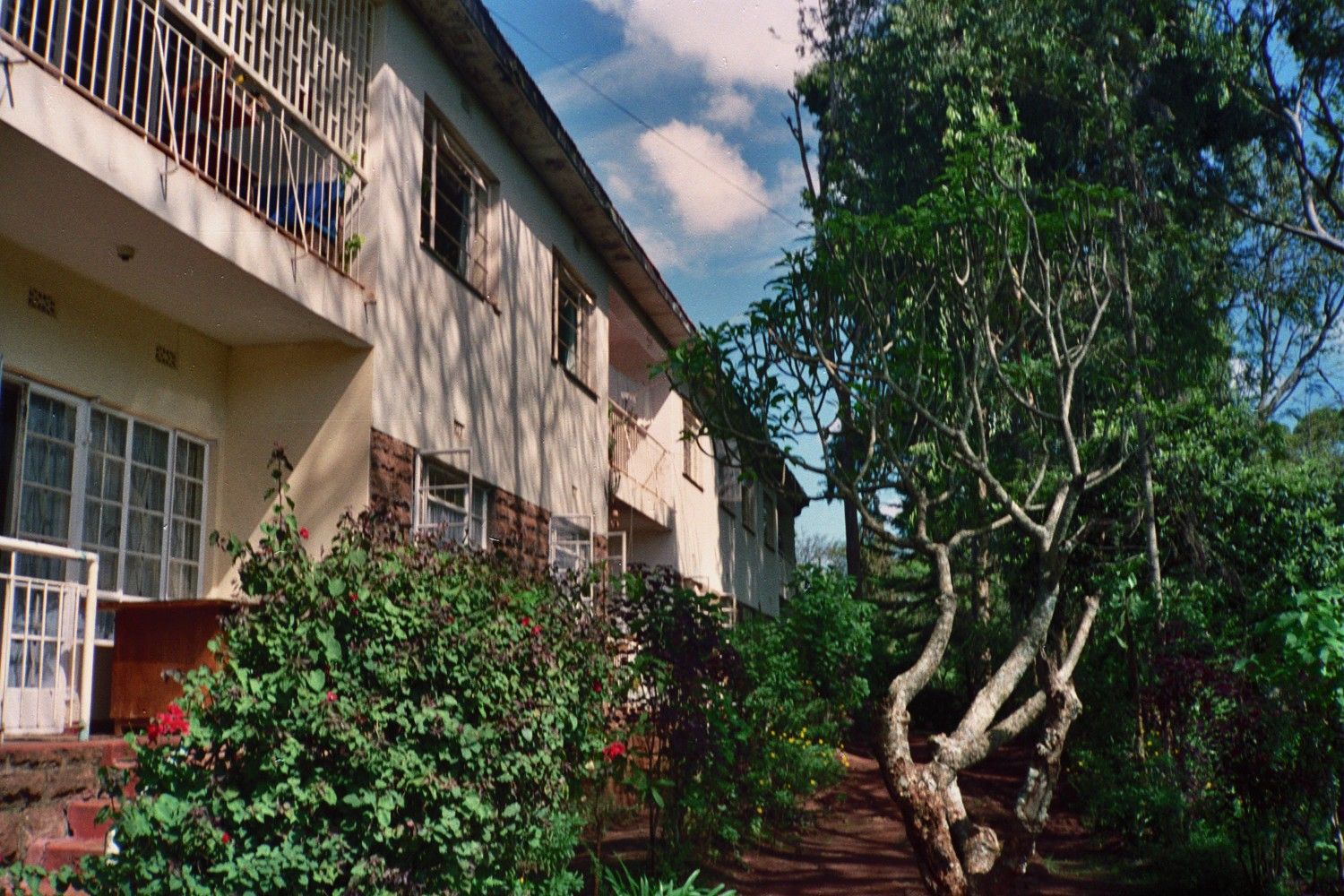
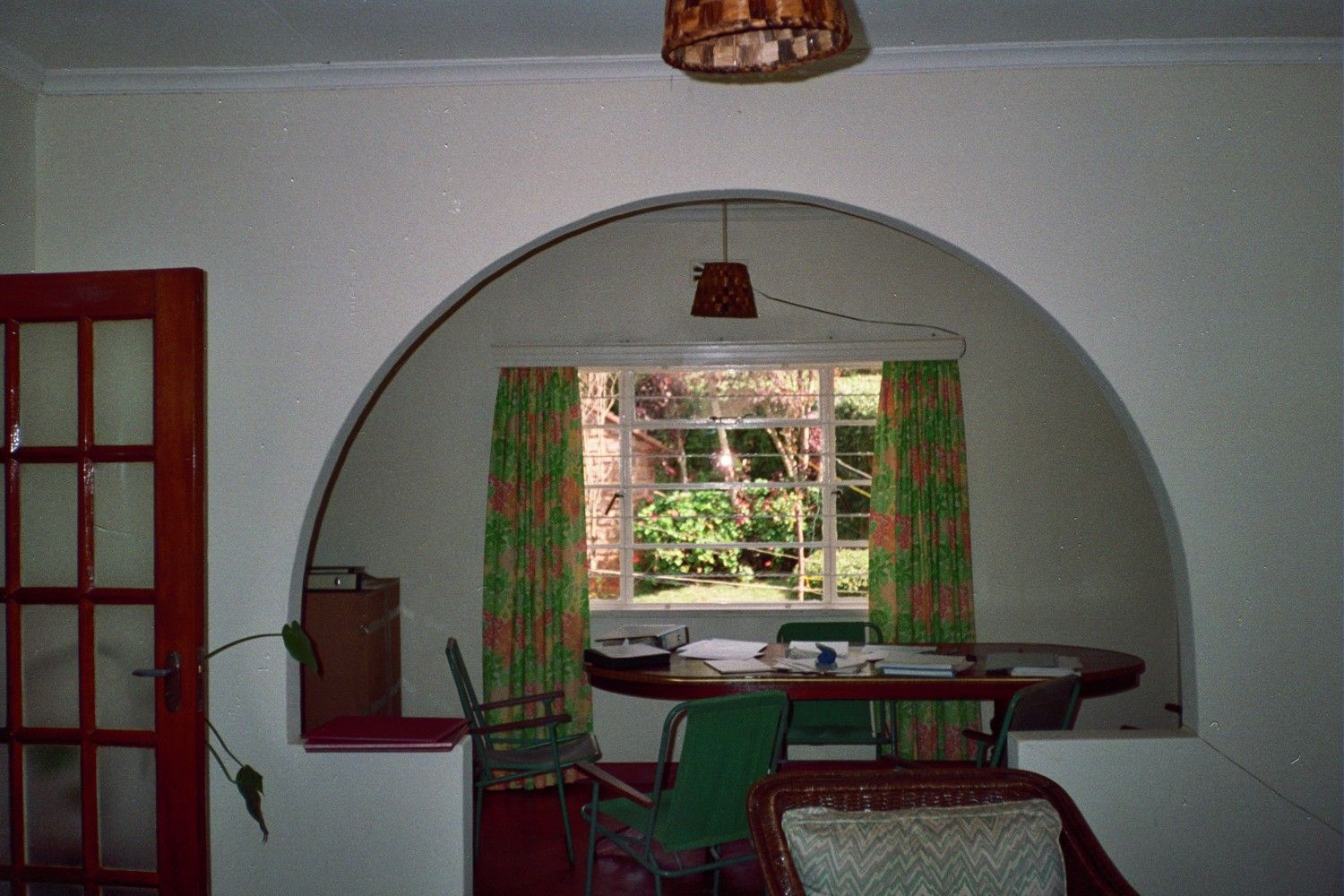
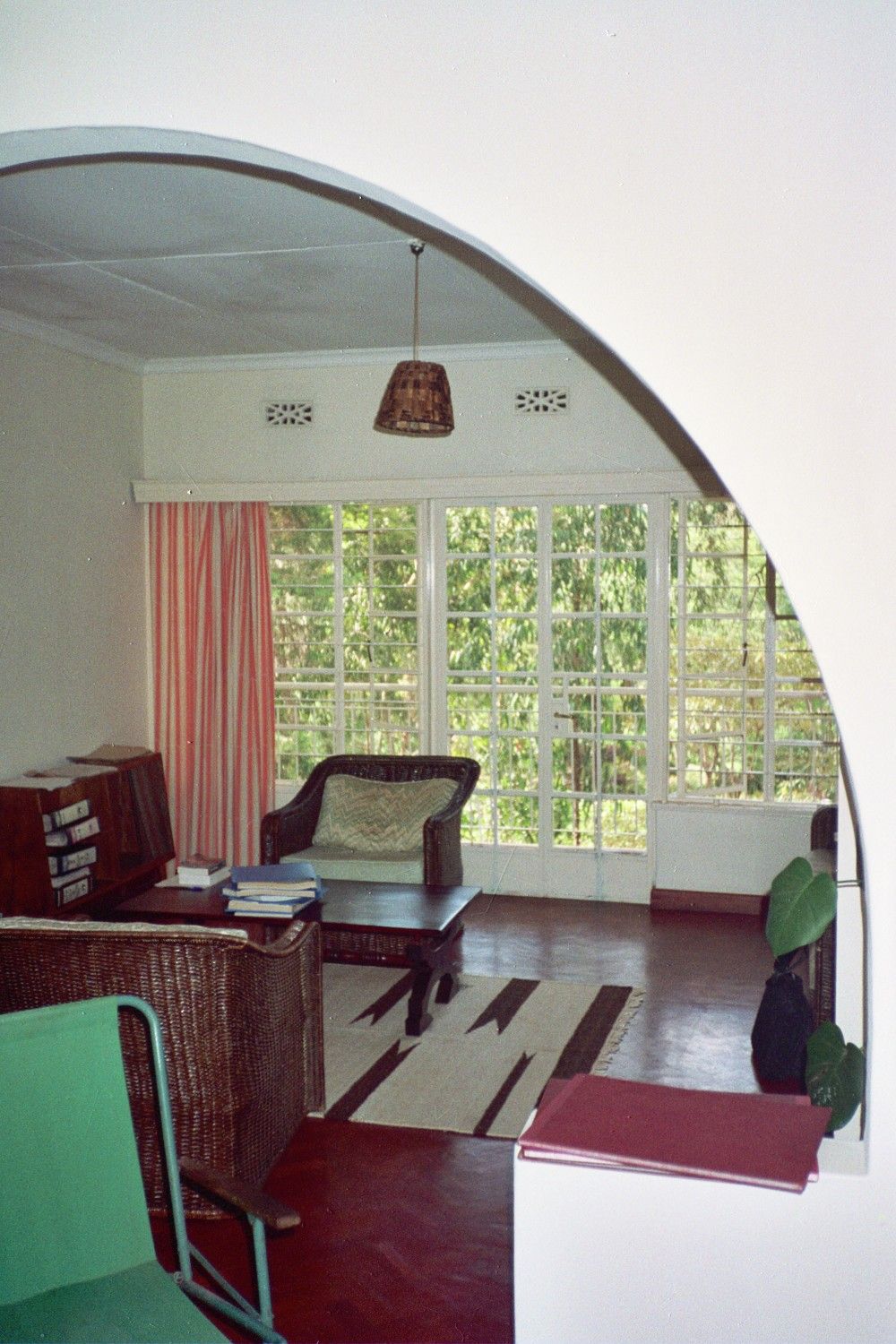
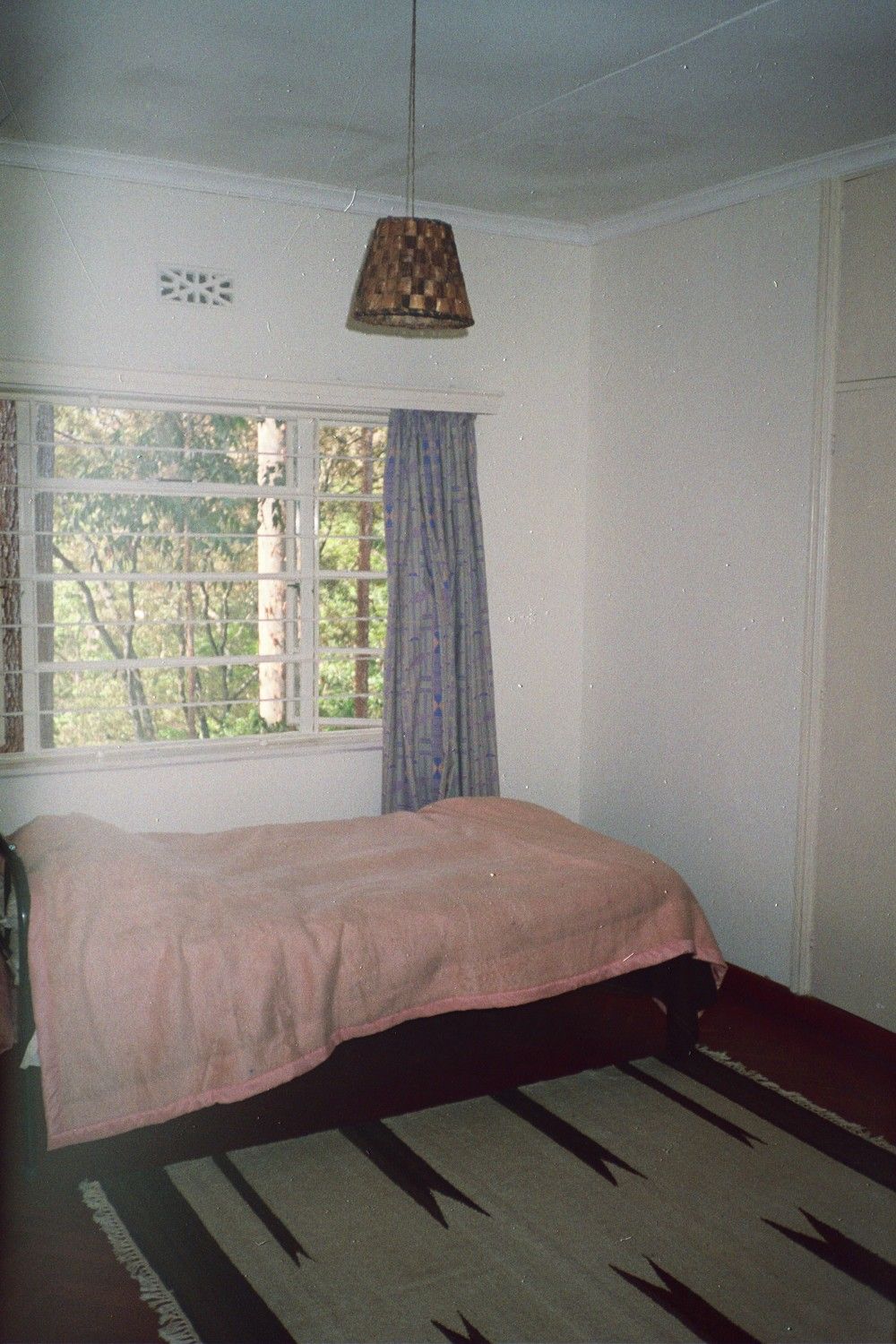
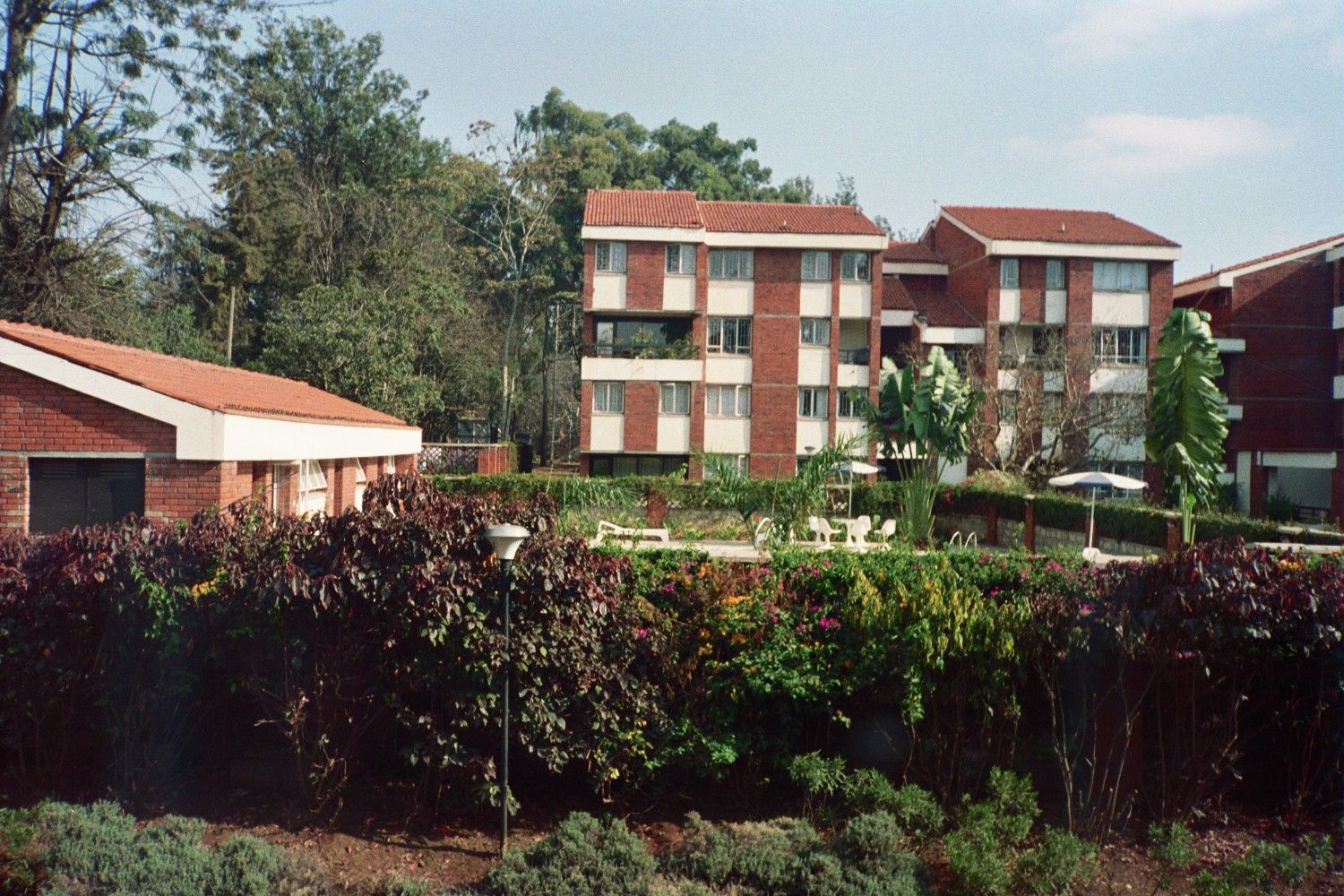
We run three camps for various UN operations in northern Kenya. One is near the Sudan border at a place called Lokichoggio, or Loki for short. I had a chance to visit it on Thanksgiving. We were chartering a plane to take food up, including turkeys, port, wine and cranberry sauce. USAID, a US government aid organization, has donated money to the World Food Programme (WFP) to supply food to Sudan. The catch is the WFP has to use Southern Air Transport (SAT) to drop the food in Sudan. SAT is actually the descendant of Air America, that pseudo-secret airline the US ran in Southeast Asia during the Vietnam War, made famous by the recent Mel Gibson movie. SAT is now based in Miami and runs a number of supposedly legitimate contracts in Latin America and Africa.
Our camp in Loki is actually for SAT, which is made up of a number of mostly American and British pilots and maintenance crews. Hence the flight up to the bush on turkey day. They drop pallets of food from the back of cargo planes onto designated targets in Sudan. There was a story of one Sudanese who got killed by a pallet of food as he was wandering too close to the drop site (an actual circle painted on the ground). I don’t think his friends appreciated the irony of his being killed by food meant to save lives.
I caught a small plane at 3:30 that afternoon. It was just me, the pilot and the load of food. We flew north from Nairobi over sharp green forested mountains, soft rolling hills, long brown empty plains and a huge dam which gave birth to a lake spreading throughout the bowels of a mountain. It was the first time the pilot had actually seen this dam, so we dove down at a sharp right angle to get a better view. The view was spectacular and the turn was as much fun as any roller coaster. After about two-and-a-half-hours we reached Loki.
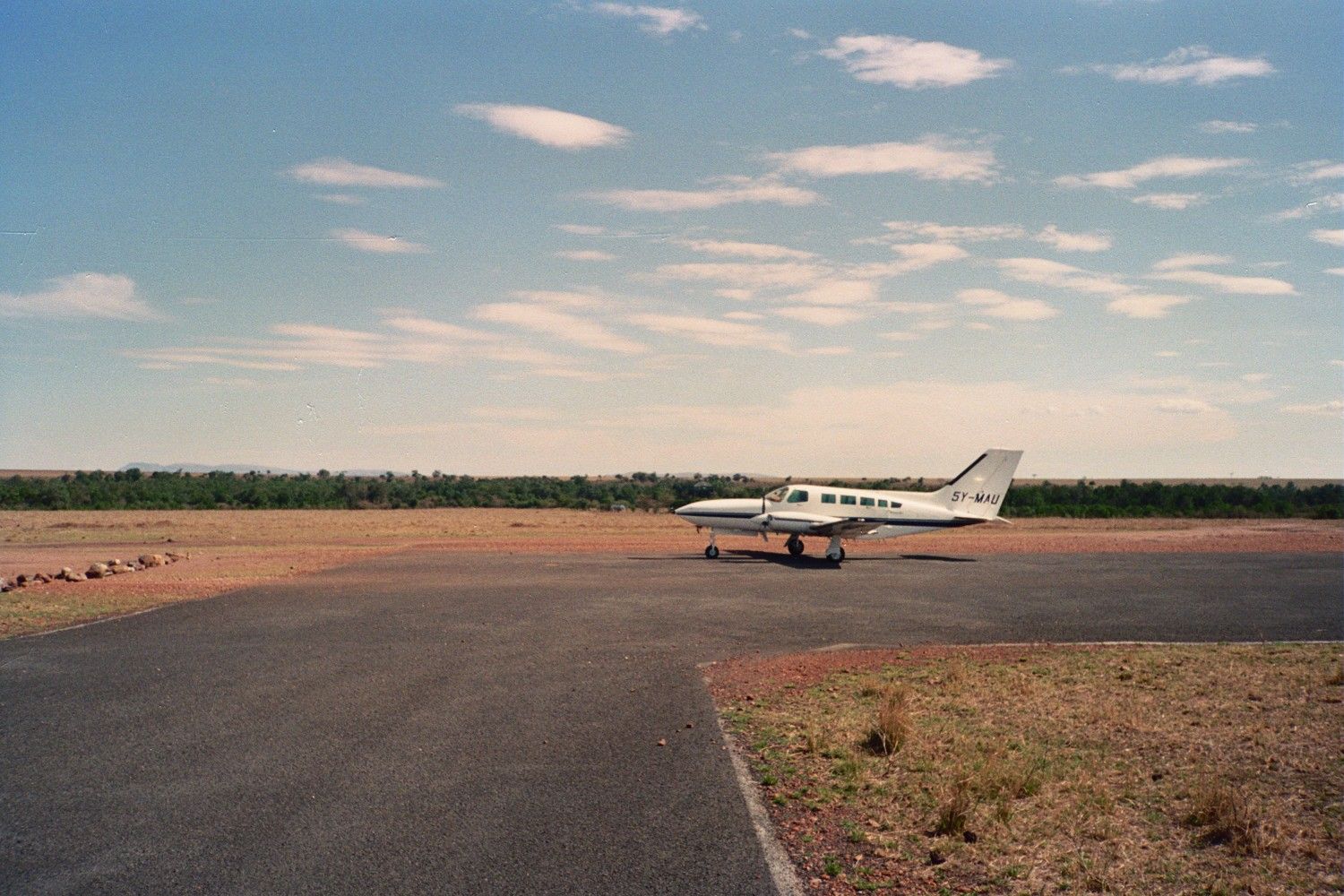
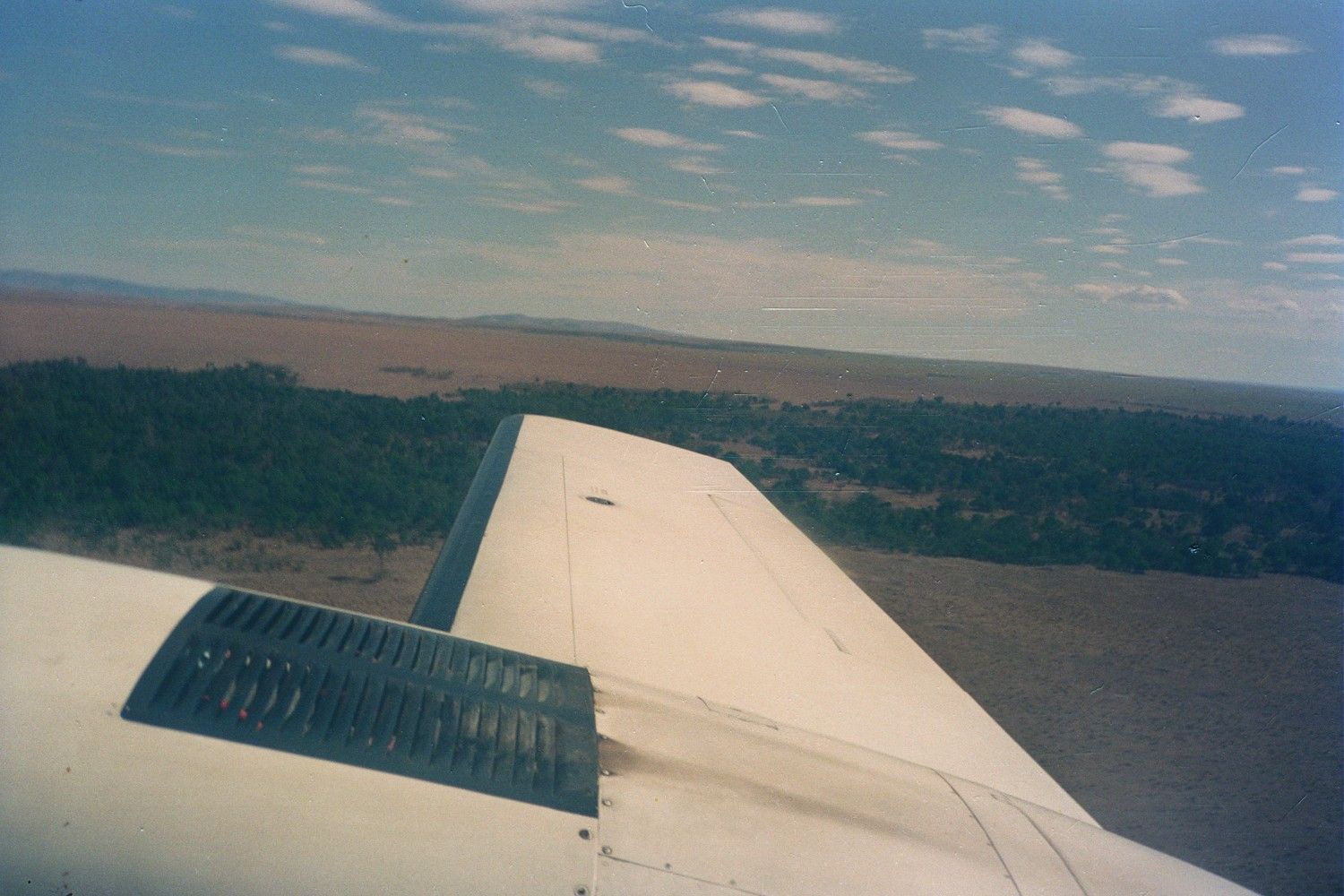
A couple of hills and miles of stark, dry plains filled with bushes and ever-present acacia trees, some large UN aluminum warehouses, a handful of tented and permanent settlements and one long dirt airstrip. Someone told me that ten or fifteen years ago this place was home to nothing but naked Turkana tribesmen and some missionaries. It is now a rapidly growing UN conclave. The civil war in Sudan made this a thriving center for aid agencies.
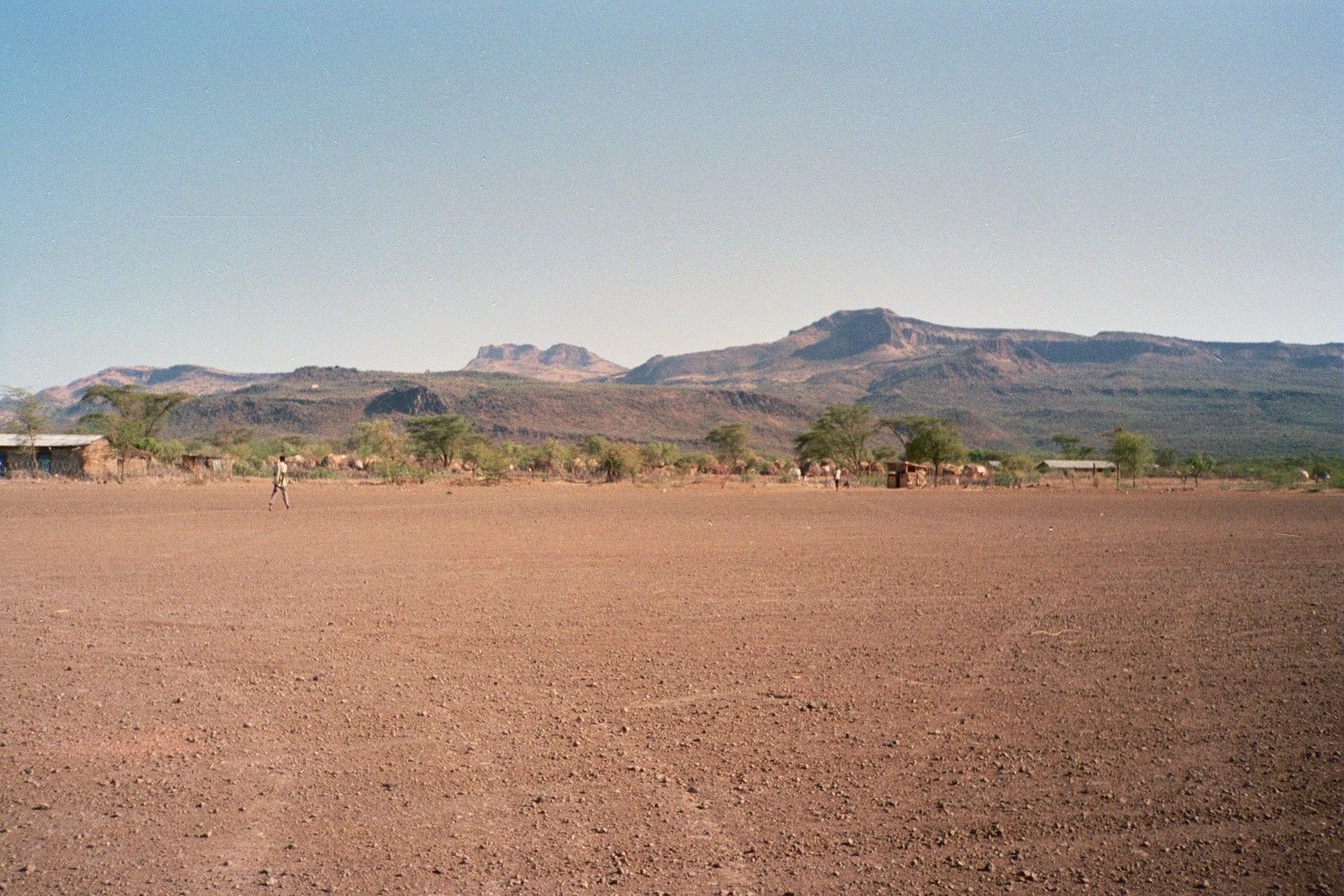
Our camp was a series of large tents and a couple of thatched compounds for meals and a video room. The food was amazing. It was as good as any Thanksgiving dinner I’ve had back home and the SAT staff all told me it was usually like that. I had gone up specifically to train the storeman on a refined inventory system. I spent the evening touring the camp, hearing some great stories from the SAT staff, working with the storeman and filming these amazing Turkana dancers the camp manager brought in with a portable Sony video camera. The dancers would sing, gyrate, roll in the dust, and pantomime universal stories of love, war, revenge and power in a language you couldn’t understand, but could appreciate by their movements and expressions.
The night ended around midnight as an impromptu staff meeting I had was interrupted by one of the pilots semi-coherently passing around glasses of port to the staff and telling everyone how wonderful life in general was. I doubt she was scheduled to fly the next day.
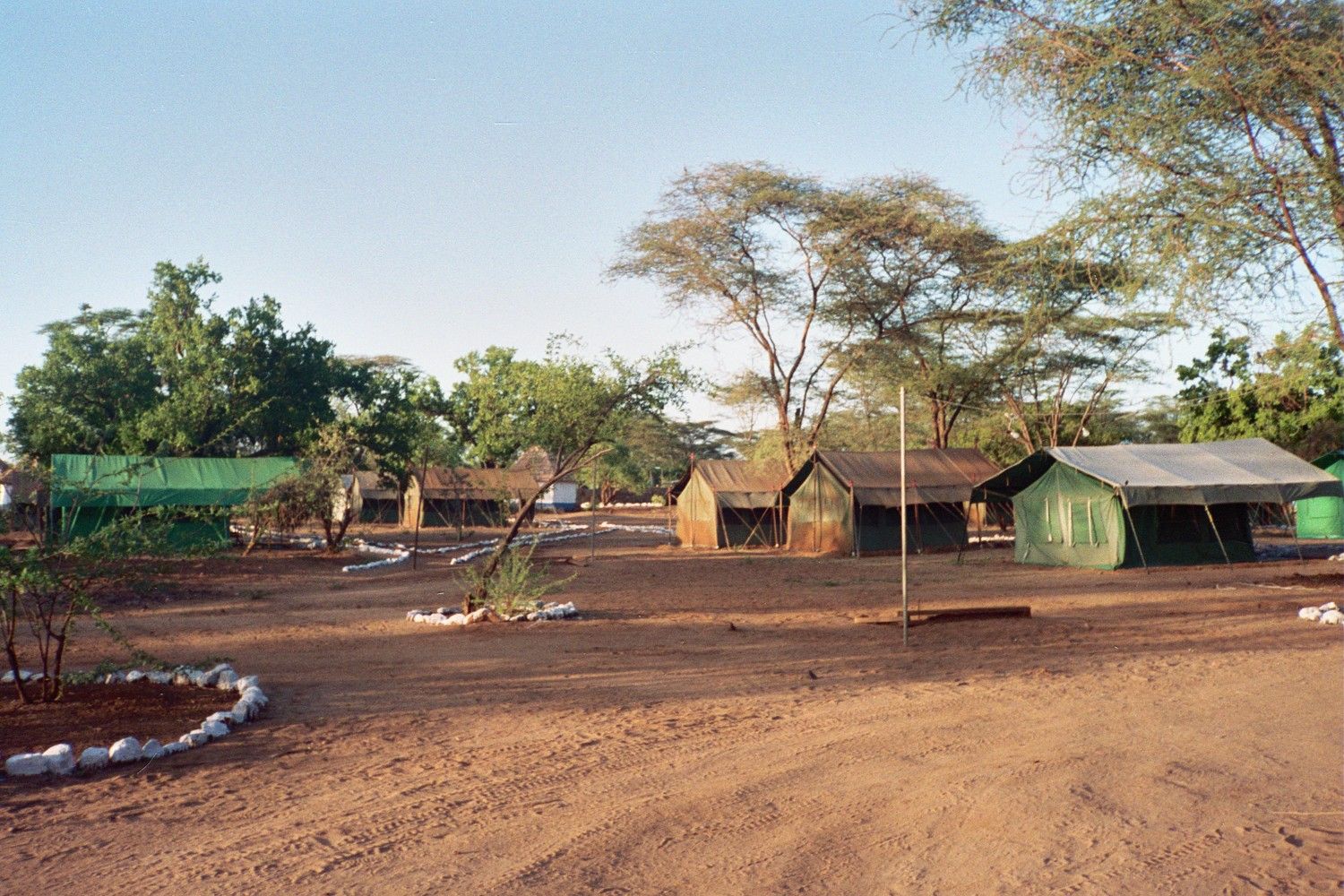
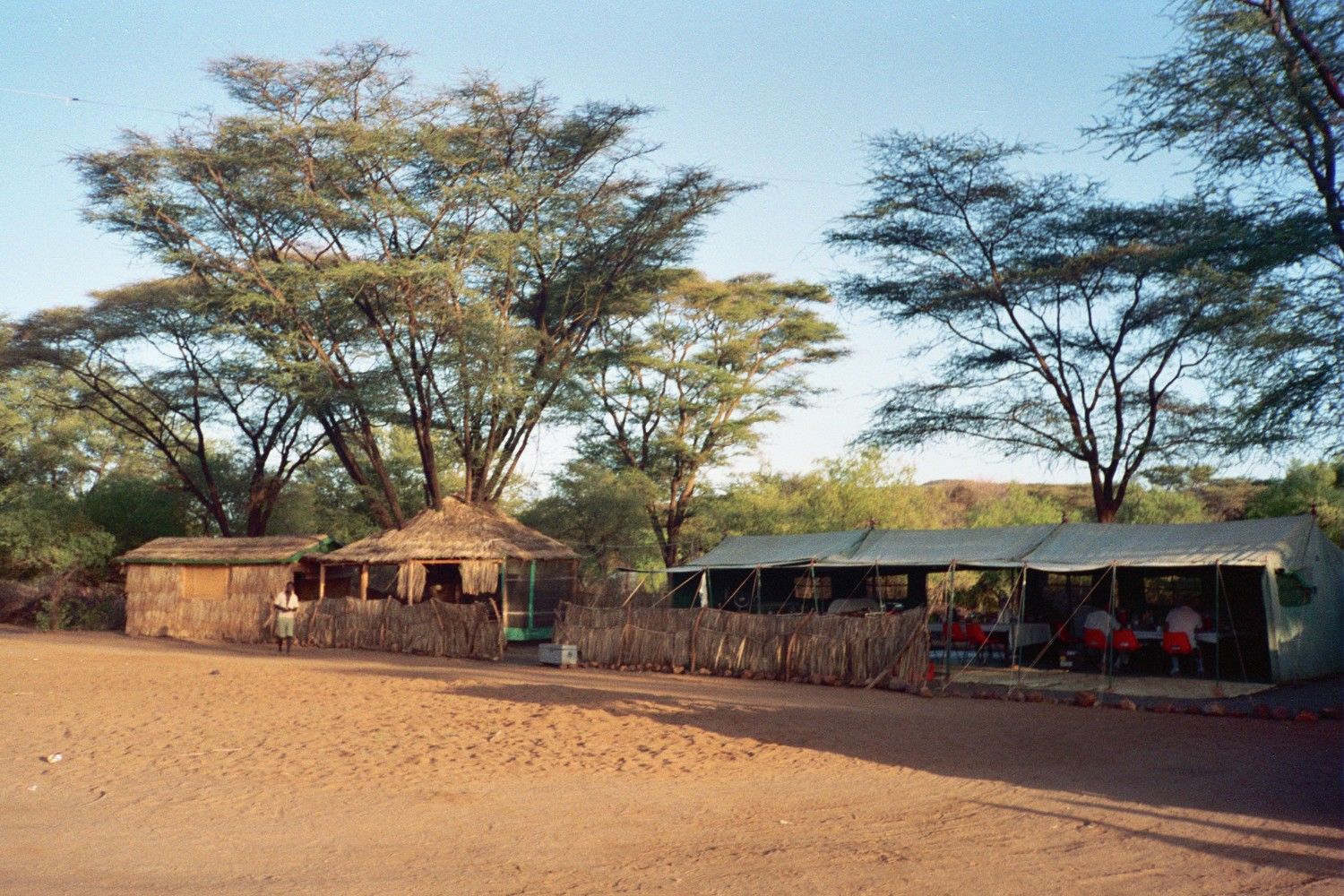
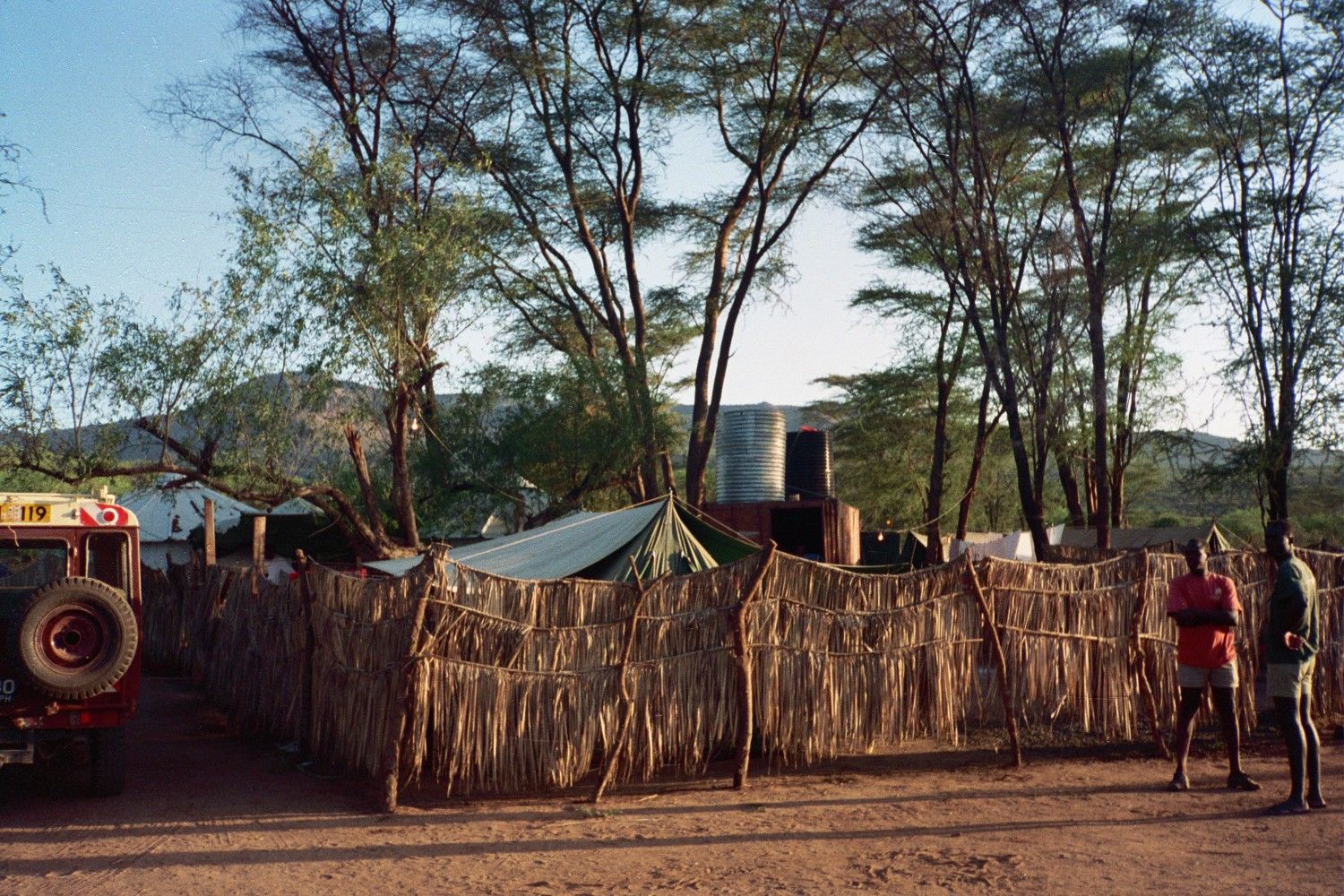
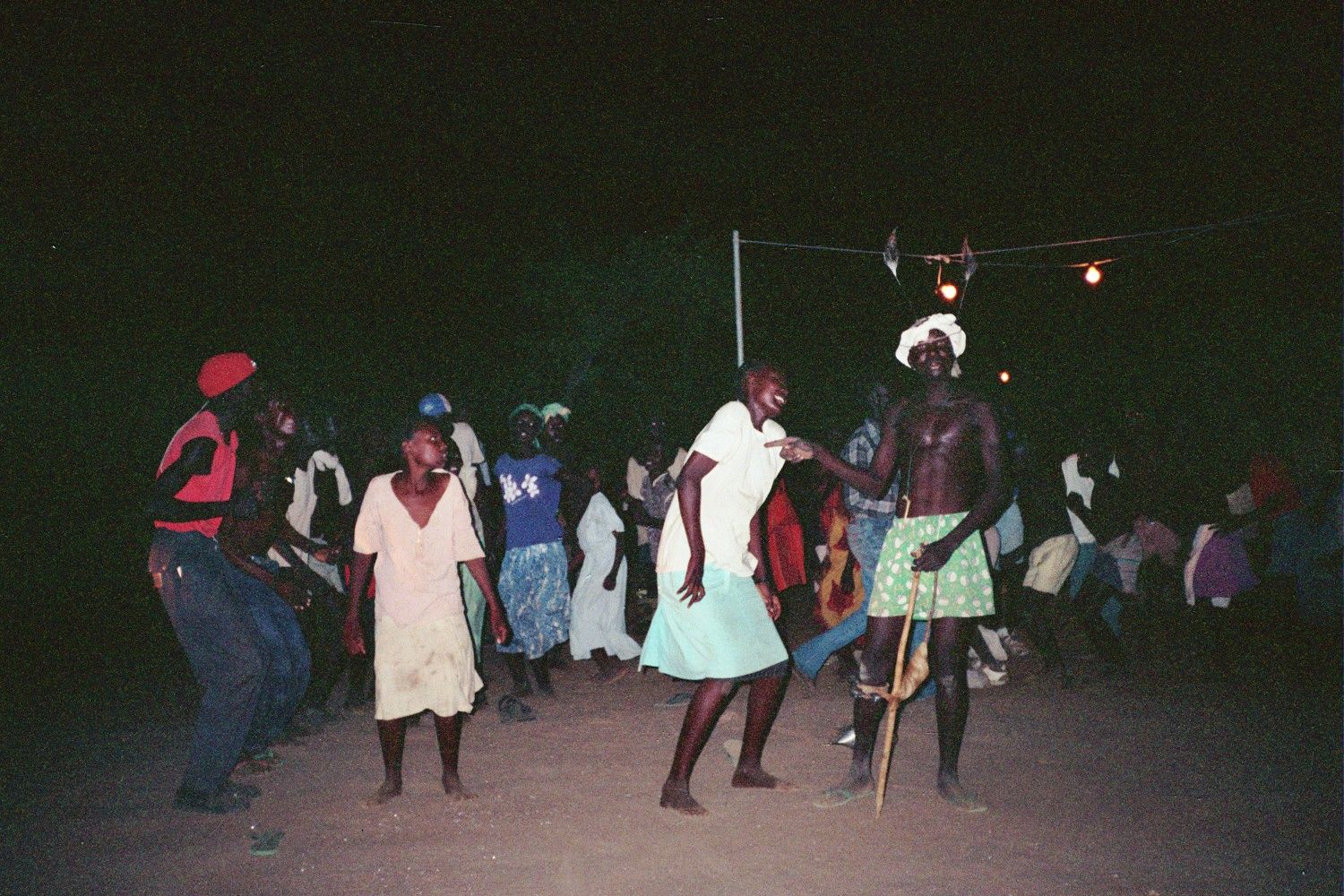
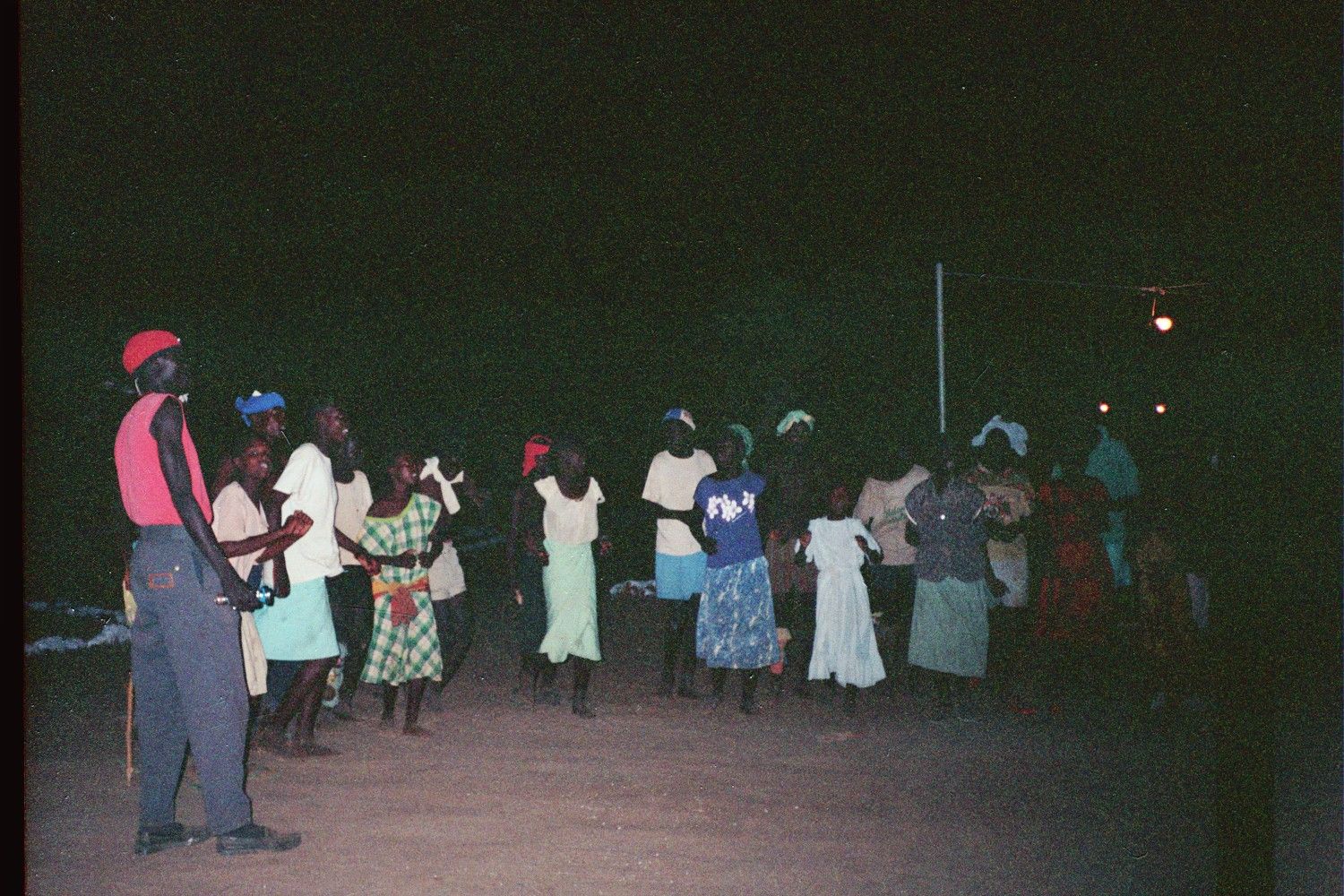
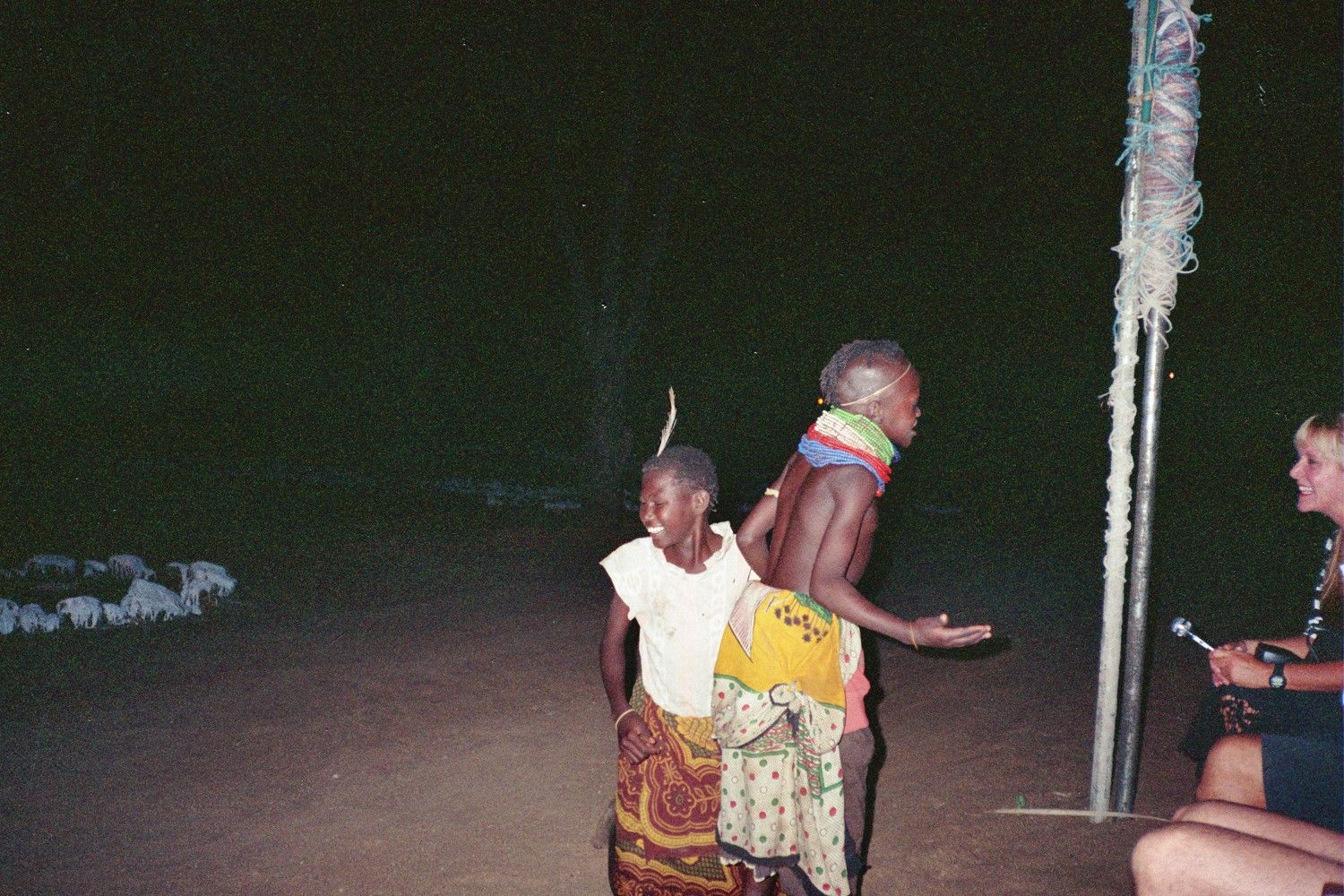
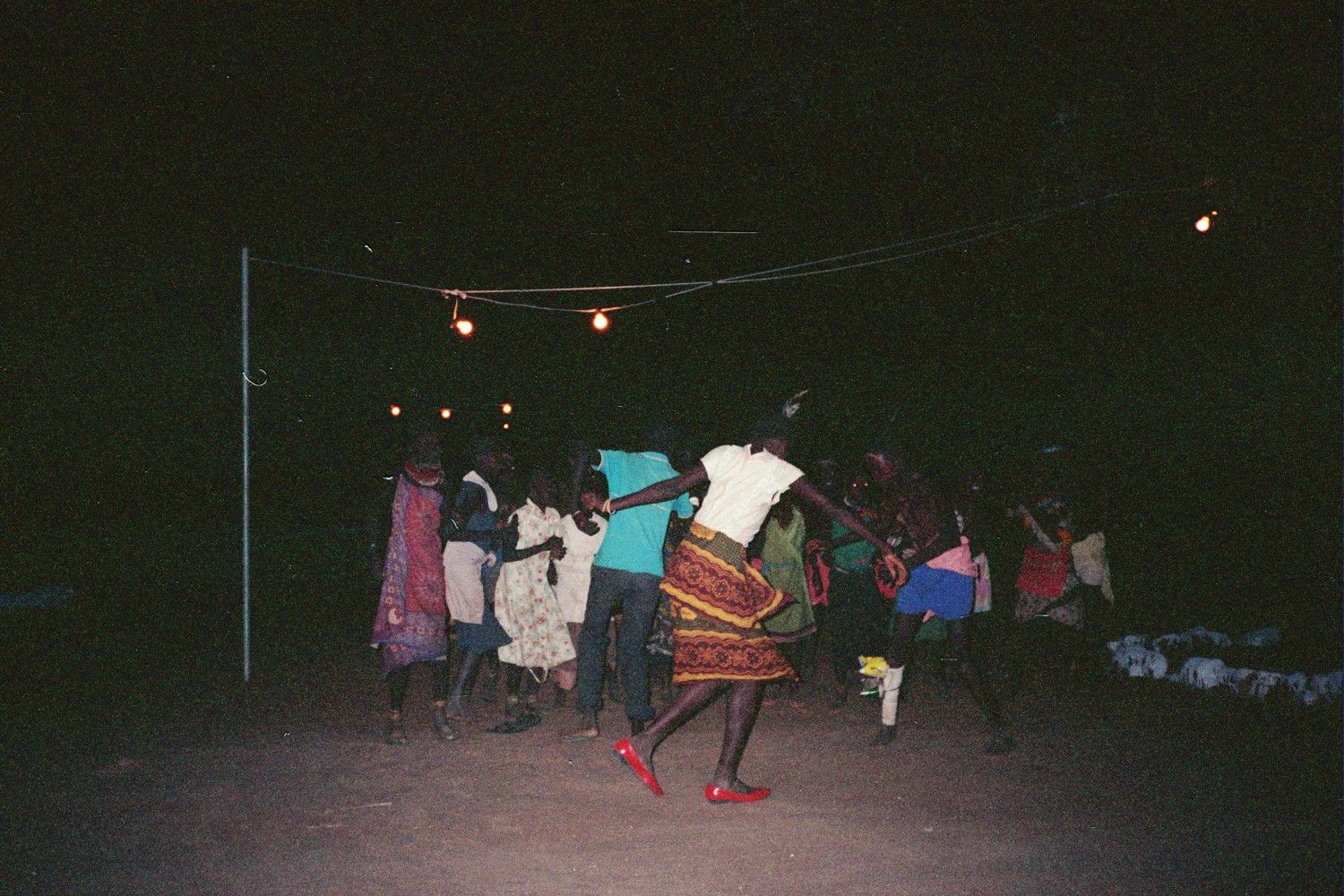
The next day’s theme was fuel. We were supposed to leave at 6:30am, but the charter company and the fuel company apparently had not worked out their fuel arrangements and it took three hours of radio calls to Nairobi to organize the whole thing. We waited for over two hours on the runway until we could fuel up and leave. As we sat scores of Turkanas (some actually wearing hightop sneakers and Chicago Bulls t-shirts) came by, touched the plane, backed off when the pilot turned on one of the propellers to get power for the radio, and peered into the door to see the wonders of the instrument panel.
I walked amongst them, wandered over by the huge UN sheds stacked high with white bales of food, and watched the early morning sunlight play with the colors of the nearby hills. No Toto, I was definitely not in Kansas any more. I had also missed my flight from Nairobi to Mombassa that morning and had to reschedule, by radio from that isolated airstrip, a later flight, while the Tukana tribesman mumbled incoherently amongst themselves.
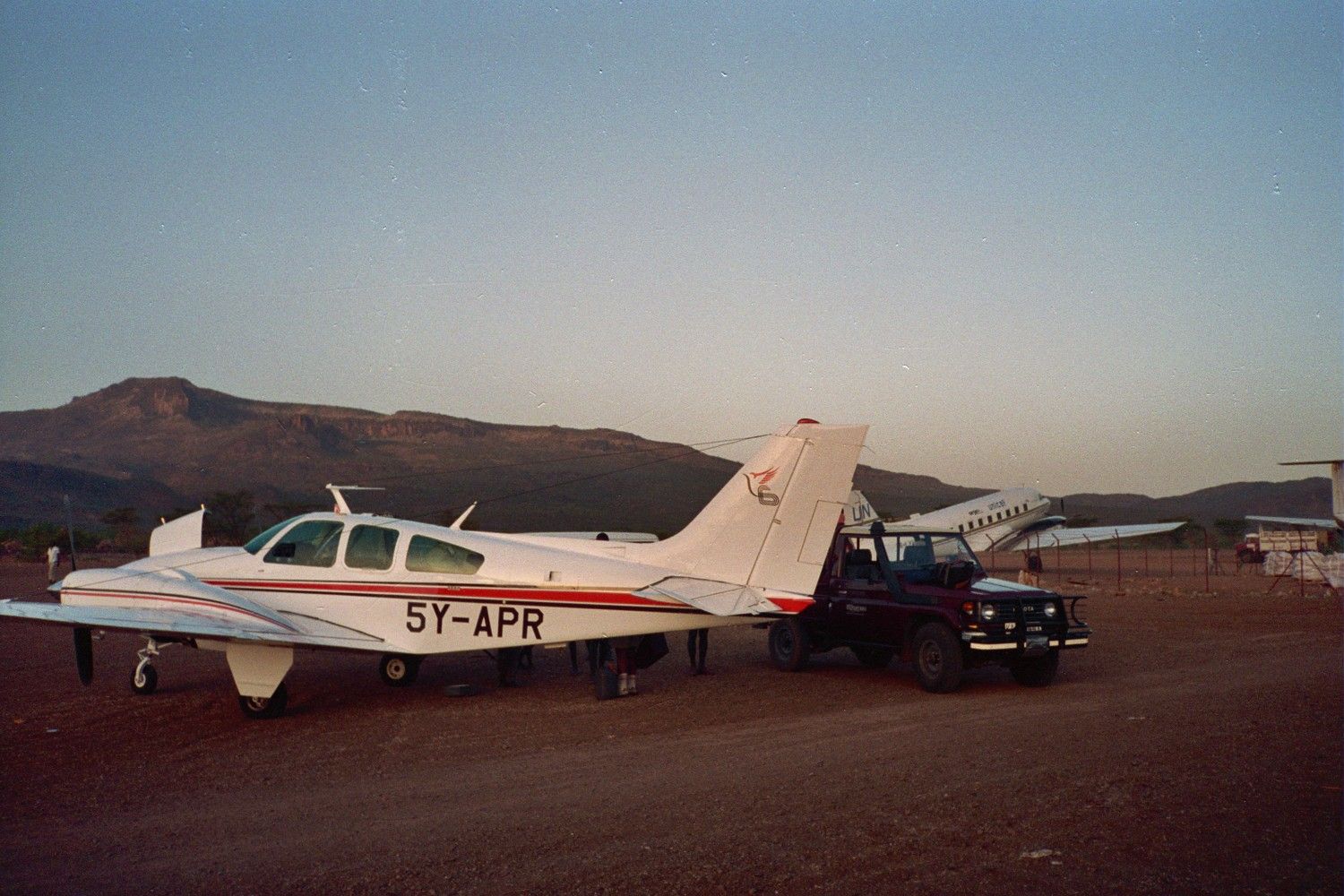
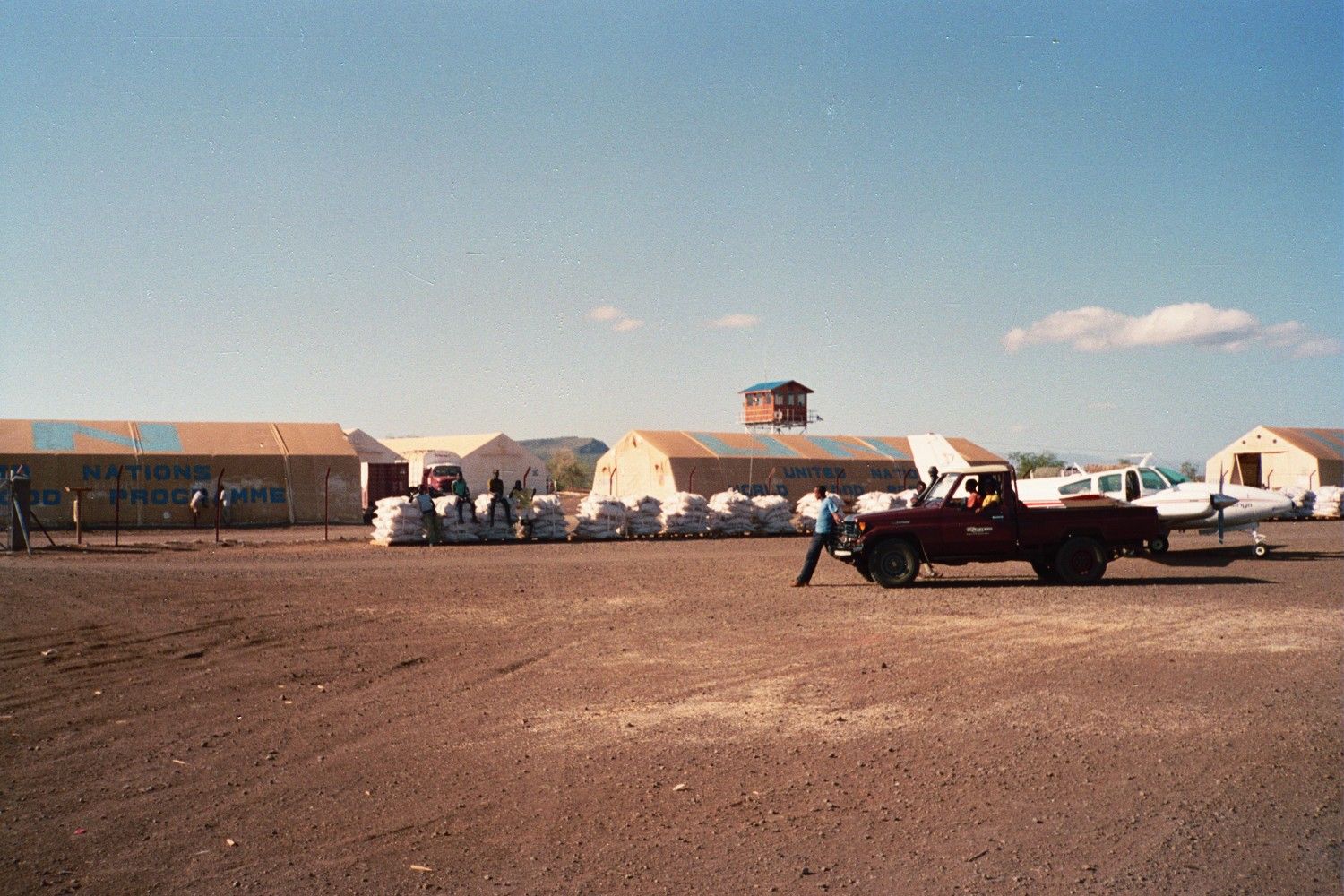
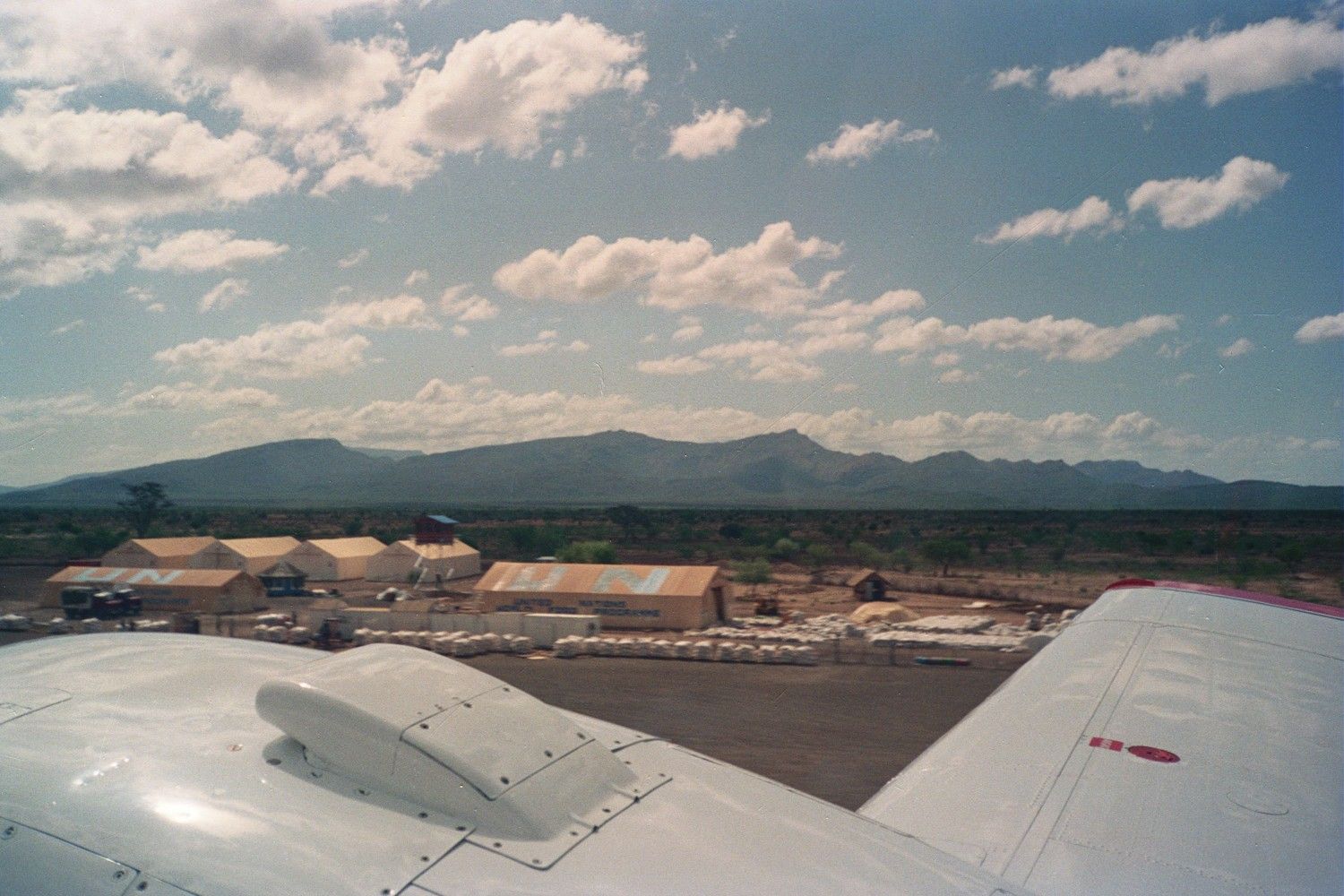
I had another chance to visit the Masaii Mara game preserve. We had two clients staying at our camp there and myself, our Managing Director, and a wonderfully irrelevant herpetologist from San Francisco who sometimes works with us and sends us scores of clients, flew out to visit them. We landed on a dirt airstrip literally in the middle of nowhere, the plane took off for its next destination, and we waited. Our guide was late. As we waited we saw a van loaded with tourists stop about 150 yards away. Apparently there was a dead animal there. We speculated on whether or not there were lions about and made jokes about tourist filming three safari company executives as they get eaten by lions.
Our guide – with the two clients – eventually showed up and we had a wonderful game drive on the way to the camp. We did actually see a pride of lions eating a fallen wildebeest. We could hear them chewing the meat and breaking the bones. A mother and her cubs were purring contentedly, their bellies stuffed with food. Our camp was a series of tents by a river. Luxury in the bush. Waking up to the panorama of the African savanna and taking a shower in a small tent with warm water lightly scented with eucalyptus oil was an amazing way to start to your morning.
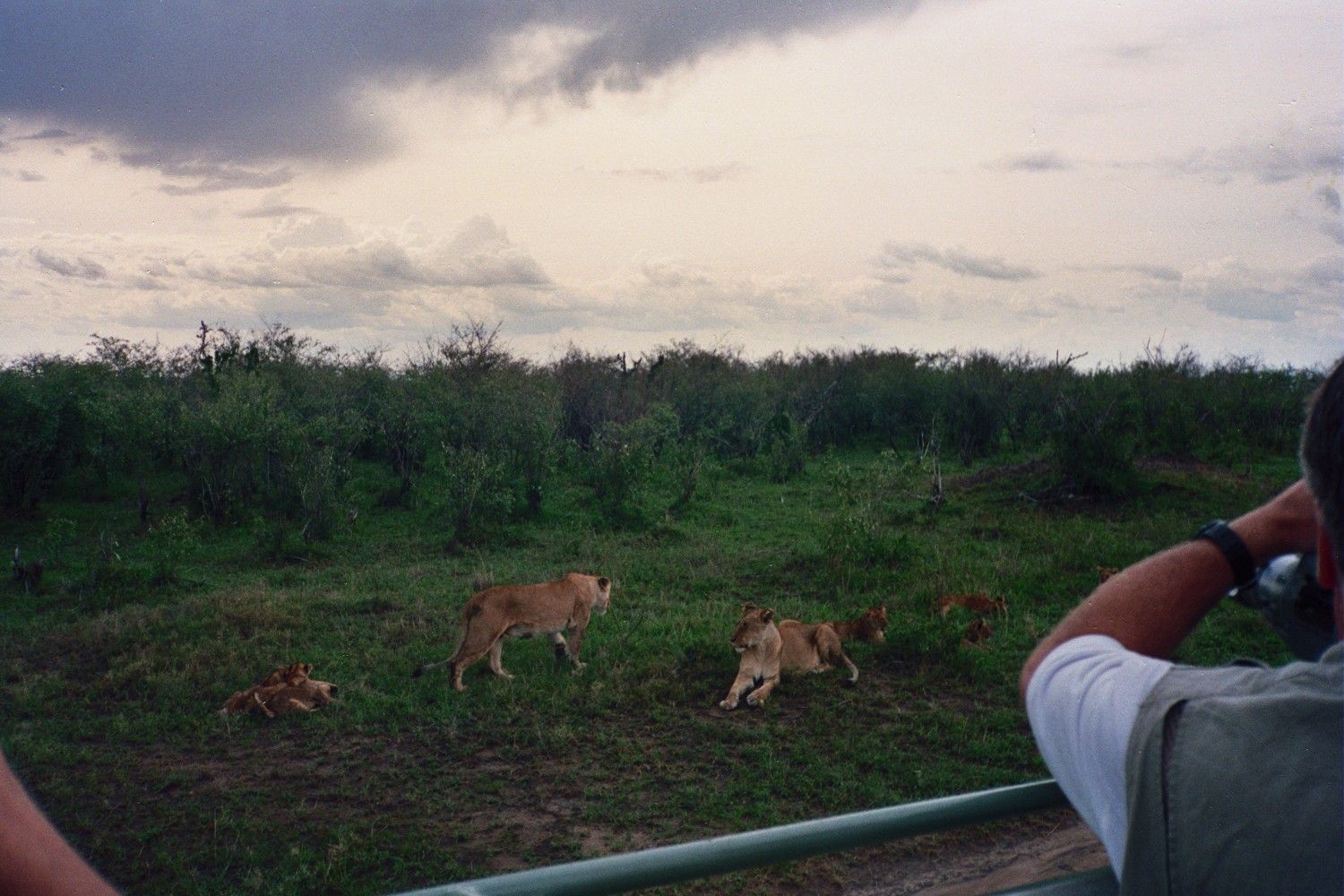
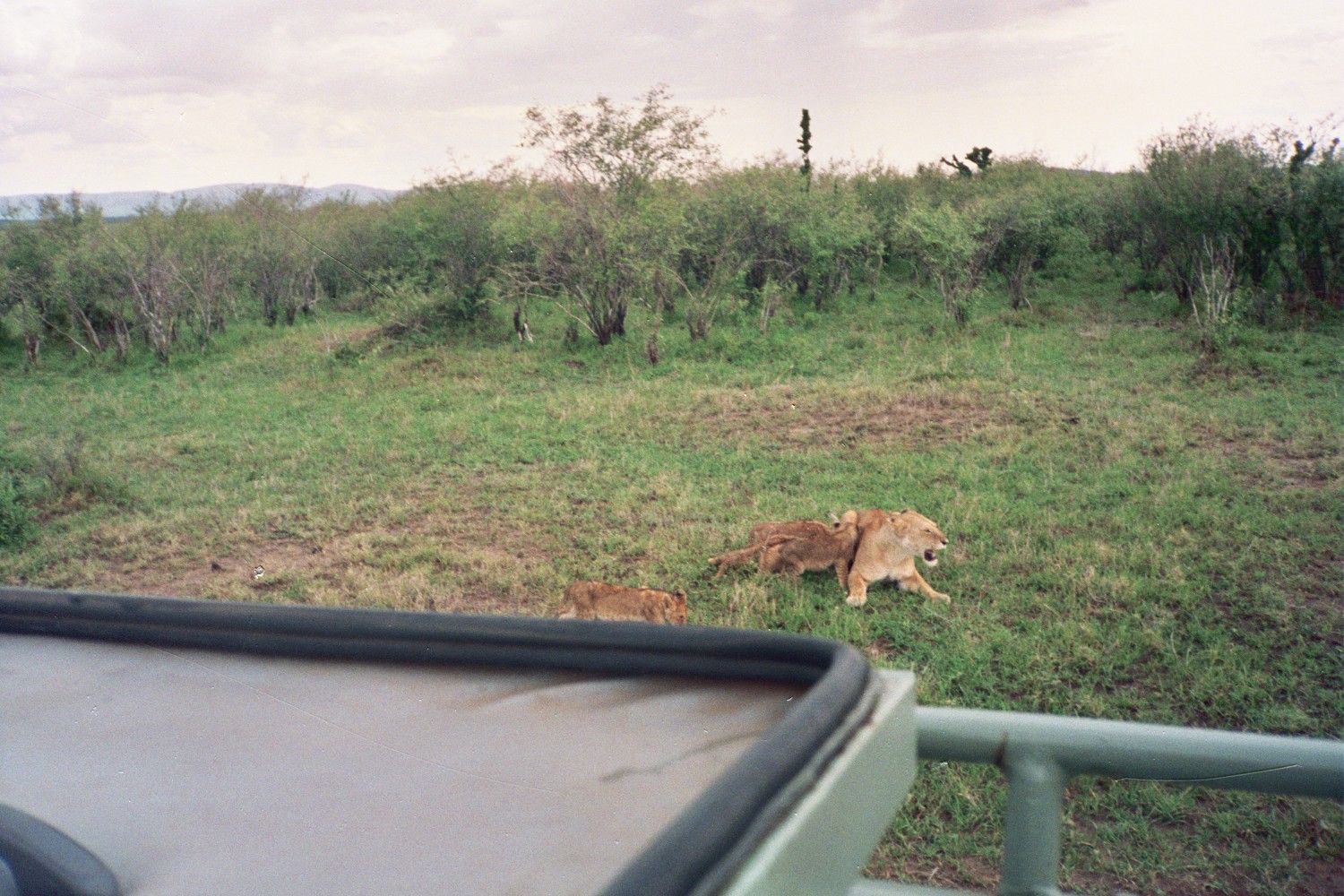
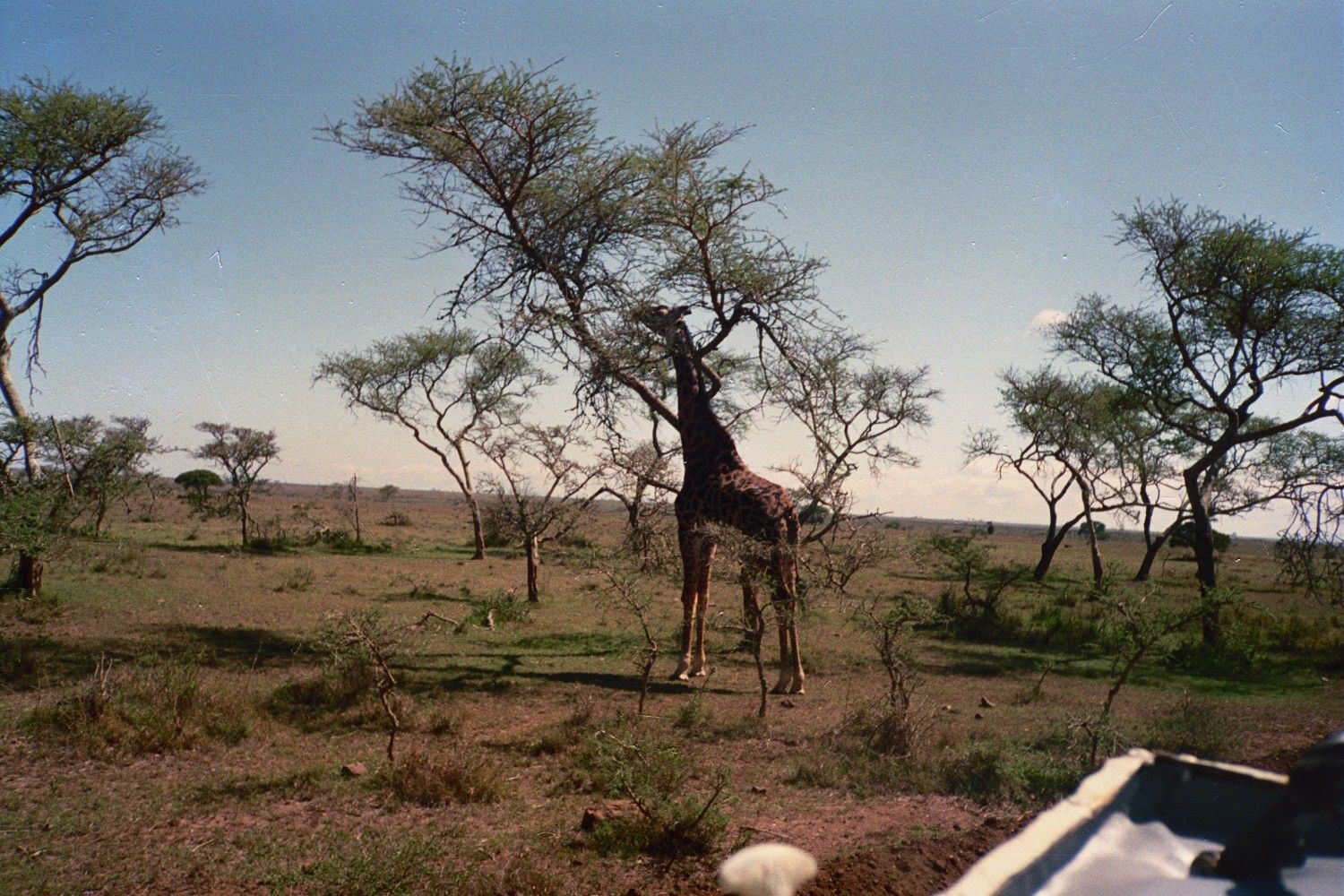
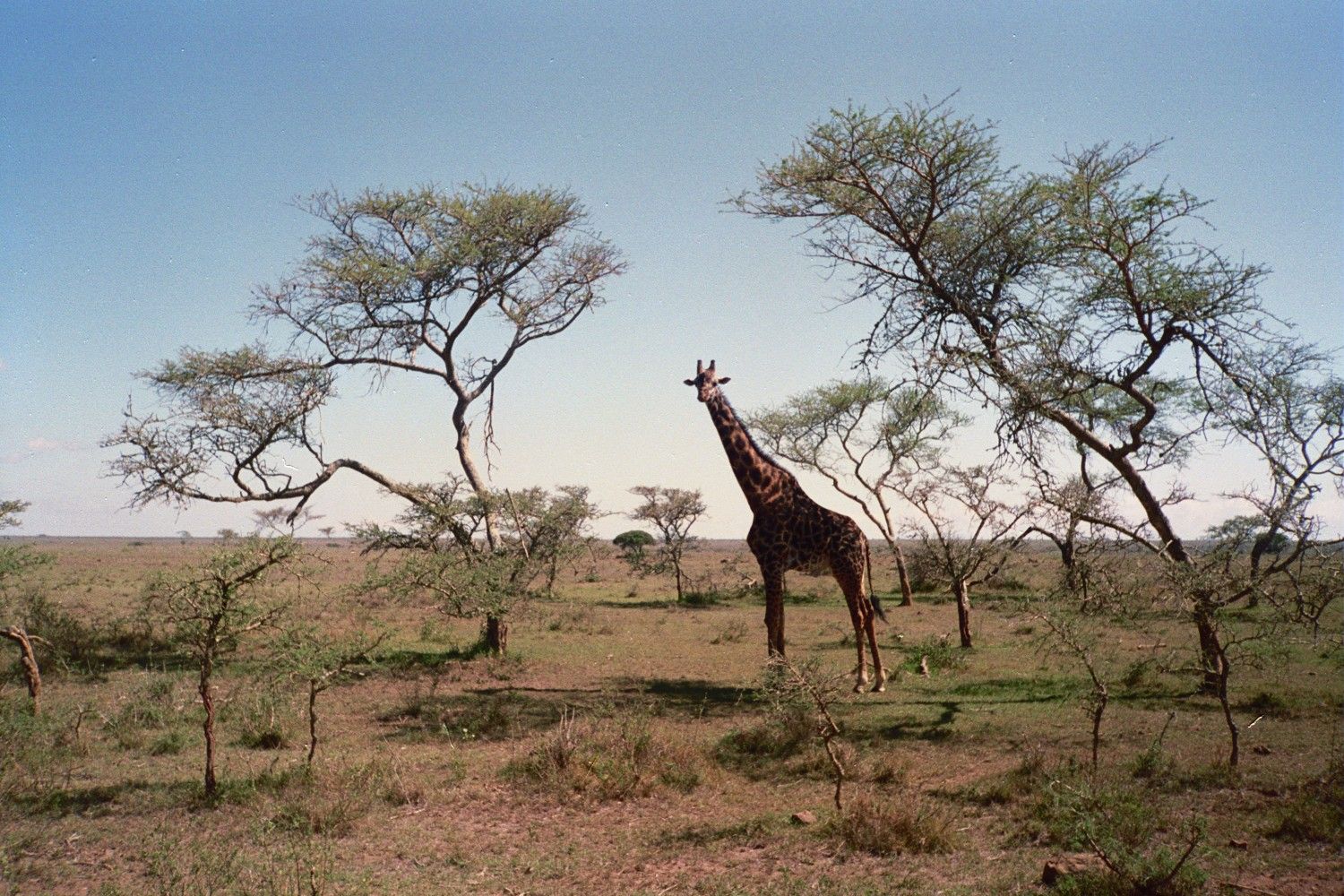
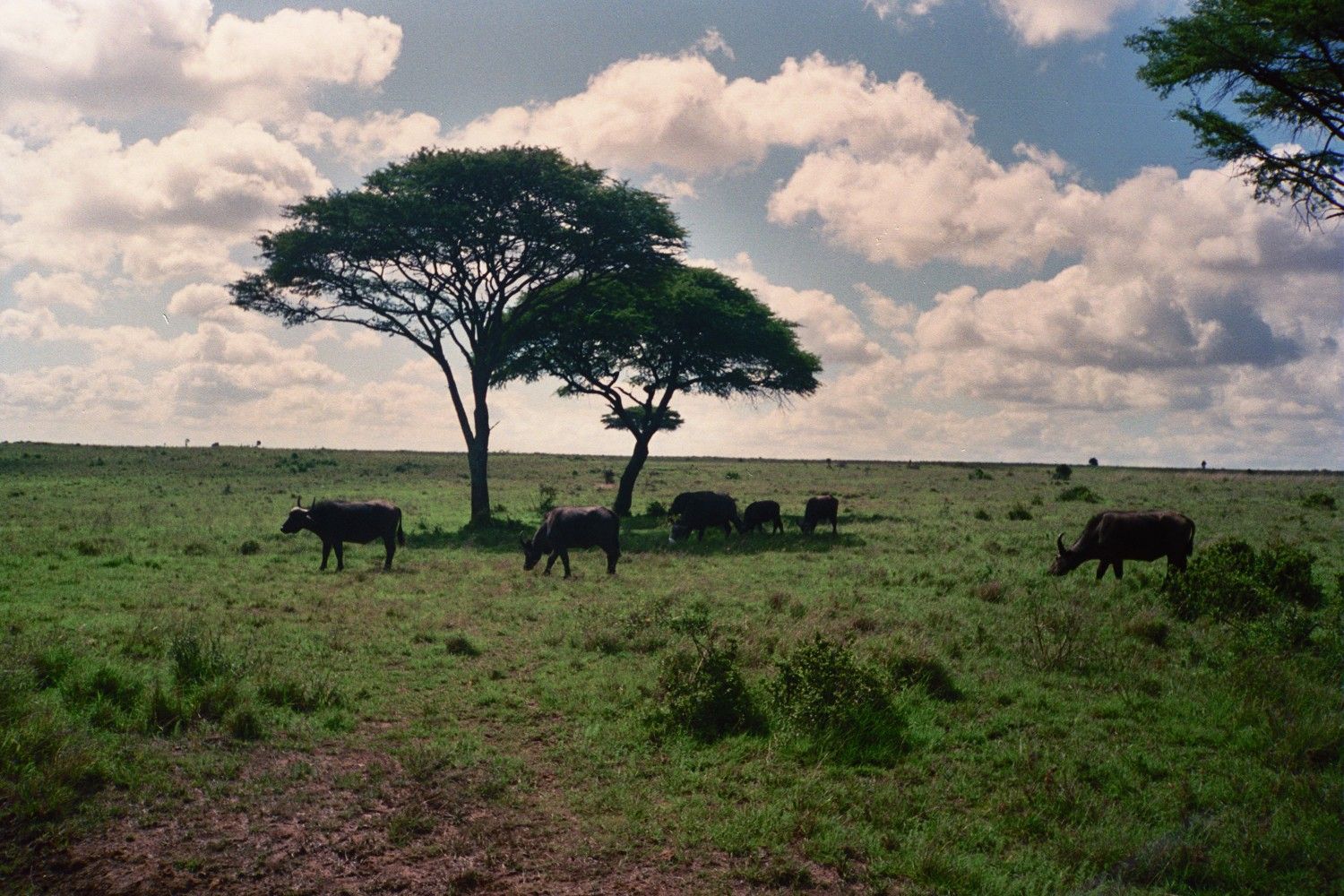
I had a chance to go on my third safari in January while I was in Mombassa. The first day was at a park called Tsavo East. It had surreal, lush landscape, which also made it more difficult to see game. Lunch was at a lodge cut into a mountain near a place called Voi. A beautiful buffet lunch taken to tables overlooking the wilderness below you. You could actually swim at a pool overlooking a waterhole while baboons scampered around you. That evening we ended up at a small luxury tented camp in another park called – imaginatively enough – Tsavo West.
It was on Lake Jipe on the Tanzania border and run by this wonderfully eccentric Swiss named Bobby. While the German tourists I was with were contentedly eating dessert in the mess tent Bobby and I were prowling around with a flashlight spotting owls in trees. He had some wonderful stories of his 20 years in Africa.
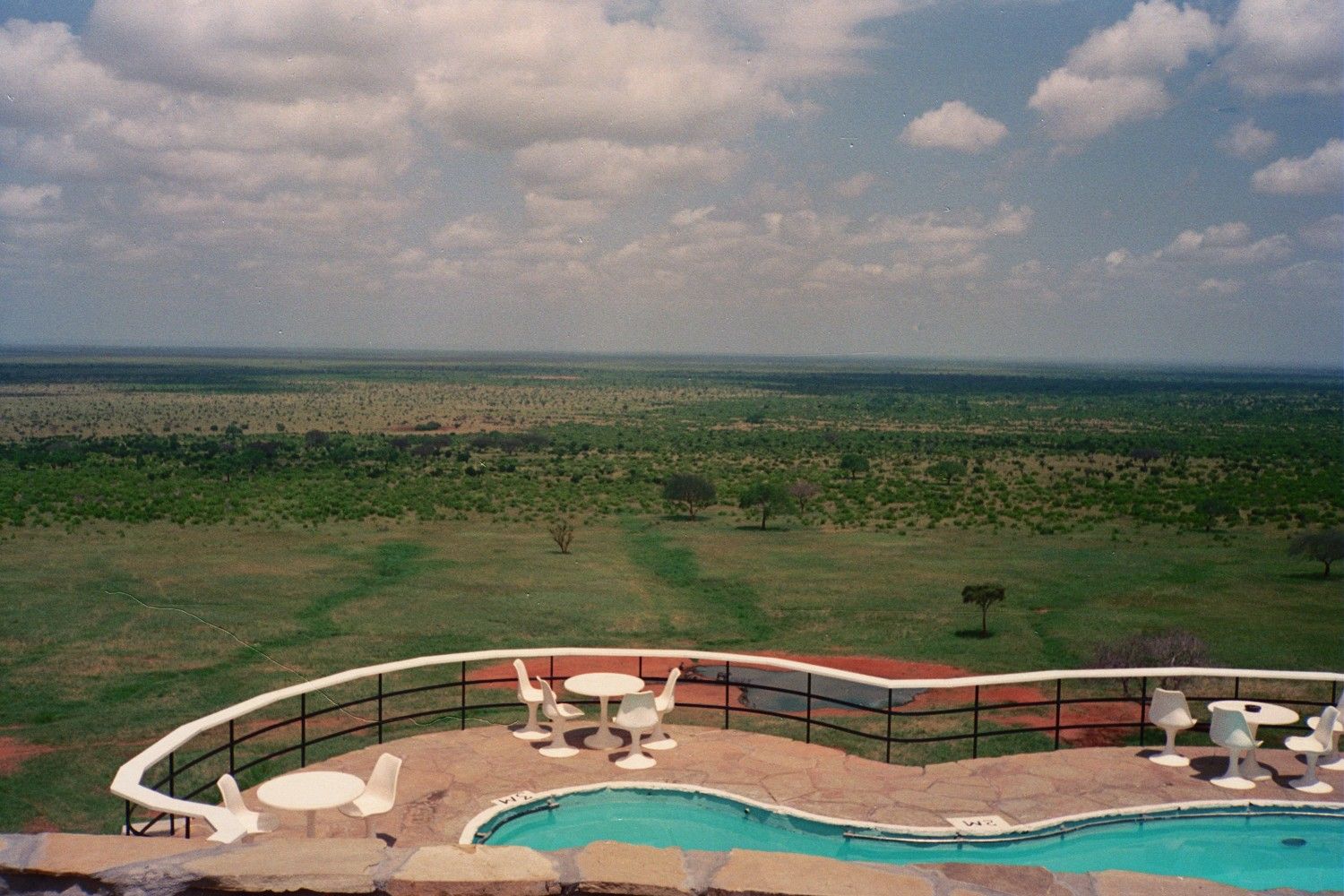
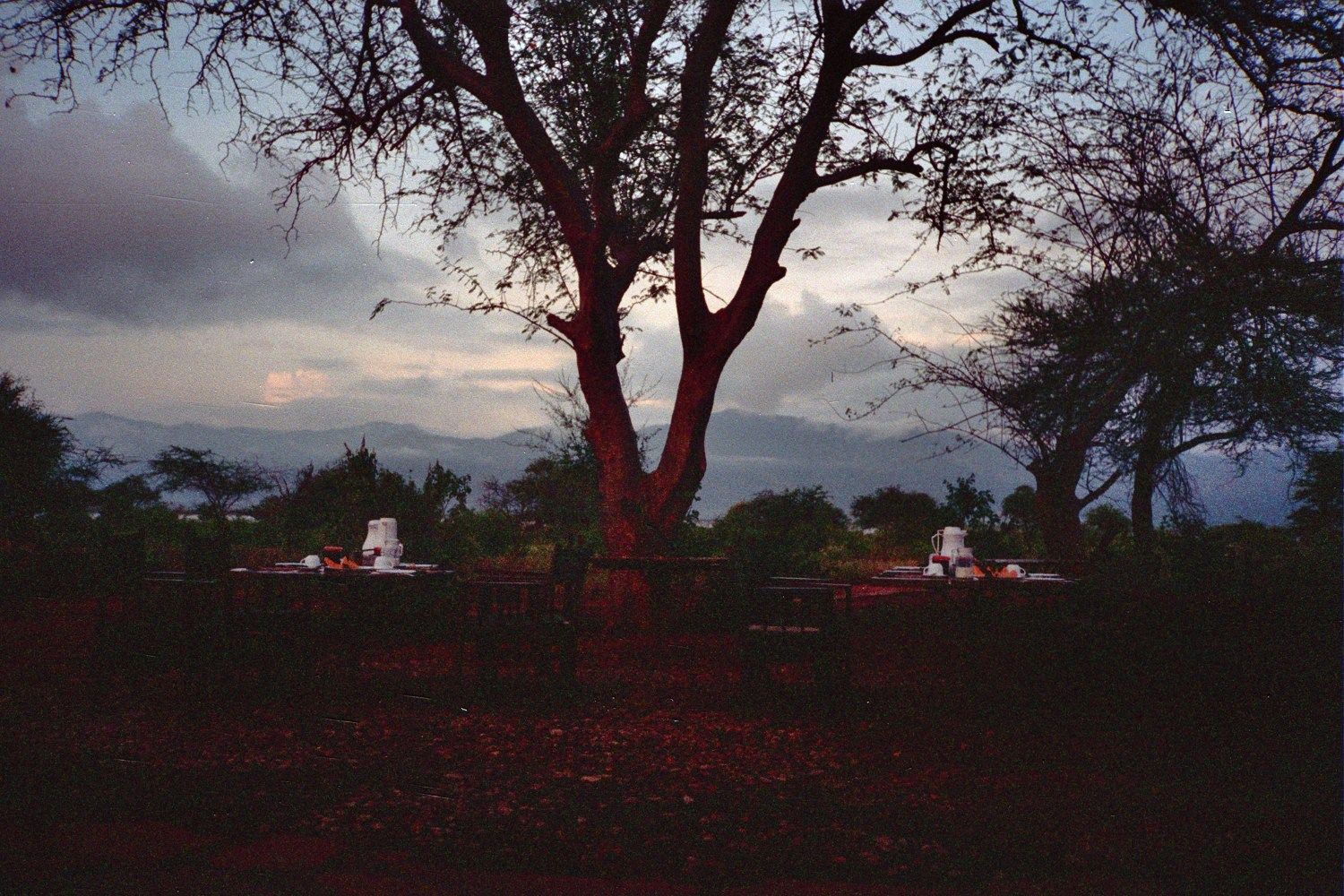
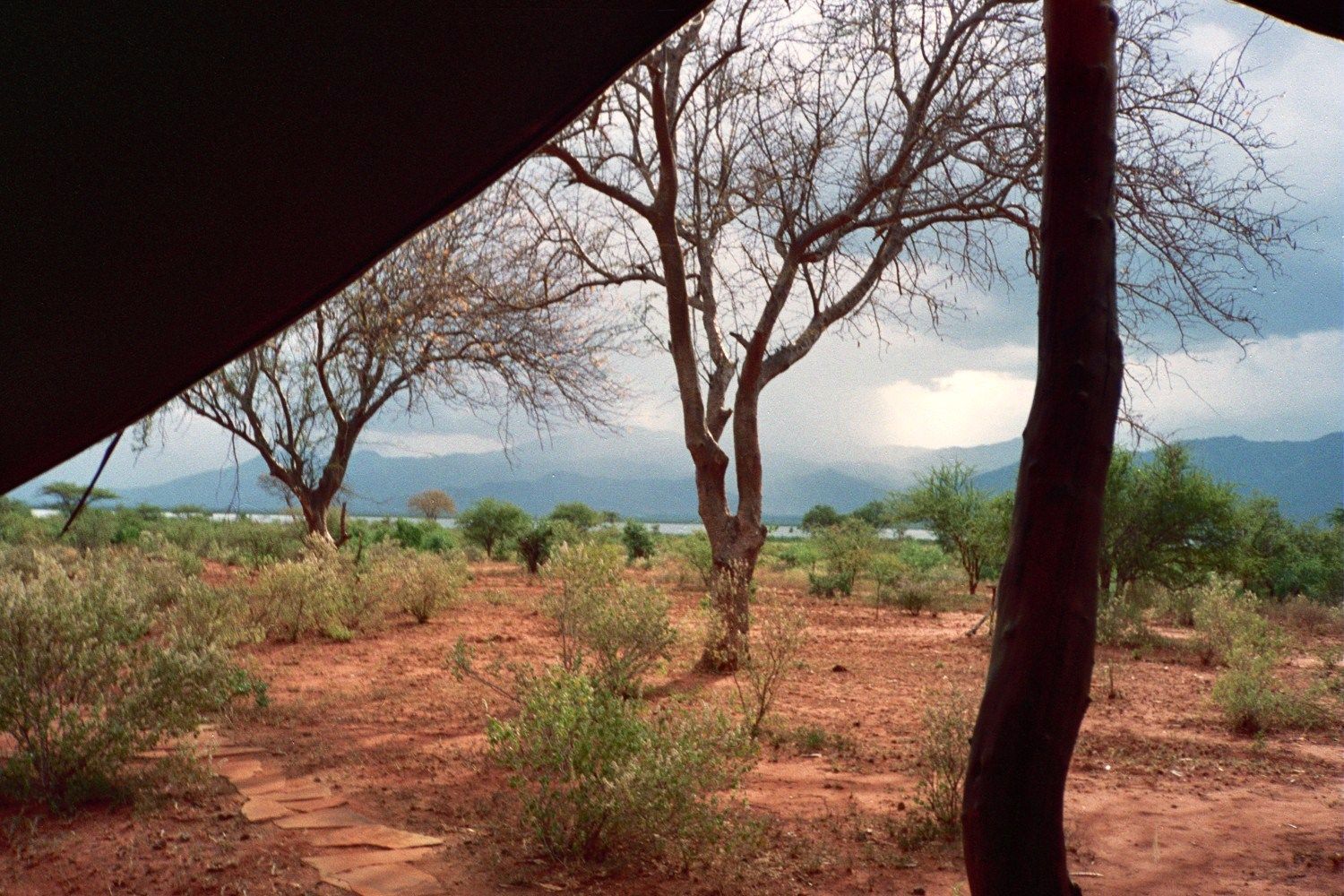
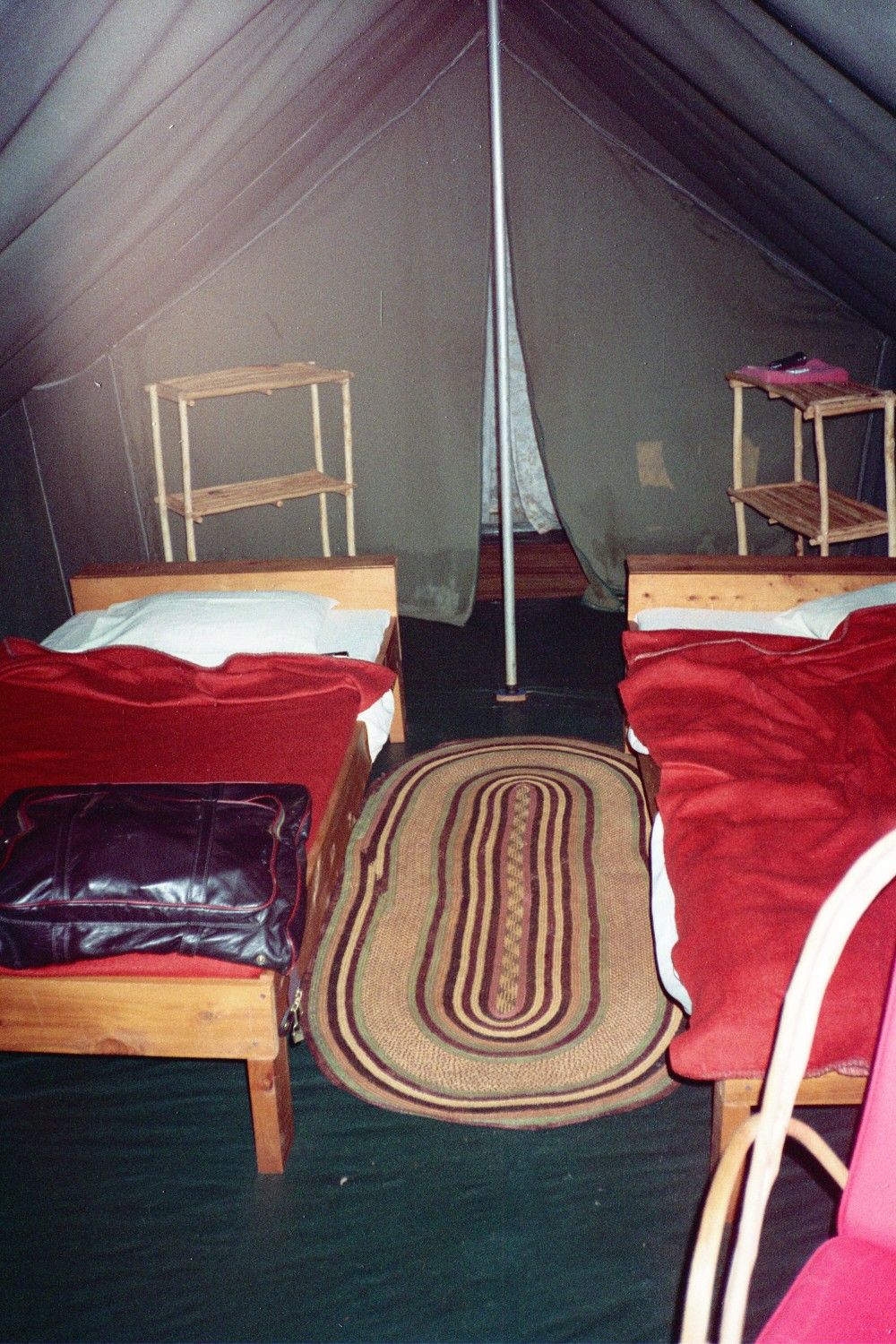
The highlight of the game drives there was a herd of about 30 elephants. We stopped with our engines off in the middle of these wonderful beasts. We could hear them methodically chewing on the branches and bushes they were eating as the wind quietly danced around us and large white clouds marched above us. Small babies would nuzzle up to their mothers for milk as other elephants nearby would intertwine their trunks together in greeting. There was a timelessness in those moments that I’ll never forget. Earlier we had seen Mount Kilamanjaro, with its summertime snows, rising like a white ghost above the early morning clouds. As we left at midday, these red tinted (from Tsavo’s dark red earth) elephants were making their way to the camp. I would have loved to pull up a chair, grab a beer, and watch and listen to them pass by.
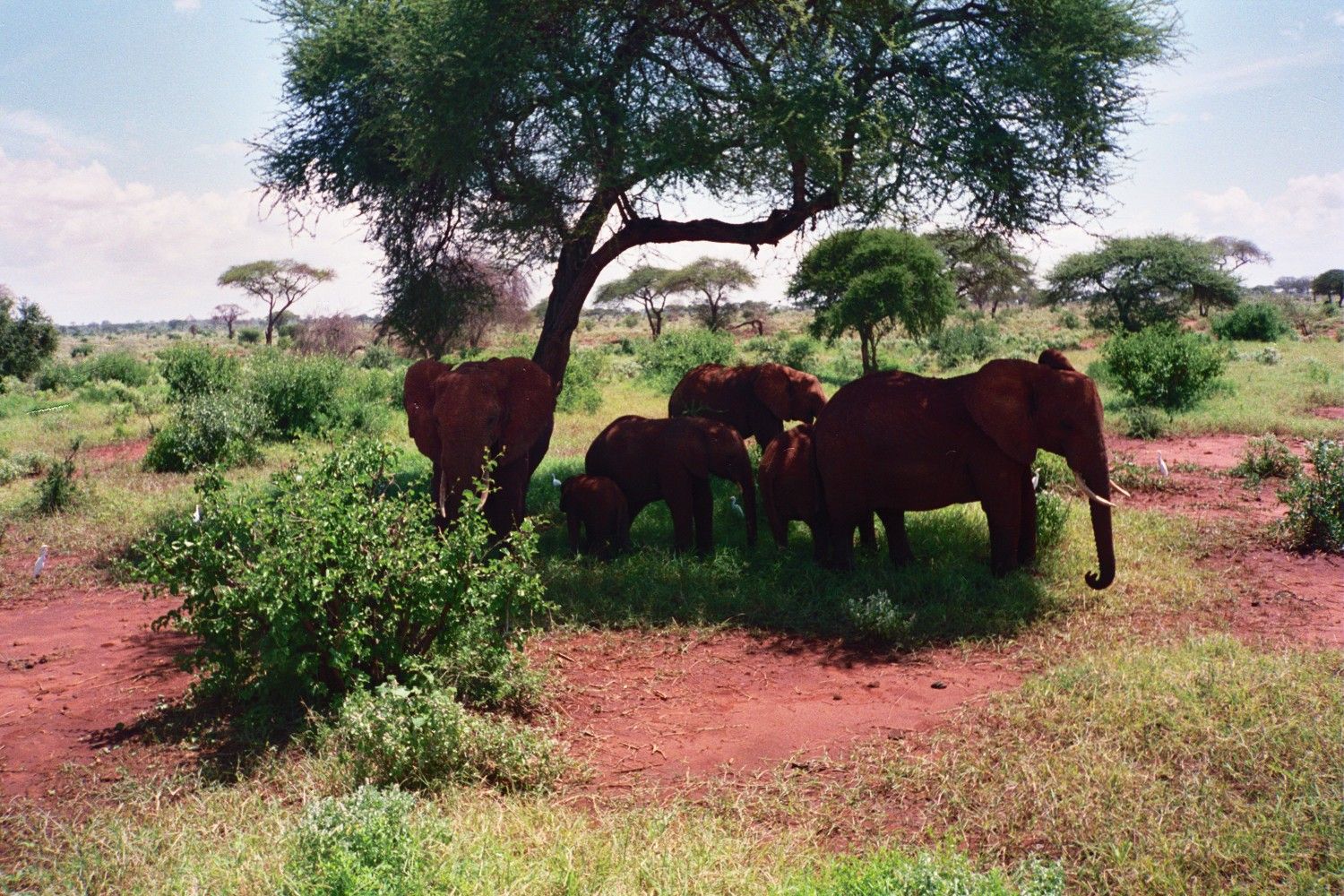
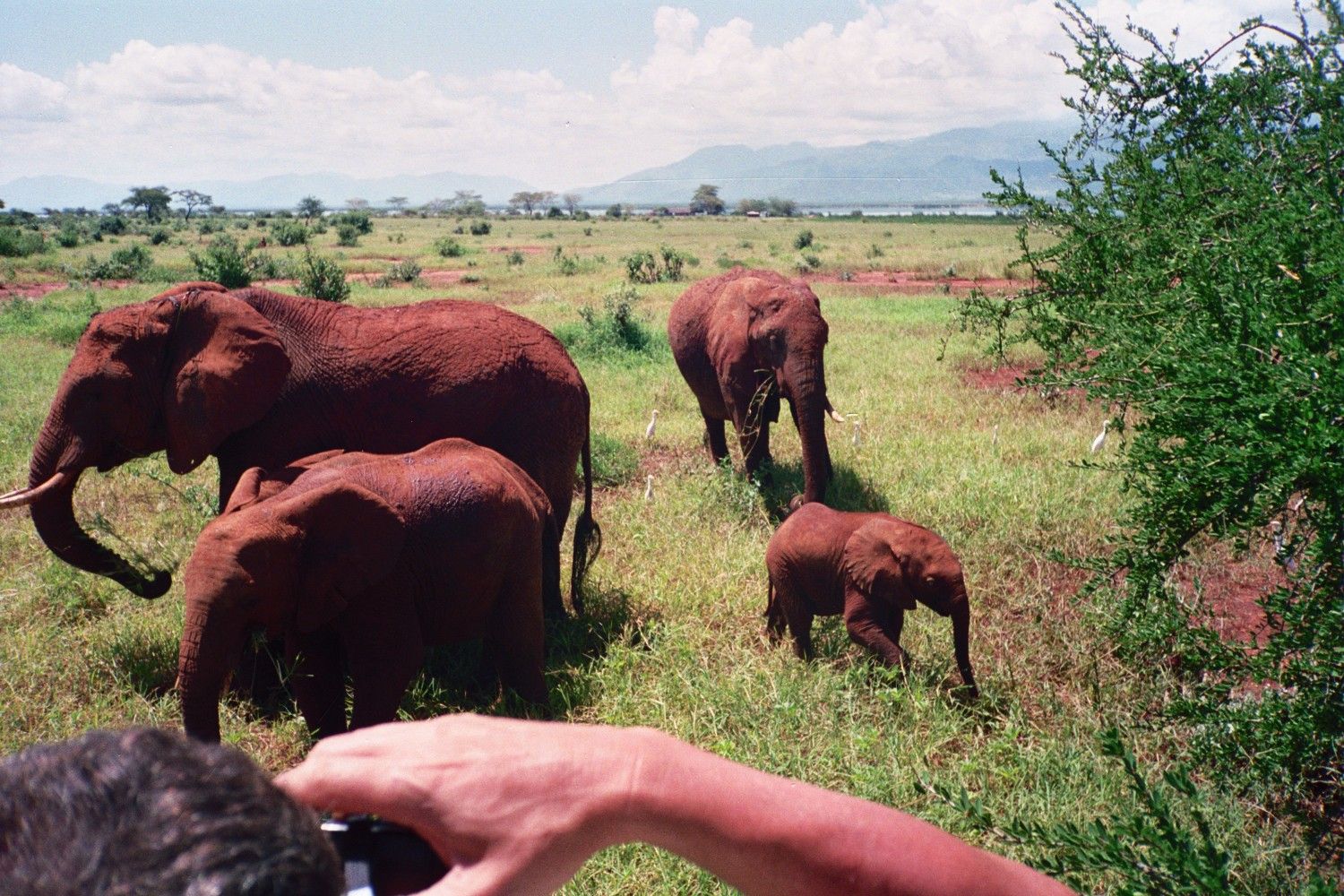
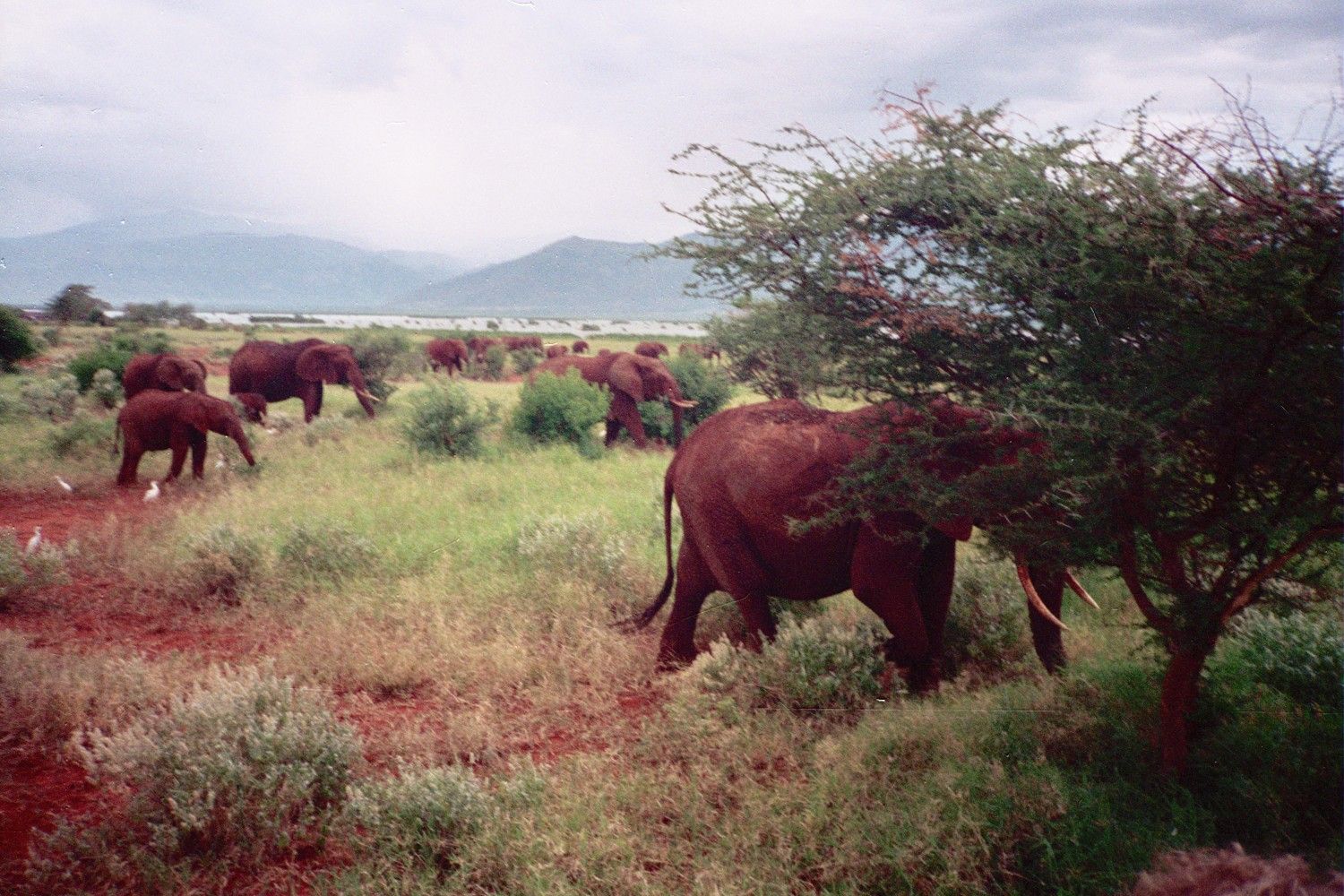
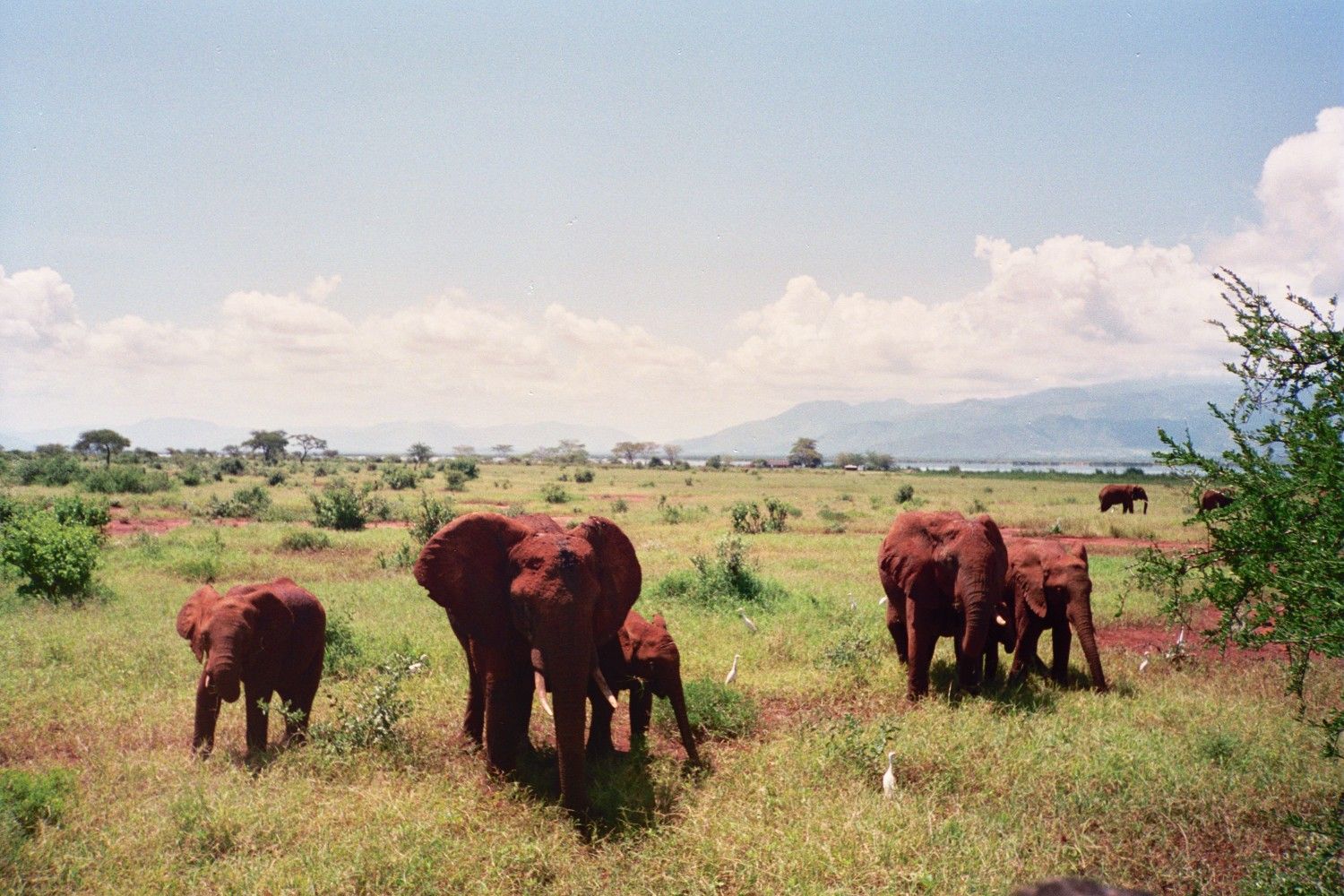
I went to midnight mass with some friends for Christmas. A Catholic church filled with dark skinned Africans and a beautiful, melodic choir. A white skinned Italian priest did the sermon. It was an African opera as he dramatically emphasized his intention to “…penetrate the veil of the mystery of the Church…” in his heavy, melodramatic Italian accent. New Year’s Eve was spent at a wonderful house in the country just outside Nairobi with a White Kenyan couple and two South African couples.
The South Africans said Kenya was much less developed and sophisticated than South Africa, which I had heard before. They were apprehensive about the political changes taking place in their country. Many were afraid that the infrastructure would disintegrate in a blind rush to equalitize jobs and functions. They were also apprehensive that South Africa’s large and sophisticated armaments cache might accentuate any violence that may take place.
I recently read a newspaper article about 40,000 Zulus with spears marching on the streets of Pretoria to demand a separate country to be carved out of their traditional lands. I also heard a story a few months ago about some armed black South Africans who pulled a bus over. Without disclosing which tribe the gunmen belonged to they asked each person which of the two main tribes they belonged to and separated them into two groups. They subsequently massacred the group that was not of their tribe.
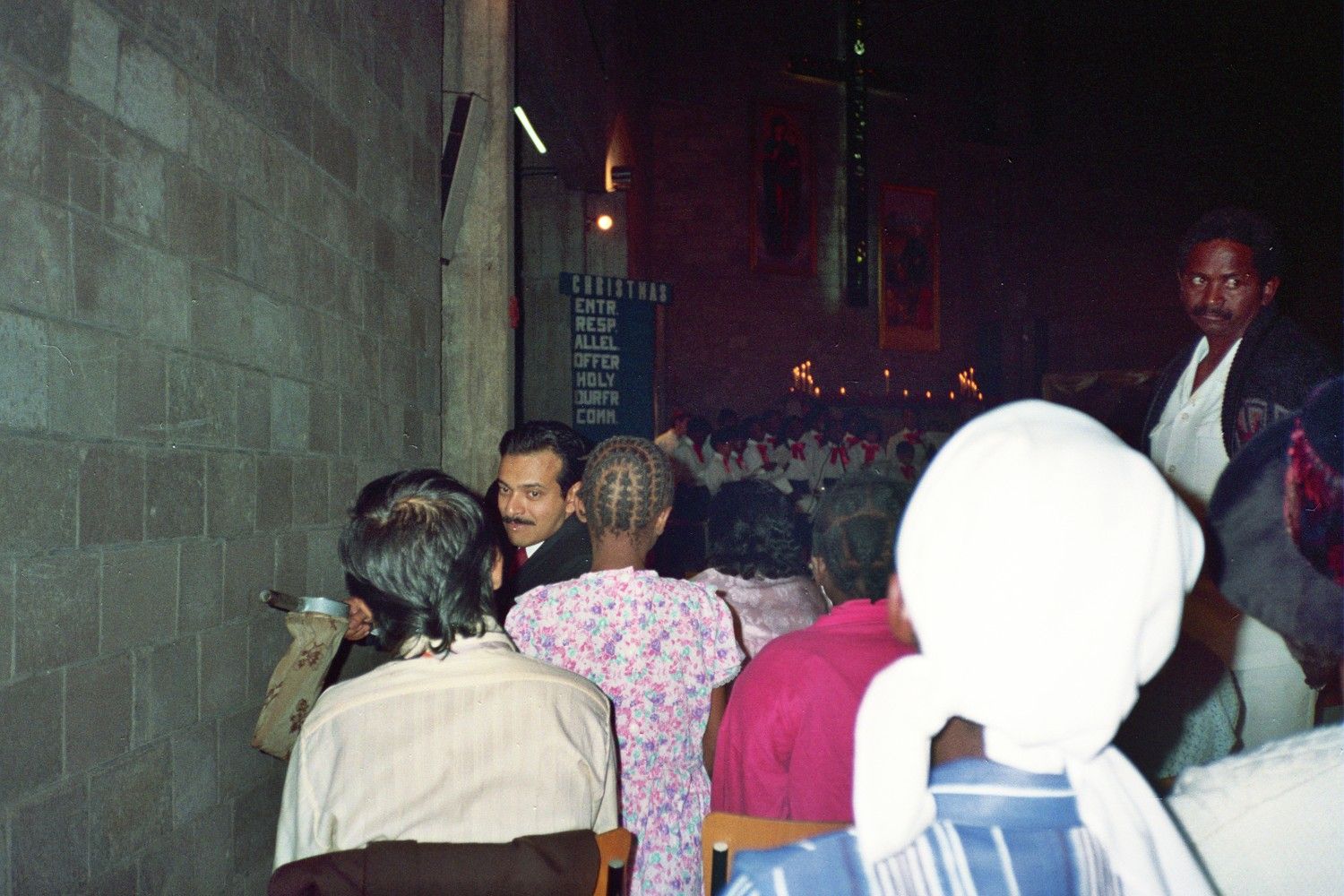
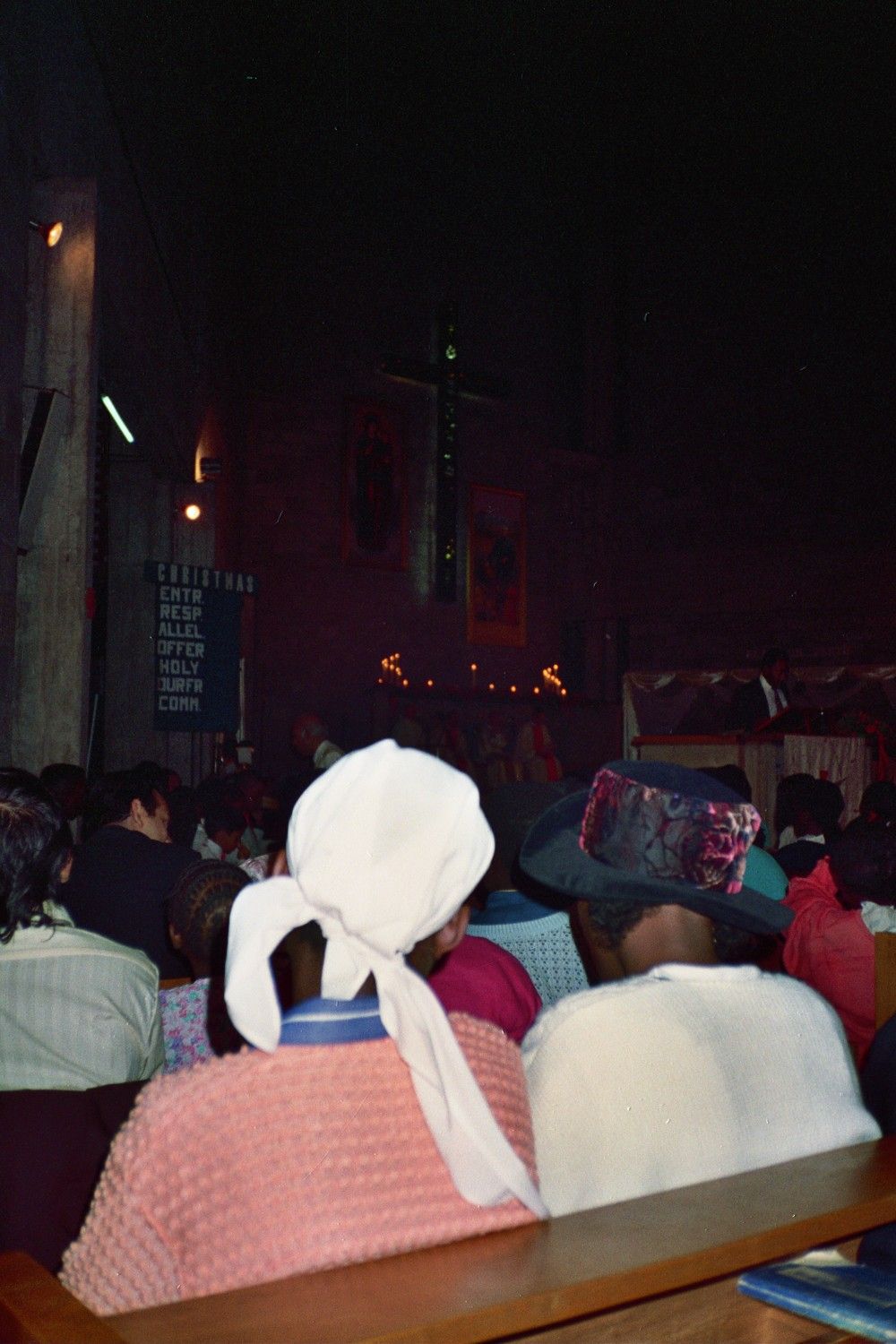
Kenya is not a playland either. It’s in the third year of a serious draught and is starting to receive famine relief from the international aid agencies. About 10,000 people are living in makeshift tented camps after leaving their homelands due to tribal violence. Recent rains washed away parts of these camps. As bad as things may appear, however, I don’t think this place will degenerate into the kind of warfare afflicting many other African countries. Kenya’s strength is its strong and peaceful middle class. This is a rare and precious thing in Africa, which I think will prevent things from going too far. These people simply have too much to lose.
Also the younger generations appear to be much less tribal in their outlook than their elders. What you have to remember is that these people are just a couple of generations removed from the bush. It took Europe hundreds of years and two World Wars to work out its tribalism, and if Bosnia is any indication, still hasn’t gotten it completely out of its system.
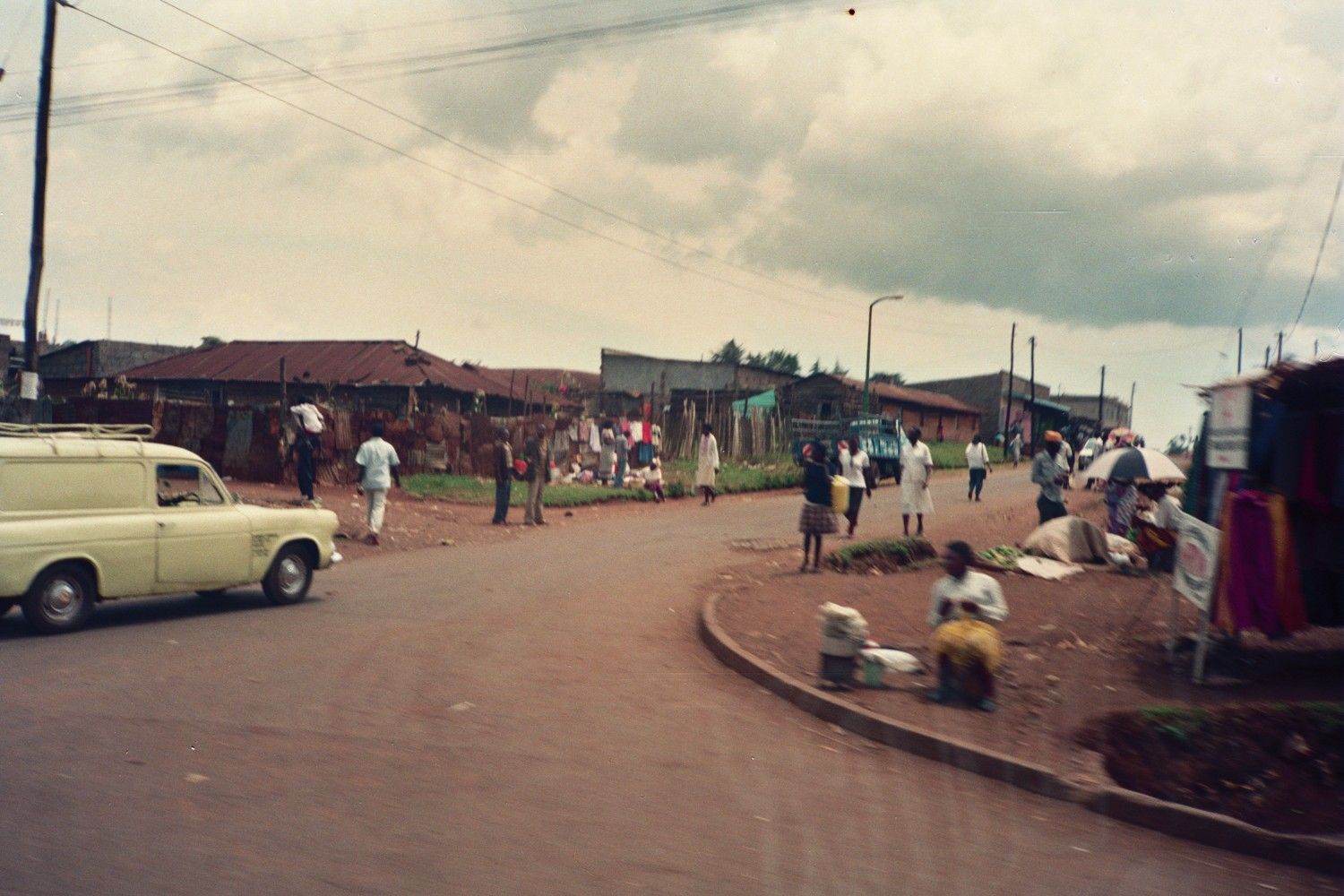
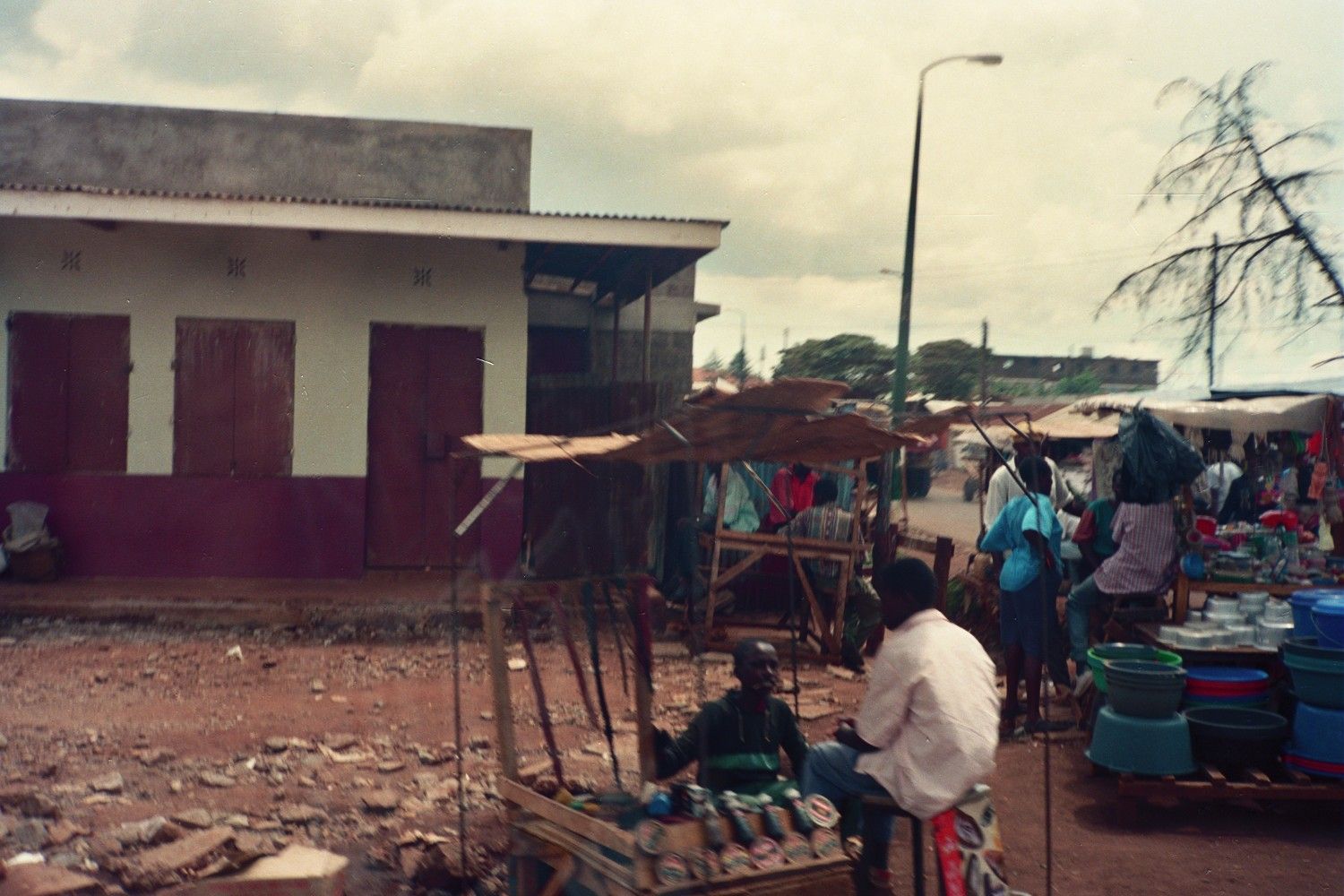
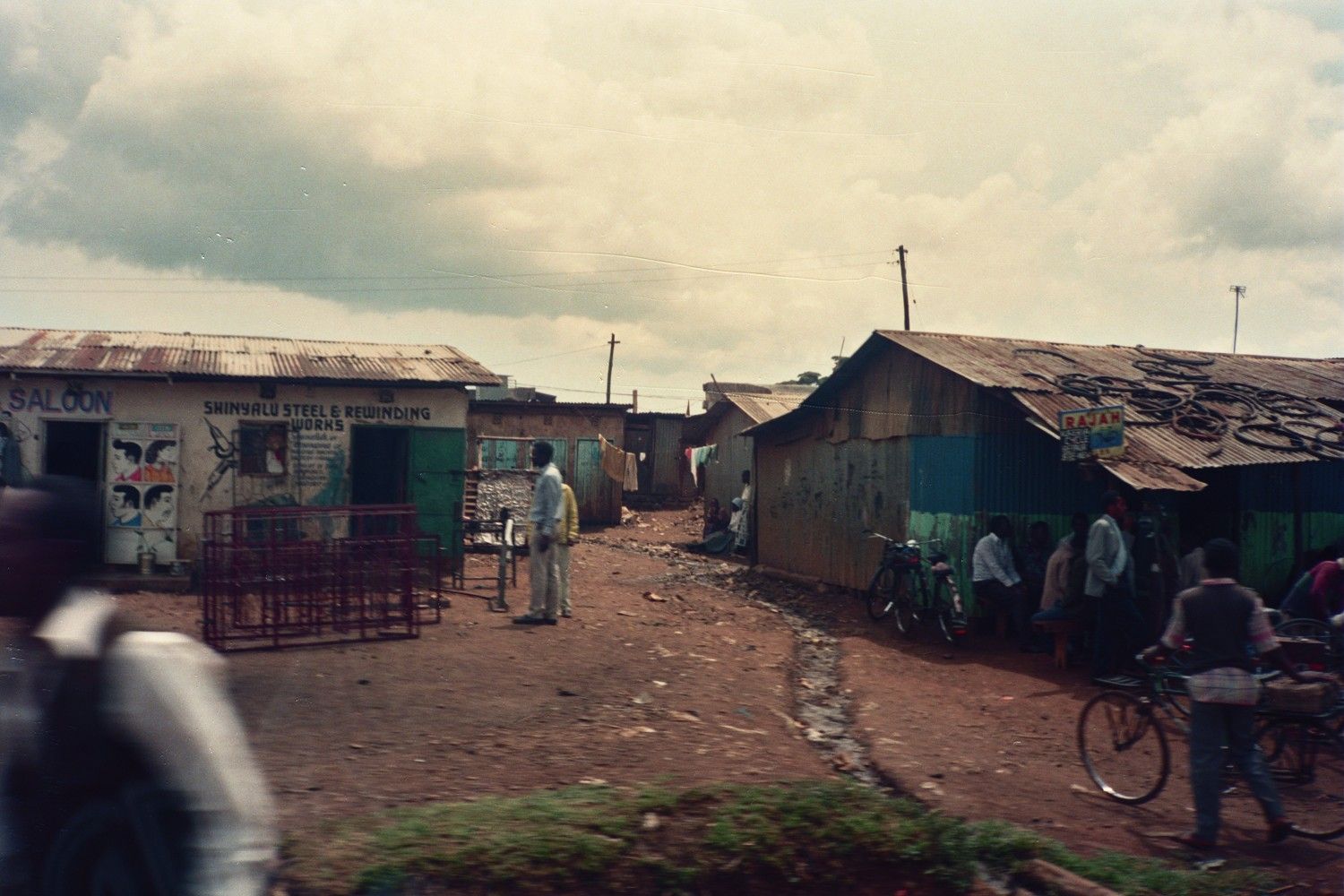
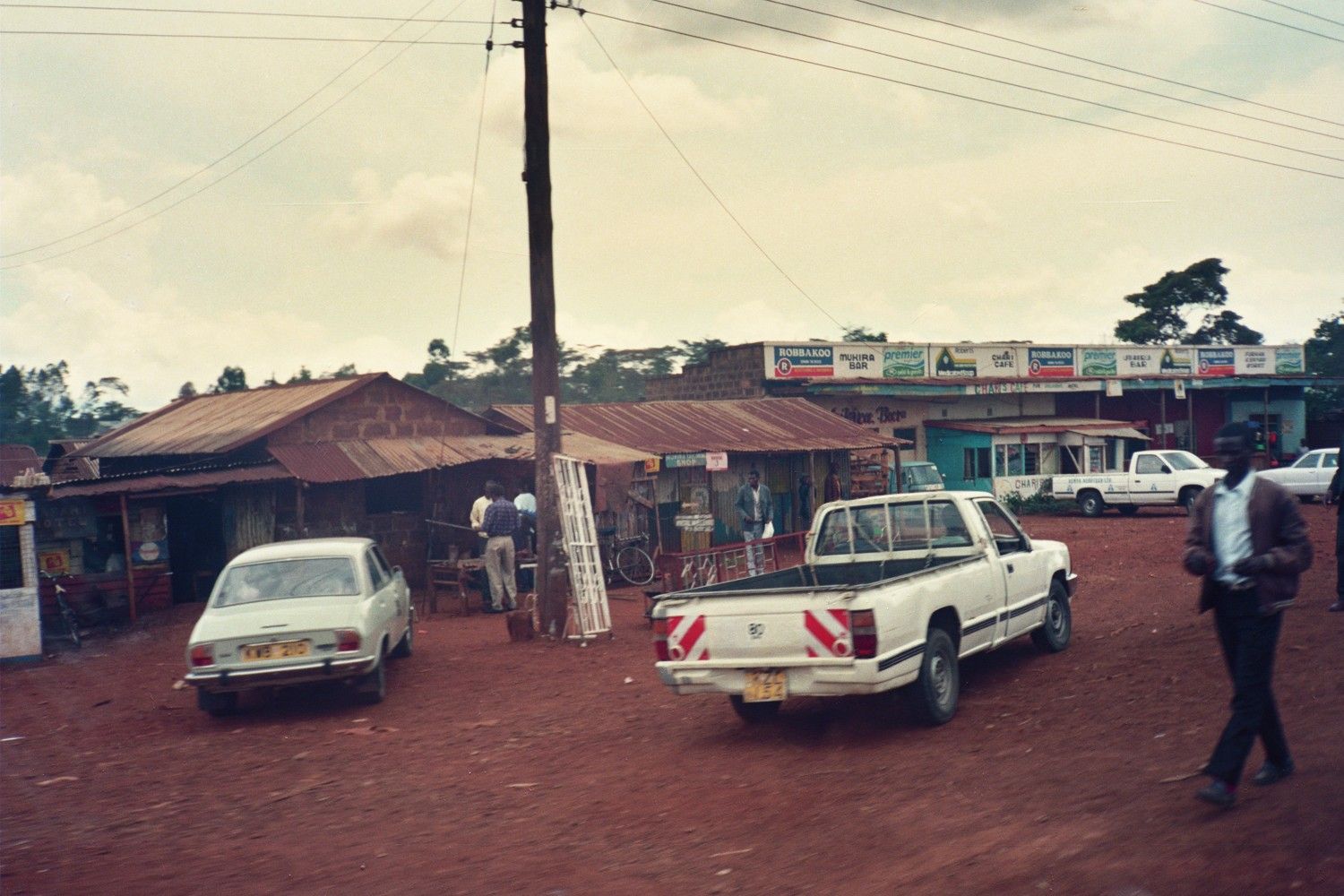
One of our directors flew in from Canada, so we all went on safari last week. We first landed in the Masaii Mara and within 15 minutes into our game drive we saw 13 lions trot by us. A mile away we stumbled on 6 female lions and probably 15 cubs. With the engine off we could hear the cubs growl amongst themselves as they fought for nipple space. We stayed that night at a camp called Sekinani, where large tents were built on stilts in the midst of lush green foliage near a river. Each tent actually had a huge bathtub, complete with brass fittings.
We had a directors meeting on the verandah of the dining tent. I was actually reviewing financial information from Excel spreadsheets using my handy HP12C calculator with three directors as the sun was setting behind us, changing the colors of nearby hills from bright gold to dark purple. The next day we drove to a magical tented camp we have in the forest of the Loita Hills. My tent was surrounded by bush and was almost completely hidden from 15 feet away.
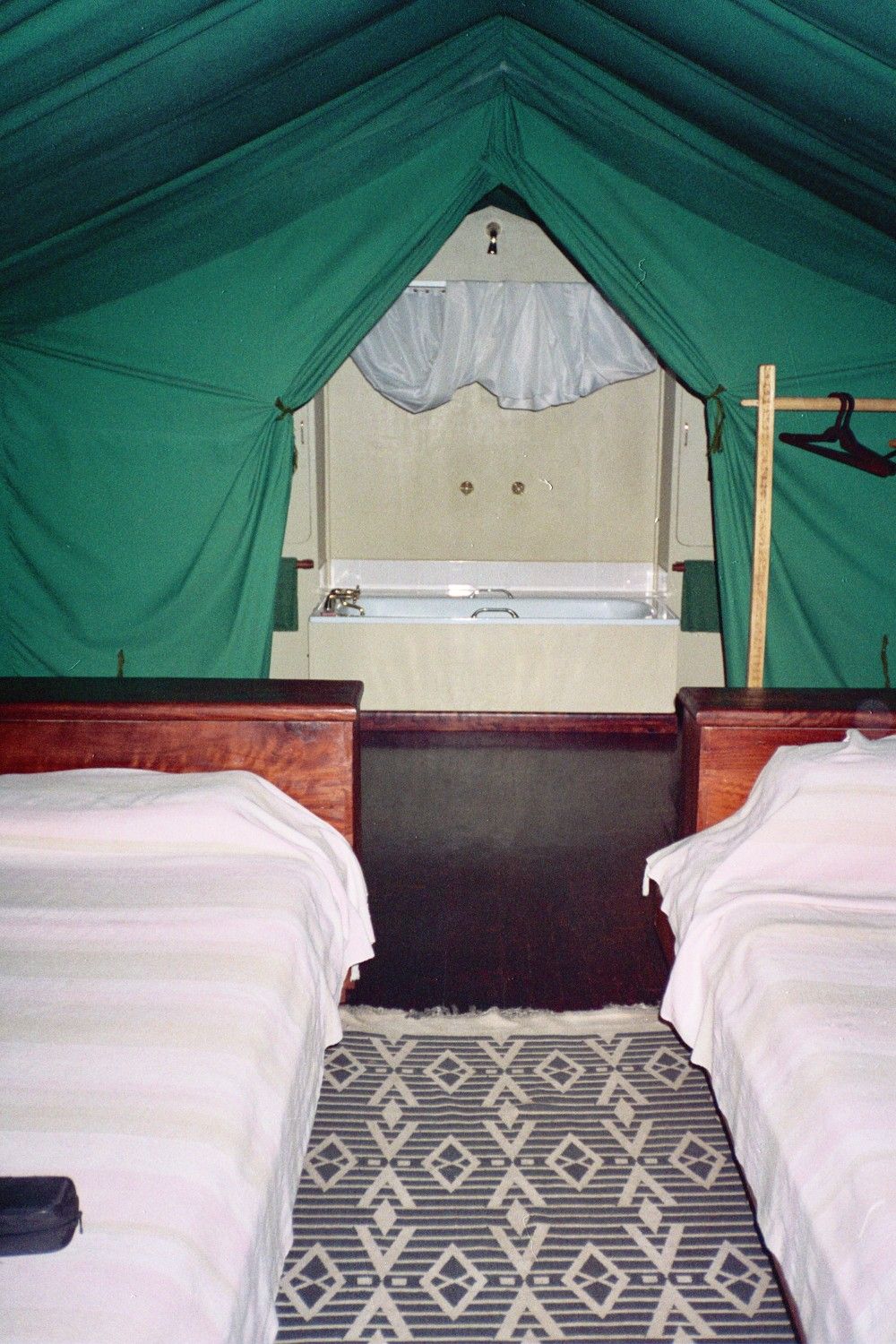
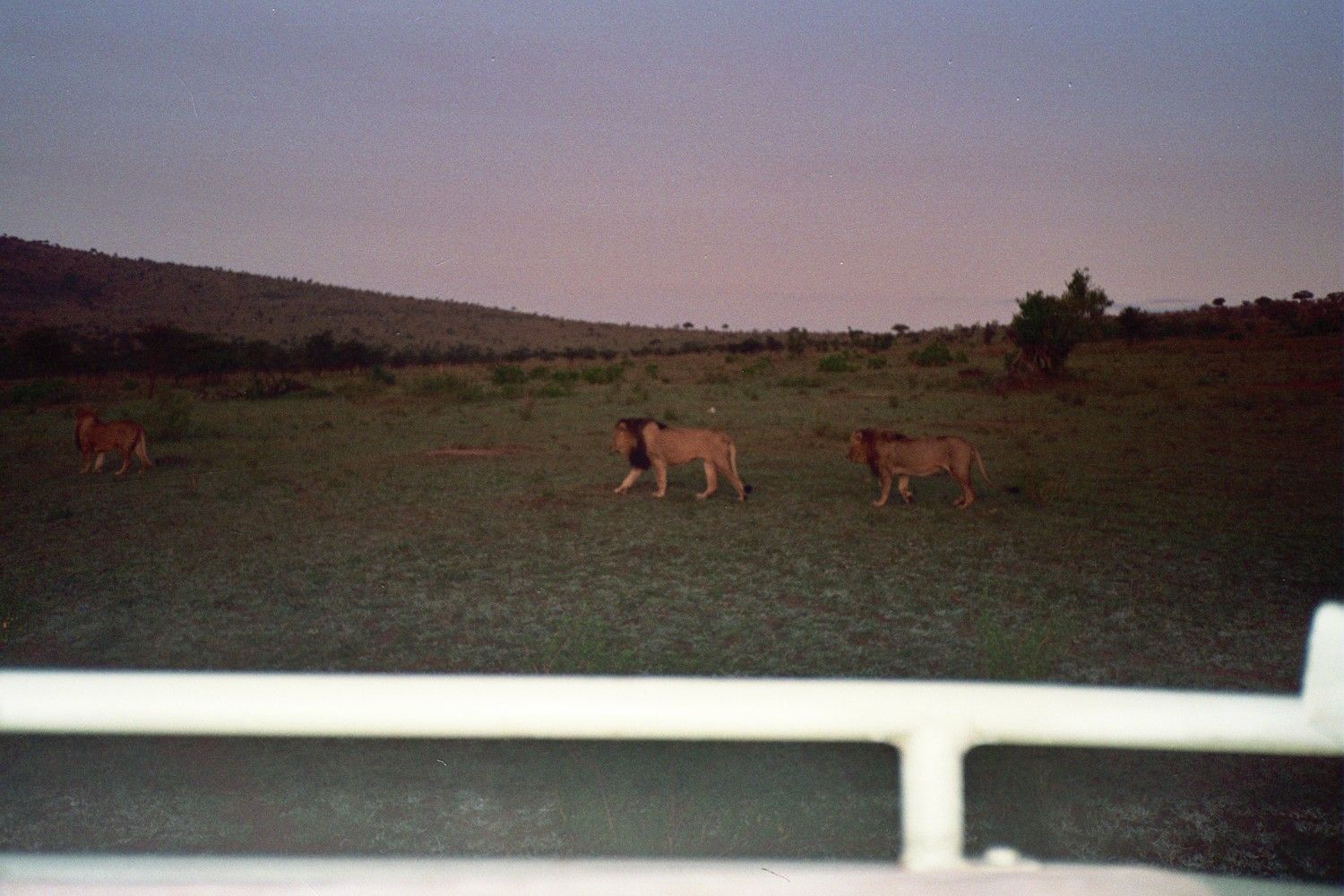
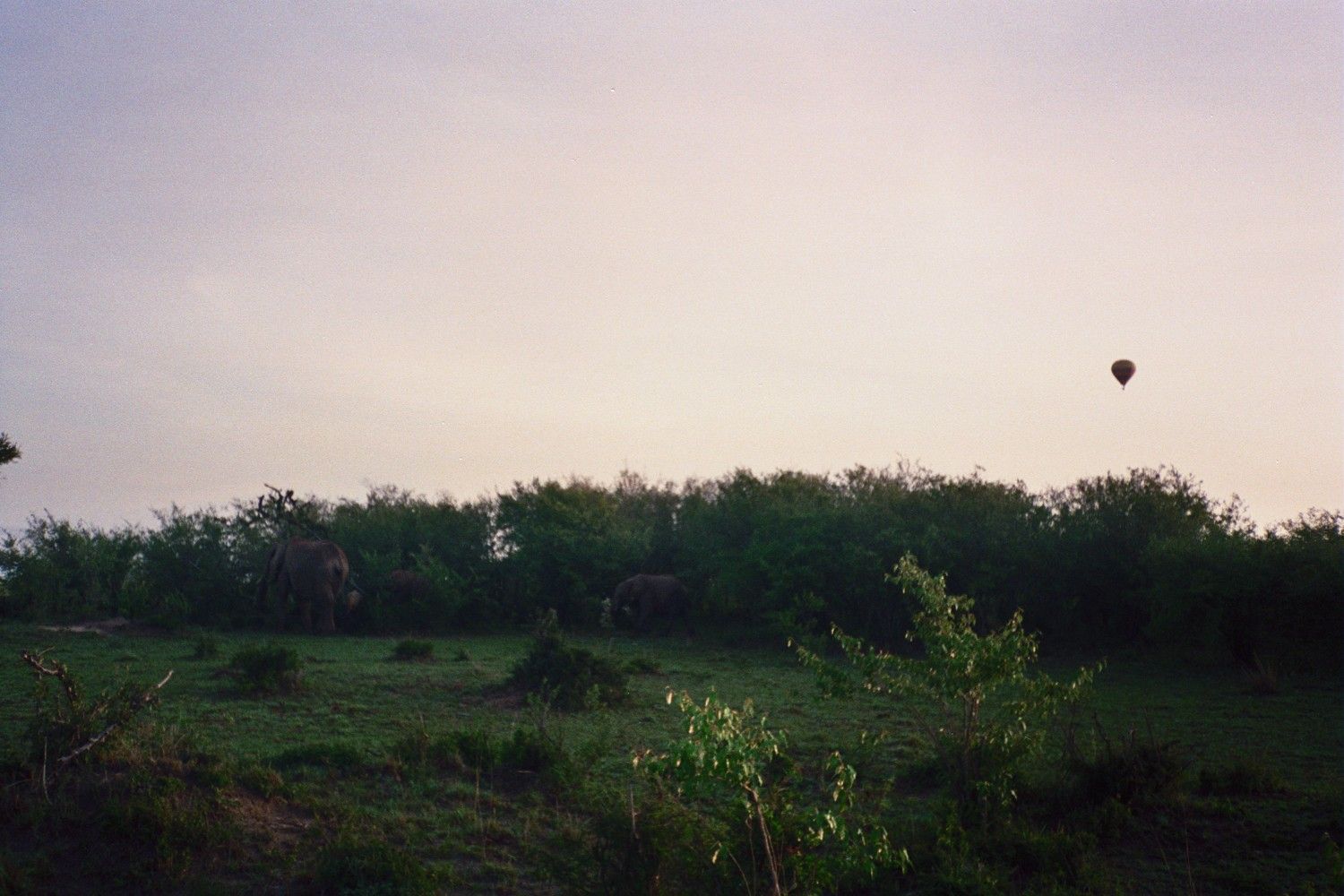
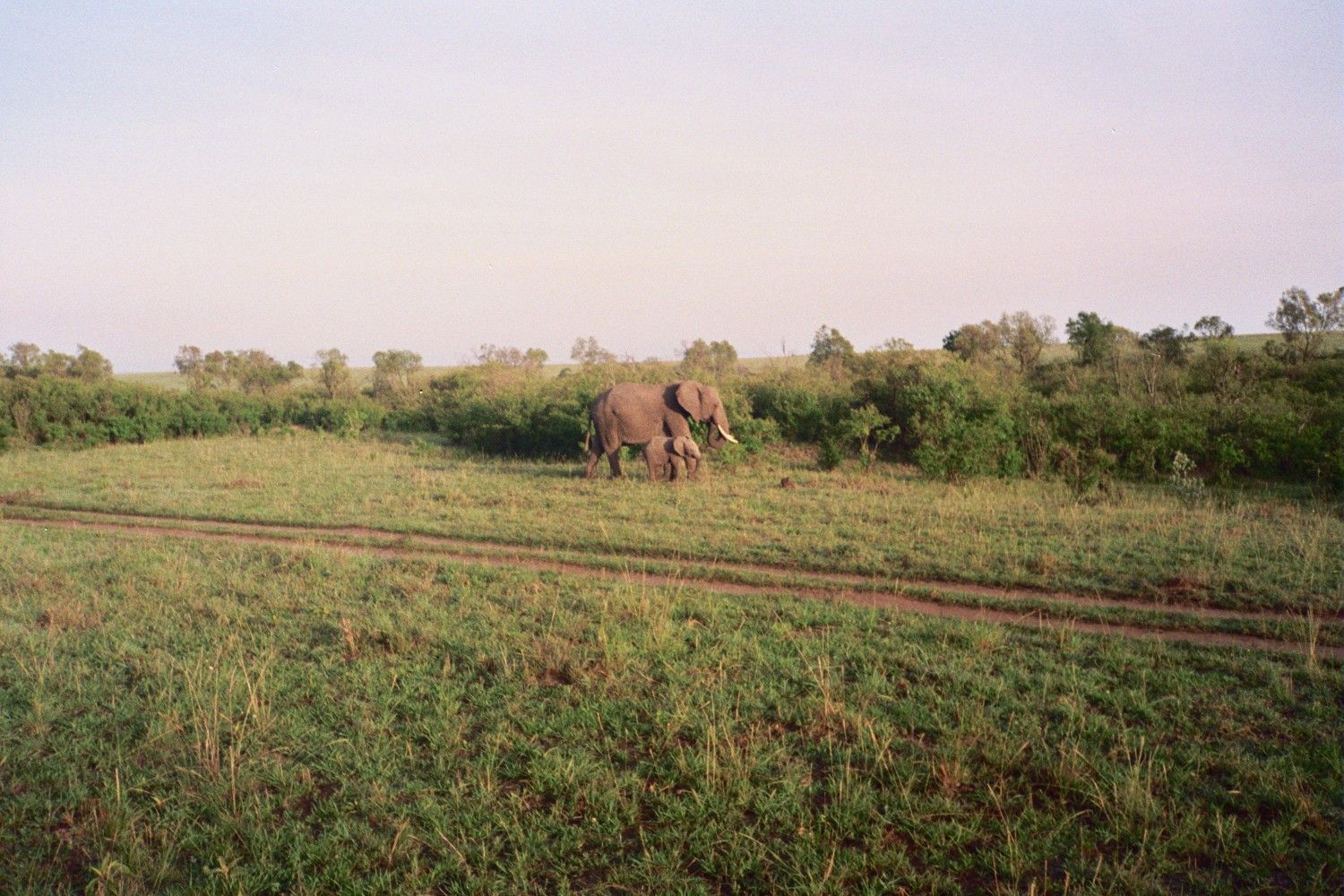
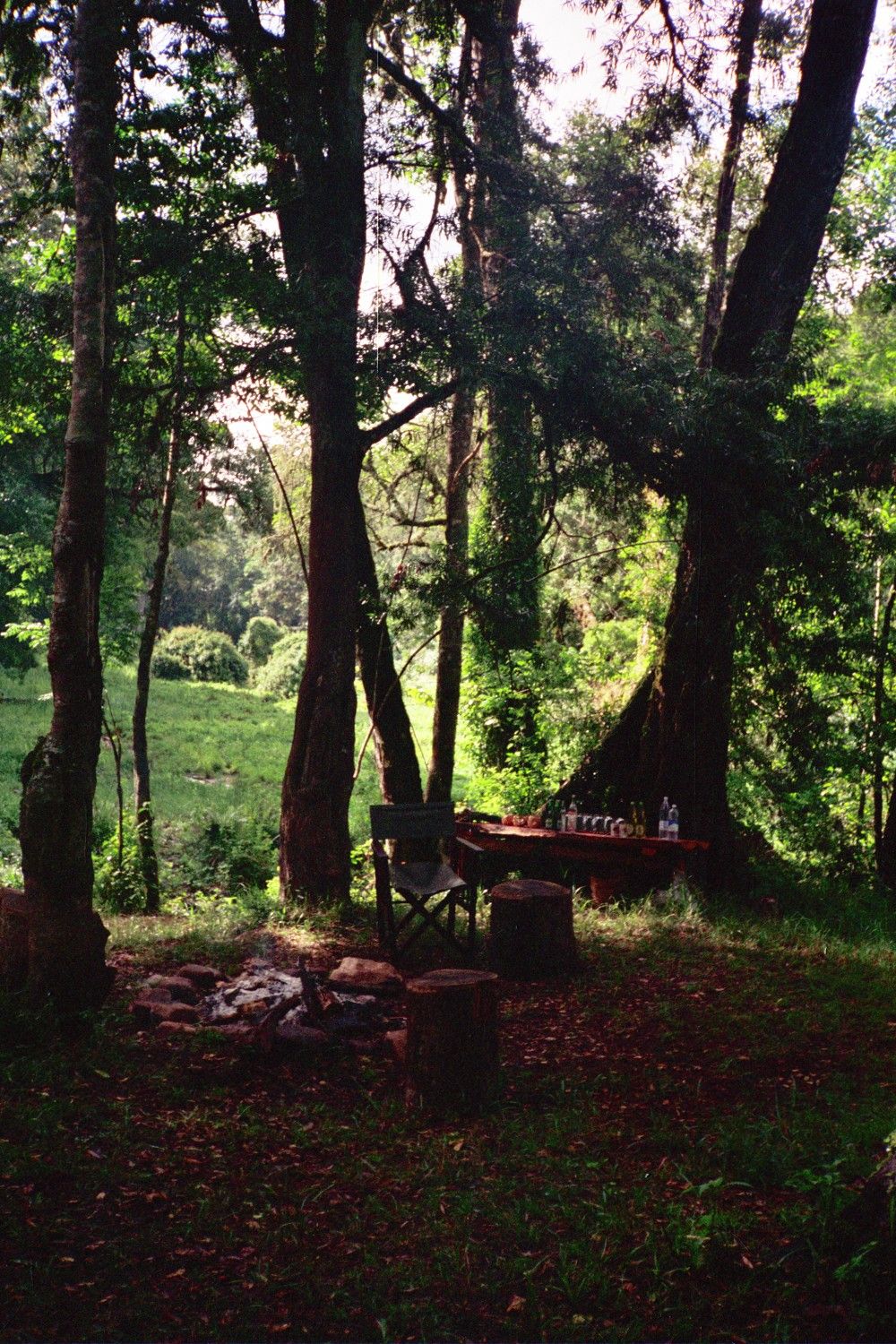
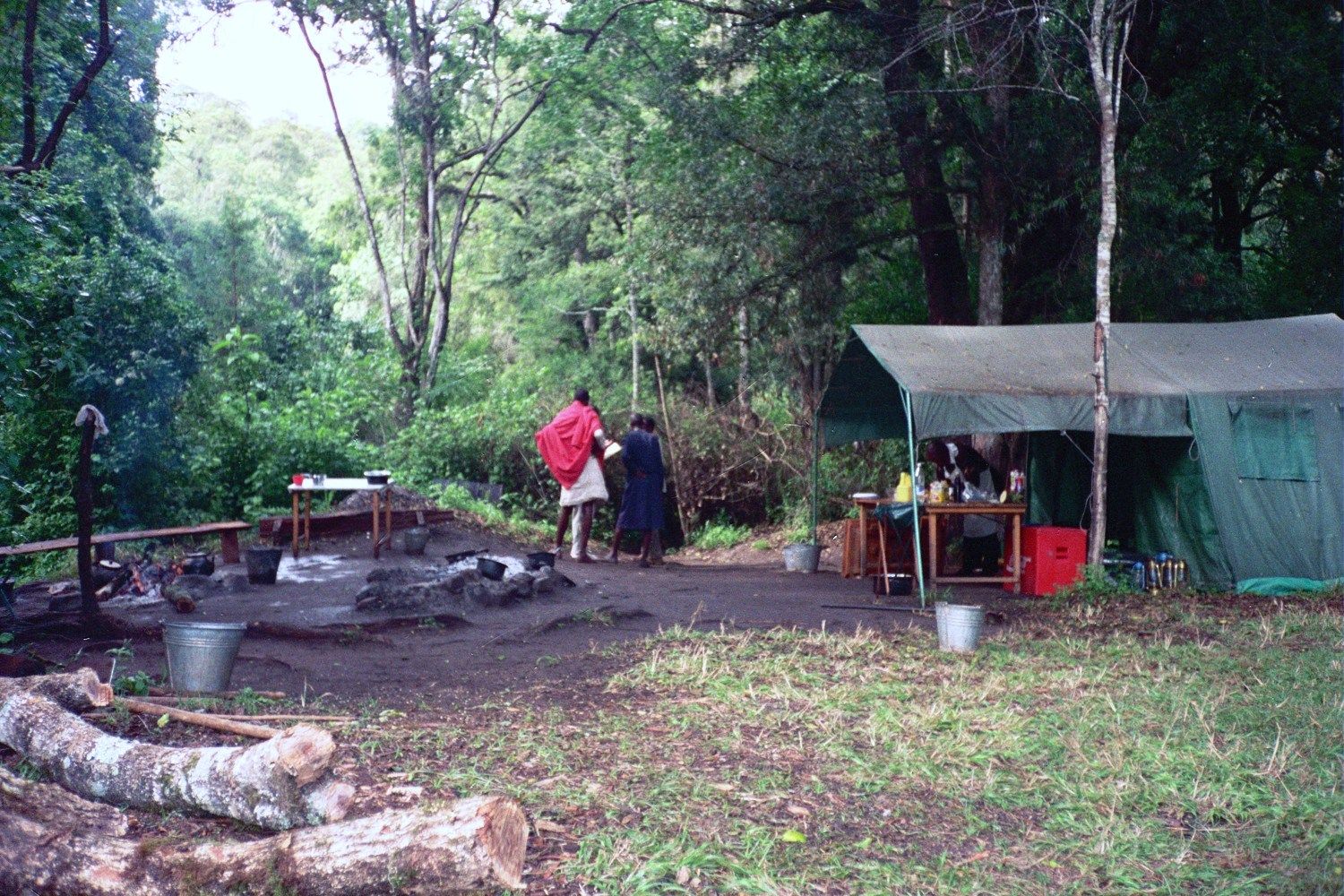
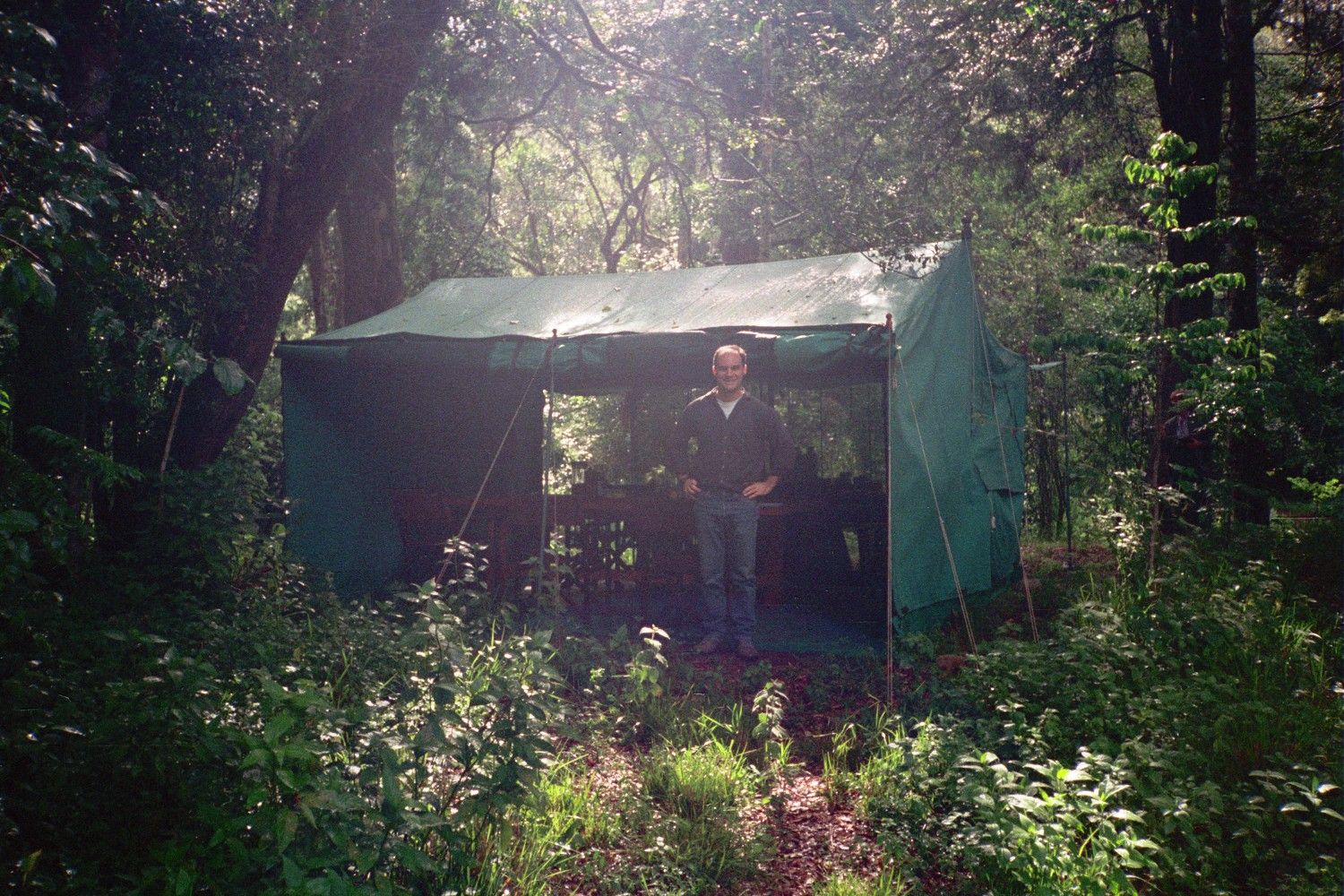
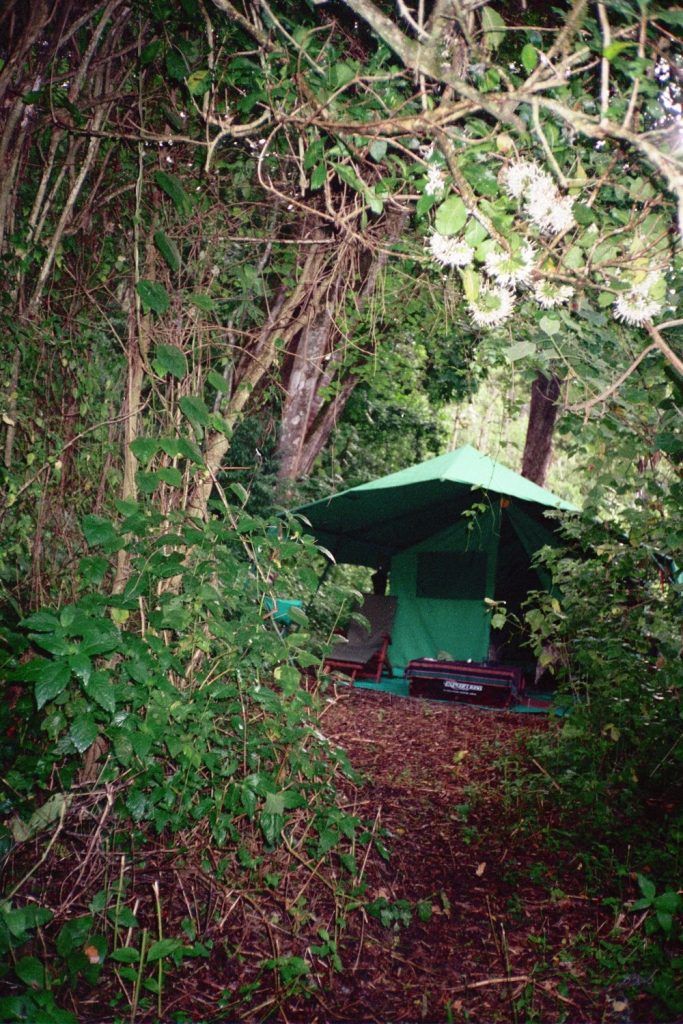
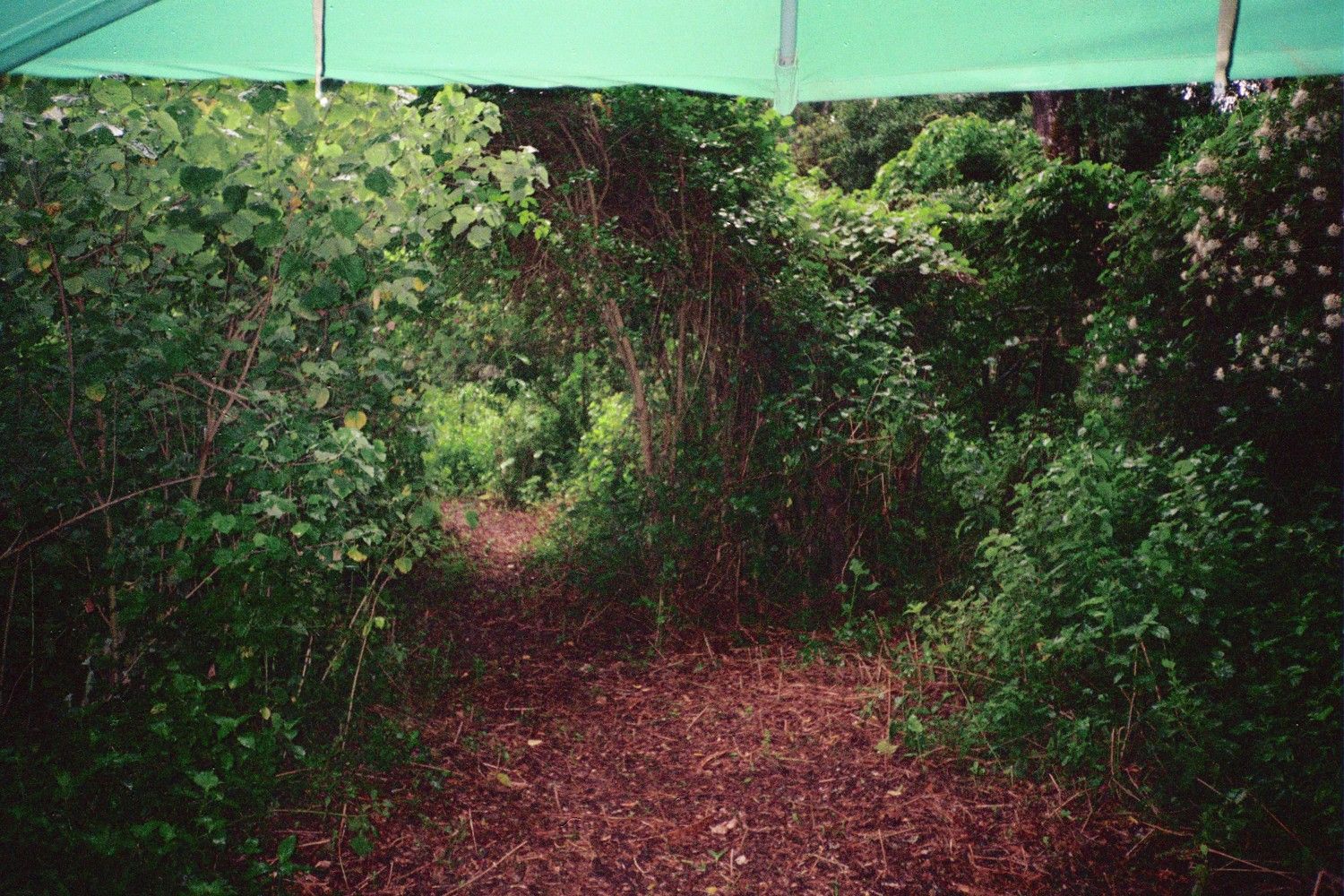
Two days later we found ourselves in Rumuruti, where we went on a three hour camel safari through barren savanna. Our camp there was near a pond, which was home to a large group of hippos. We woke up to sounds of the hippos laughing amongst themselves, as though some demented comedian made a surprise appearance in the bush. Our final night was spent in a lodge at the base of Mount Kenya. It faced a salt lick/water hole cleared out of the rain forest. From the bar, or from most rooms, you could see buffalo, elephant, various antelope and all sorts of birds as they came to drink the water or lick the salt.
They actually passed a sign up sheet around during dinner where you could request to be woken up if certain game (rhino, elephant, leopard, etc.) came to the water hole at night (it was lit with spotlights, which didn’t seem to bother the animals). The monkeys were particularly aggressive. They would crawl along the outside of the rooms and grab anything left unattended.
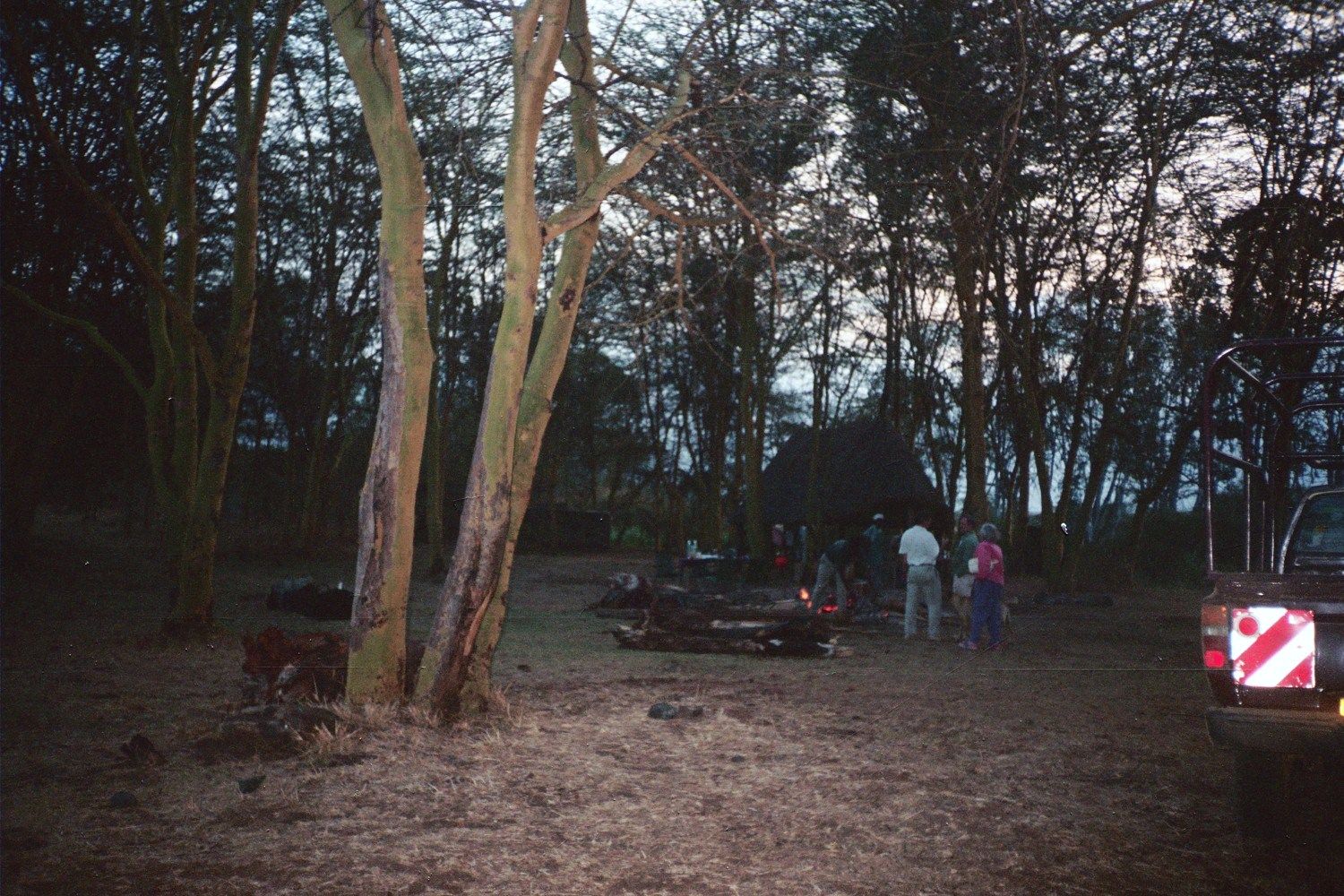
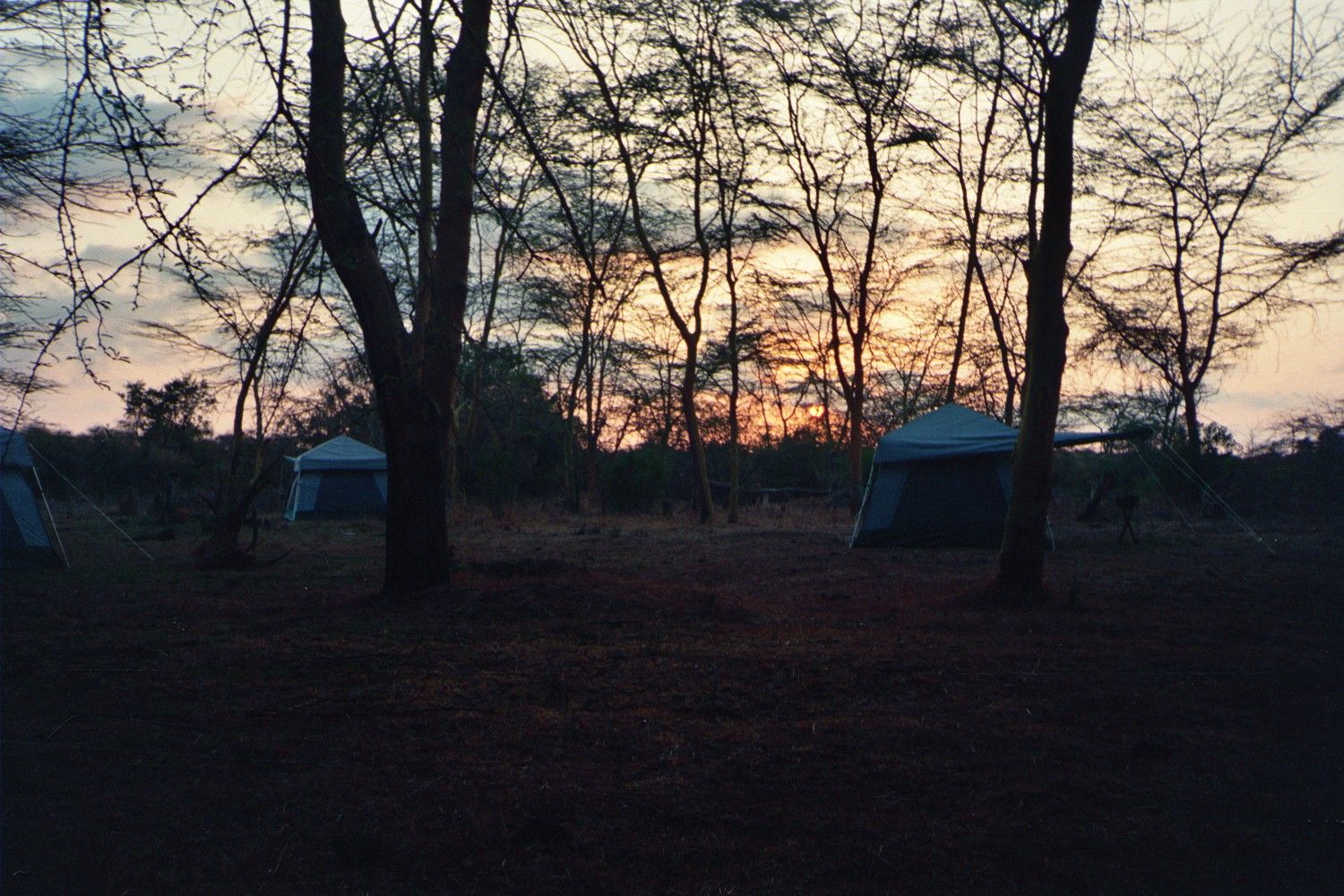
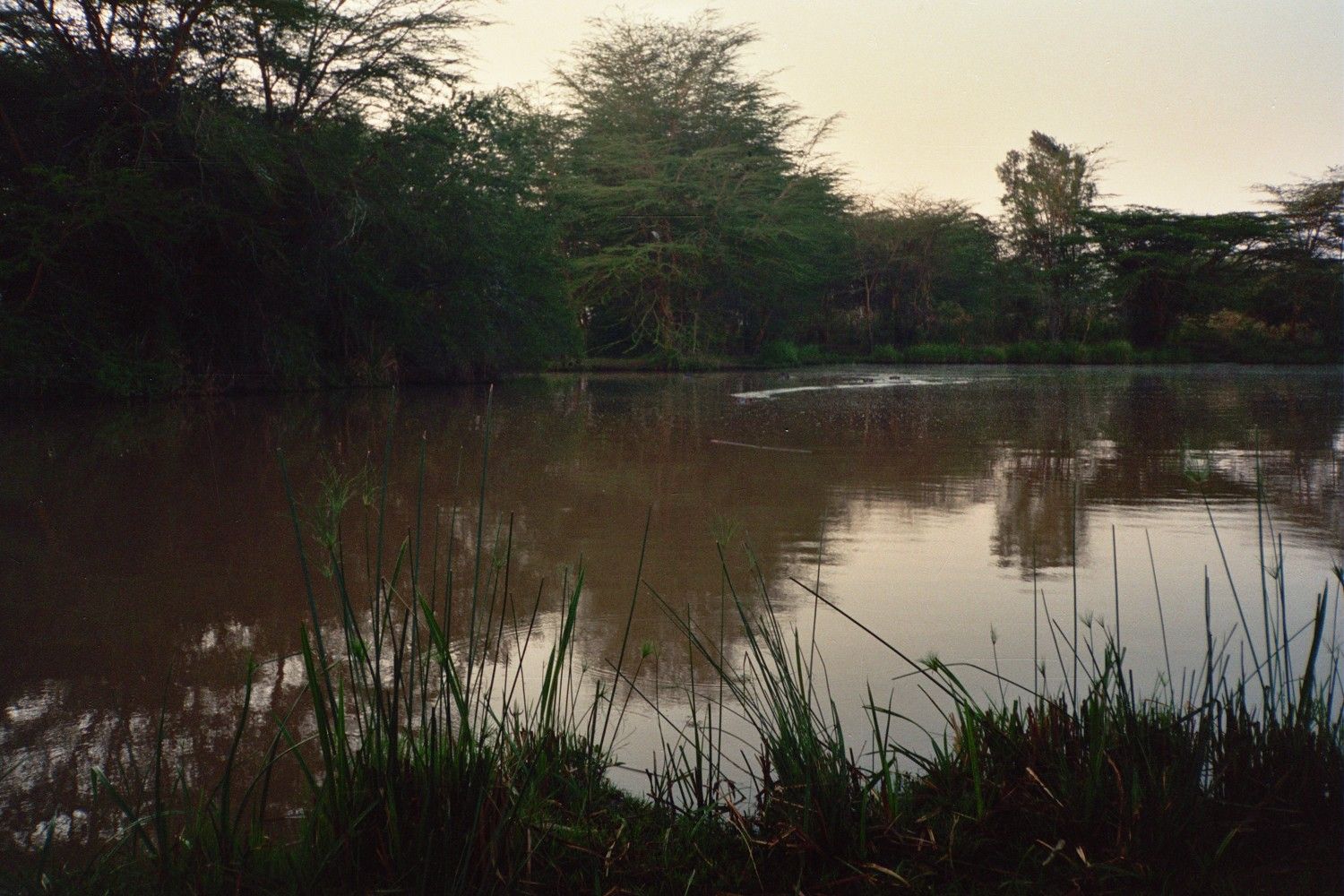
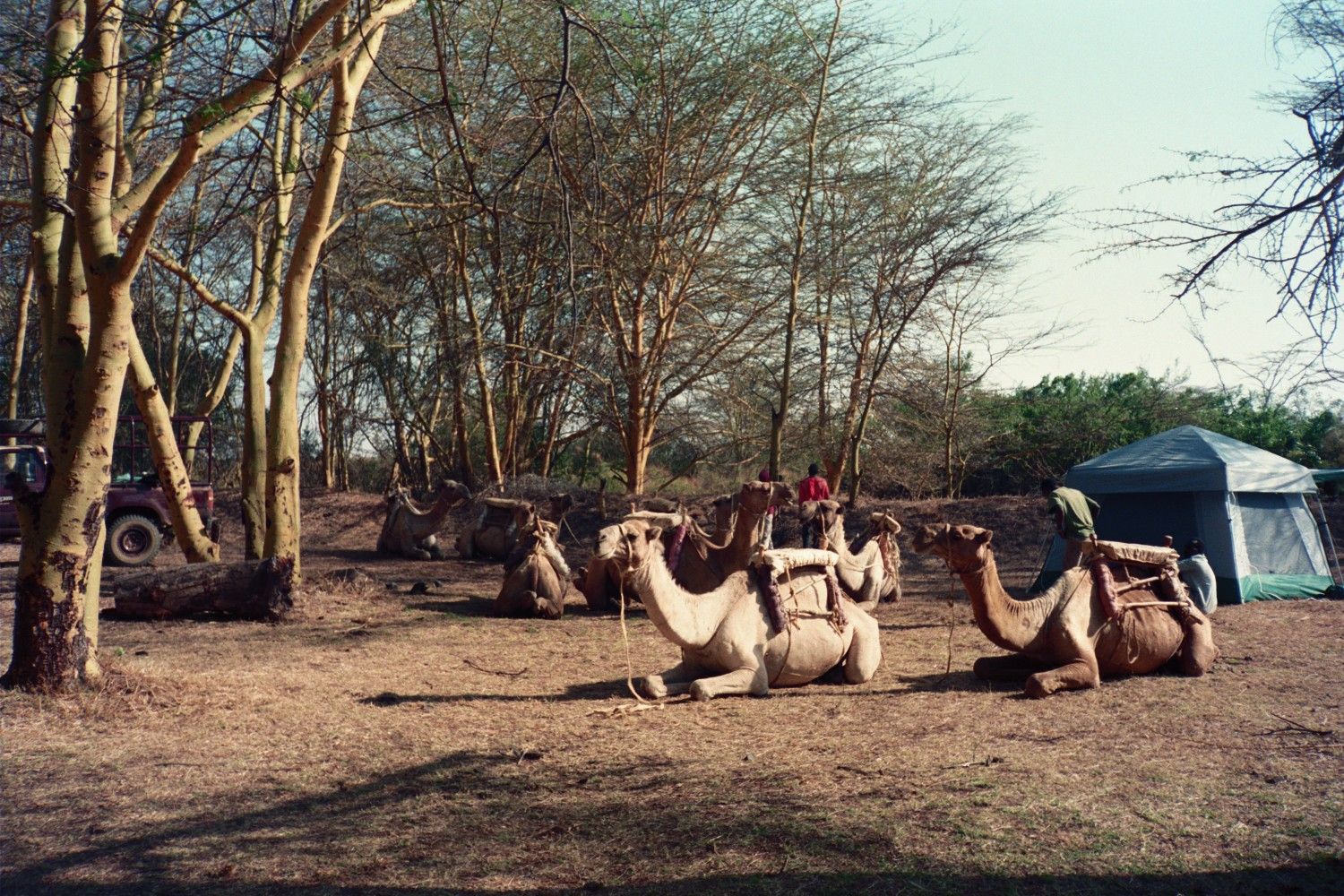
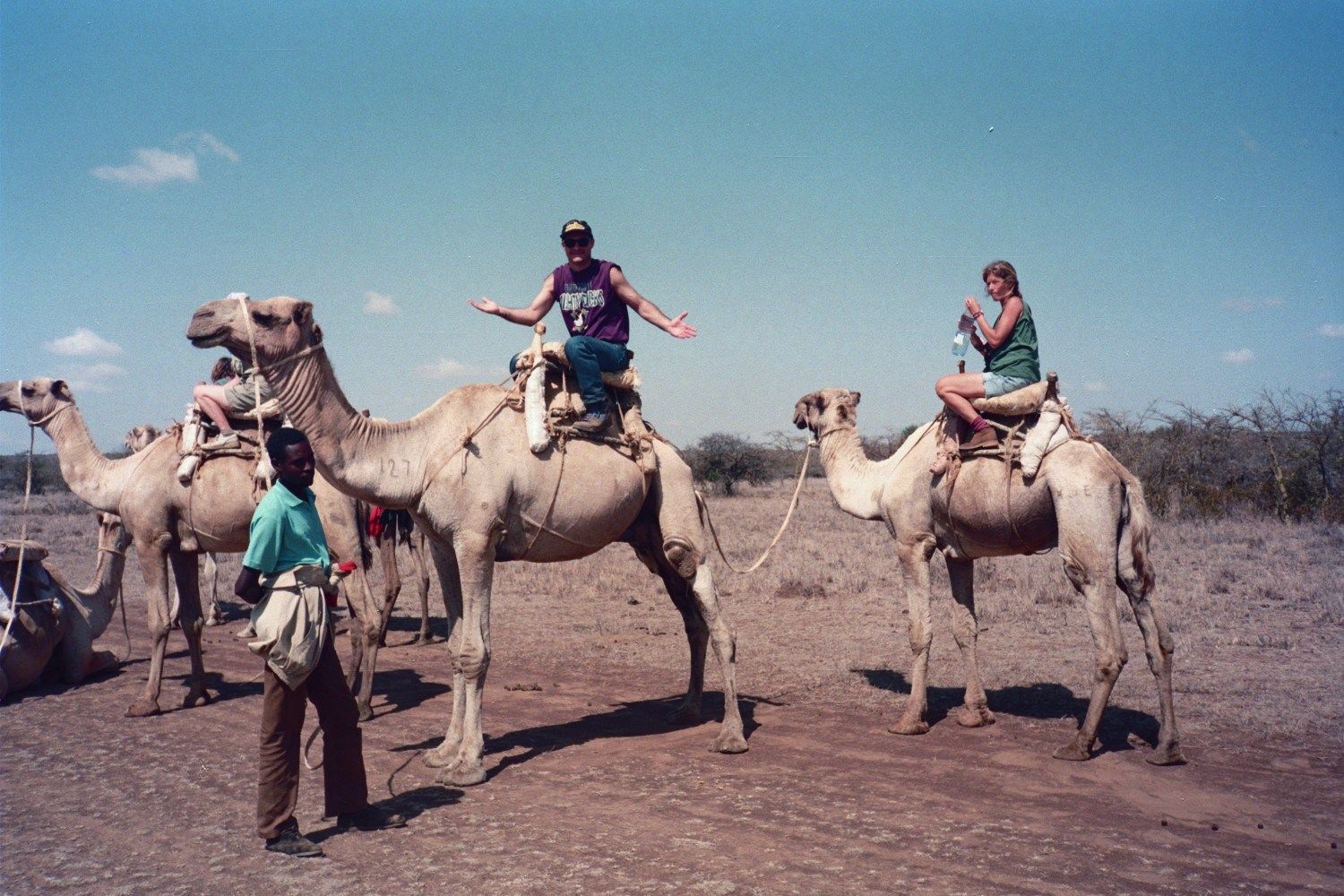
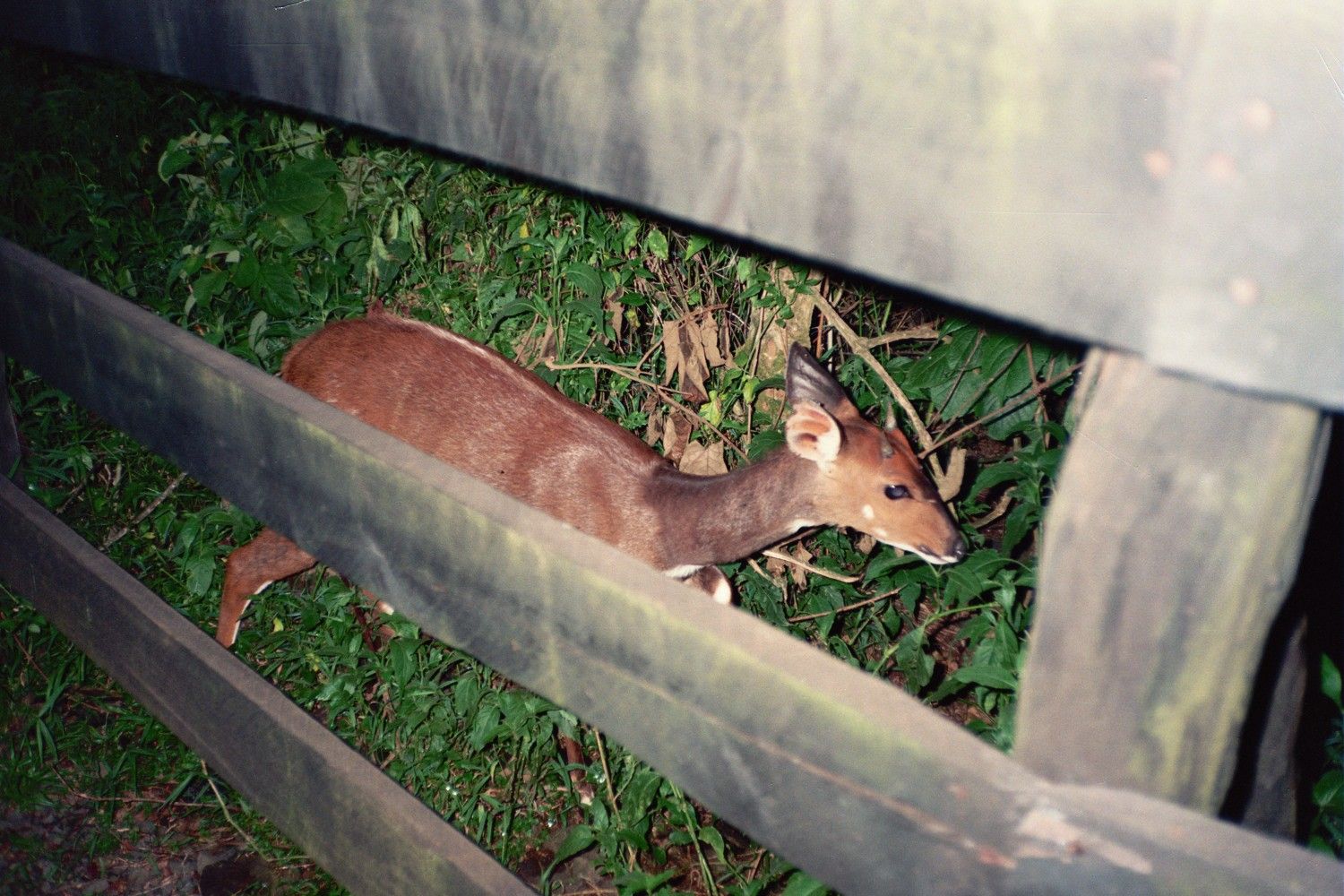
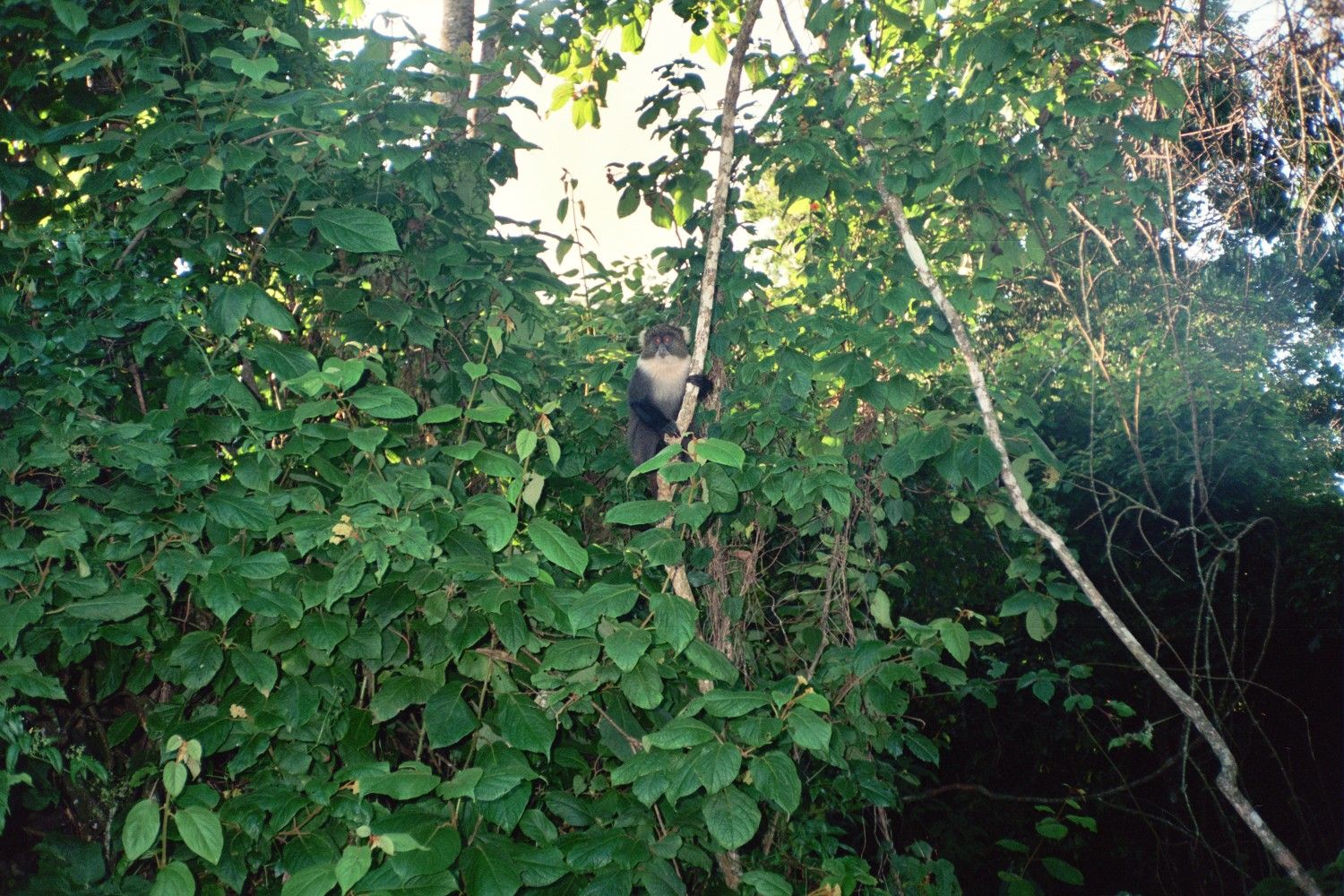
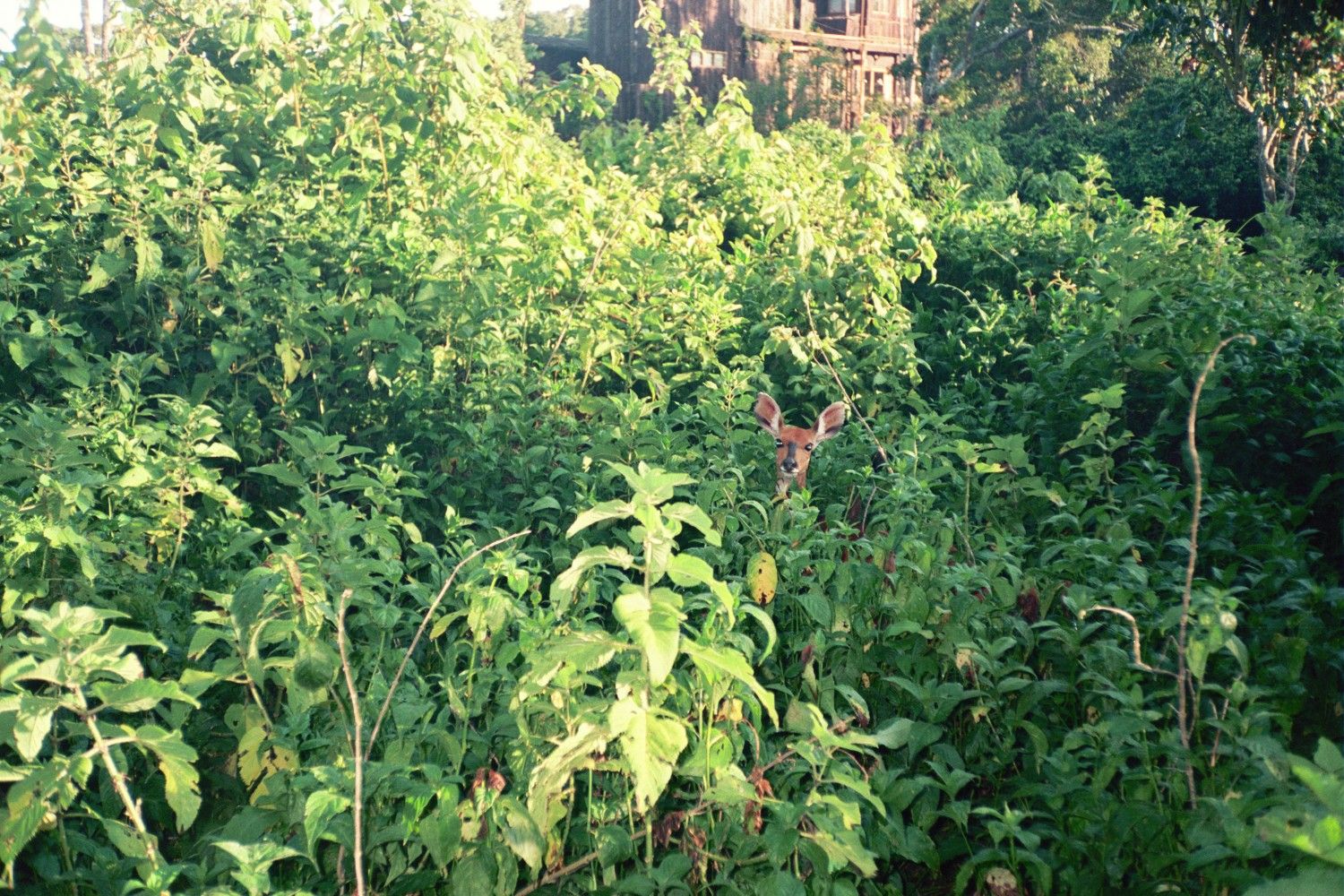
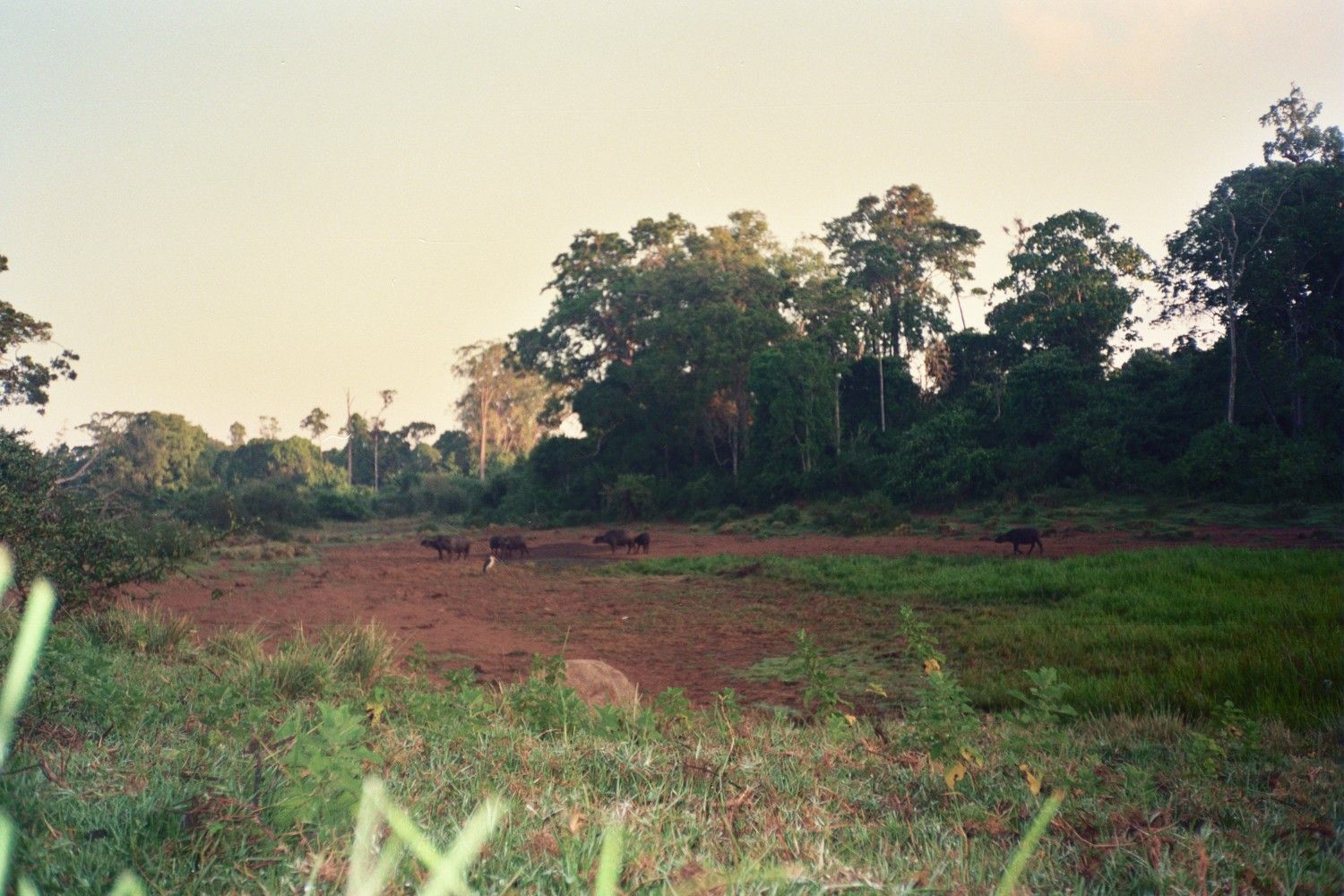

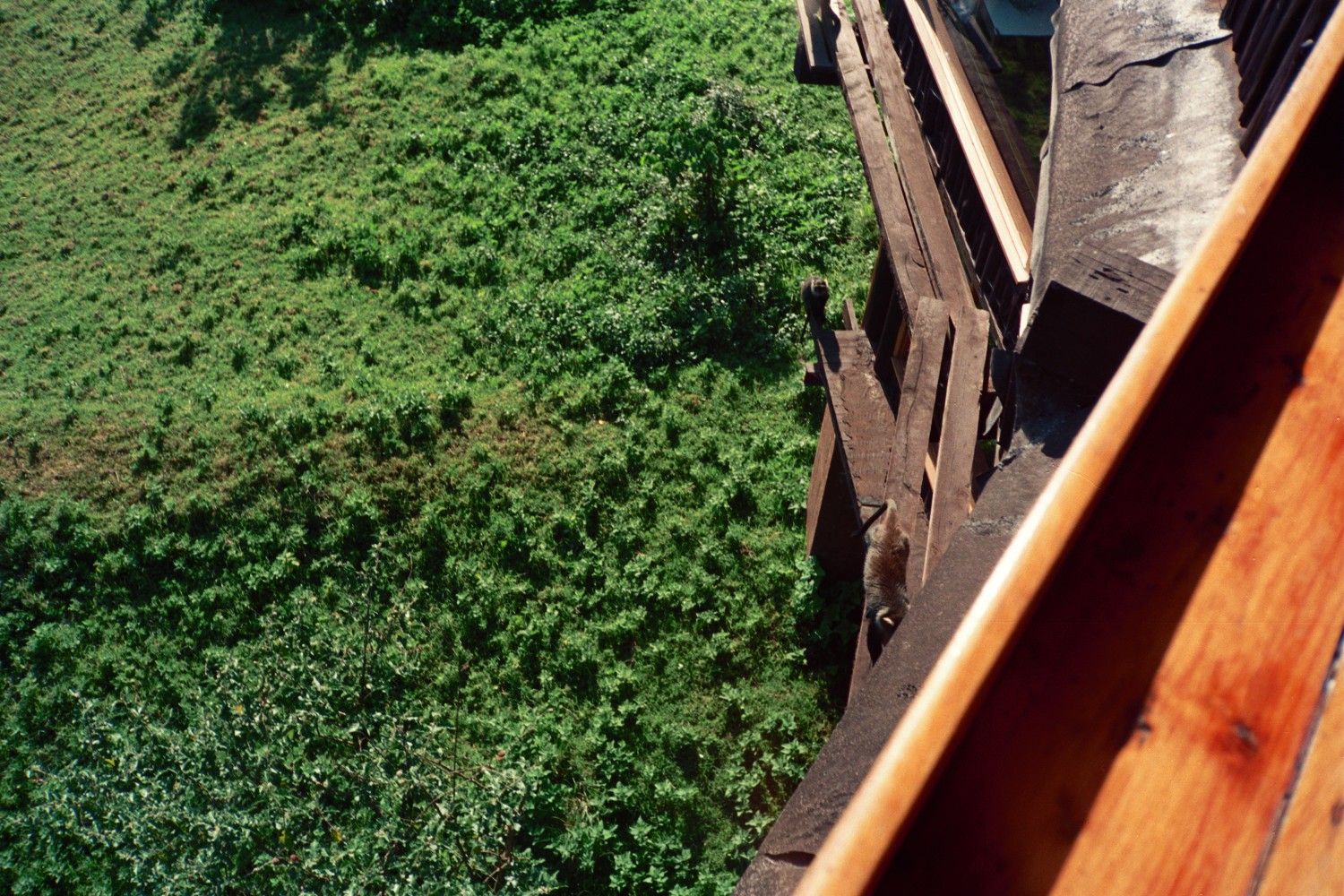
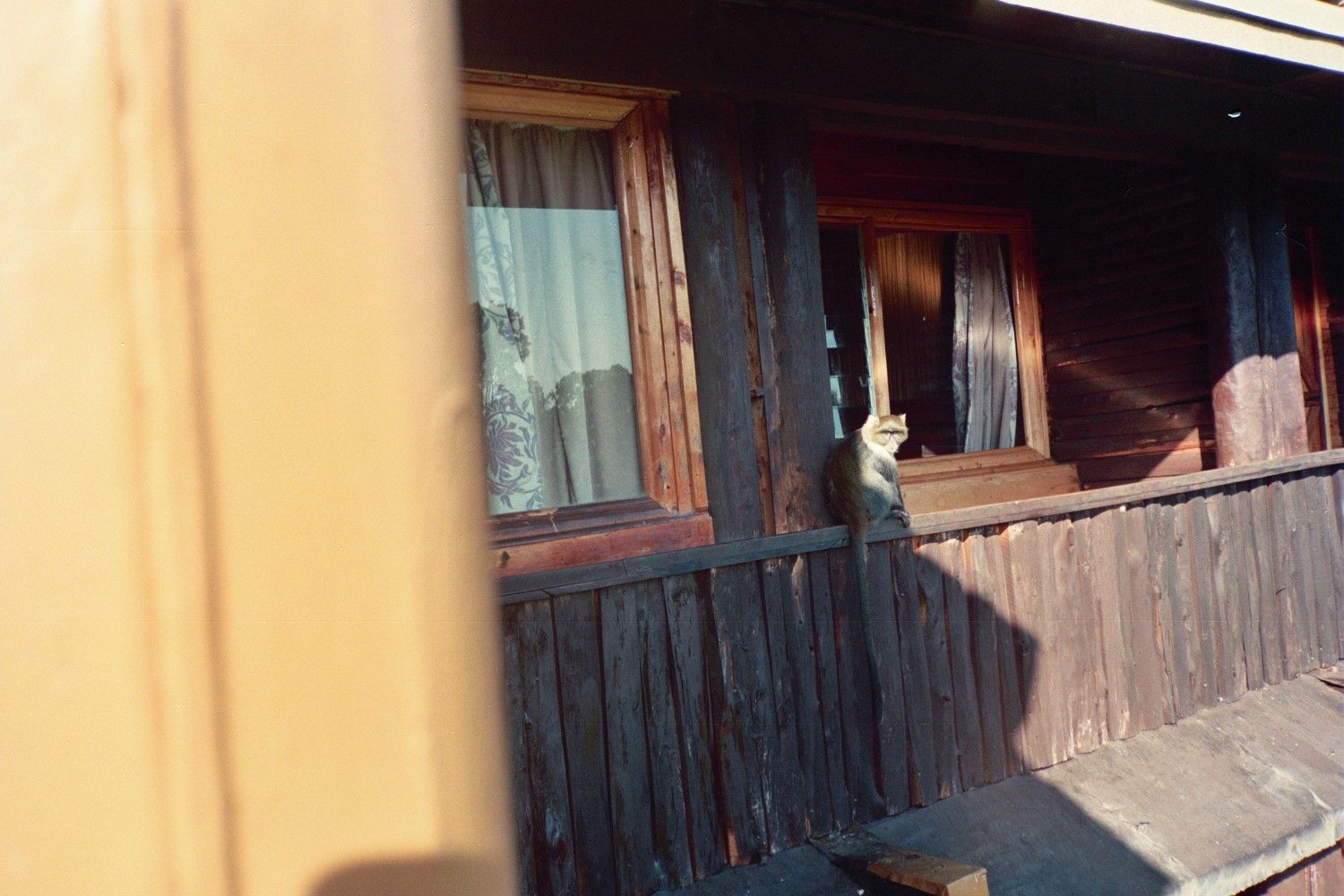
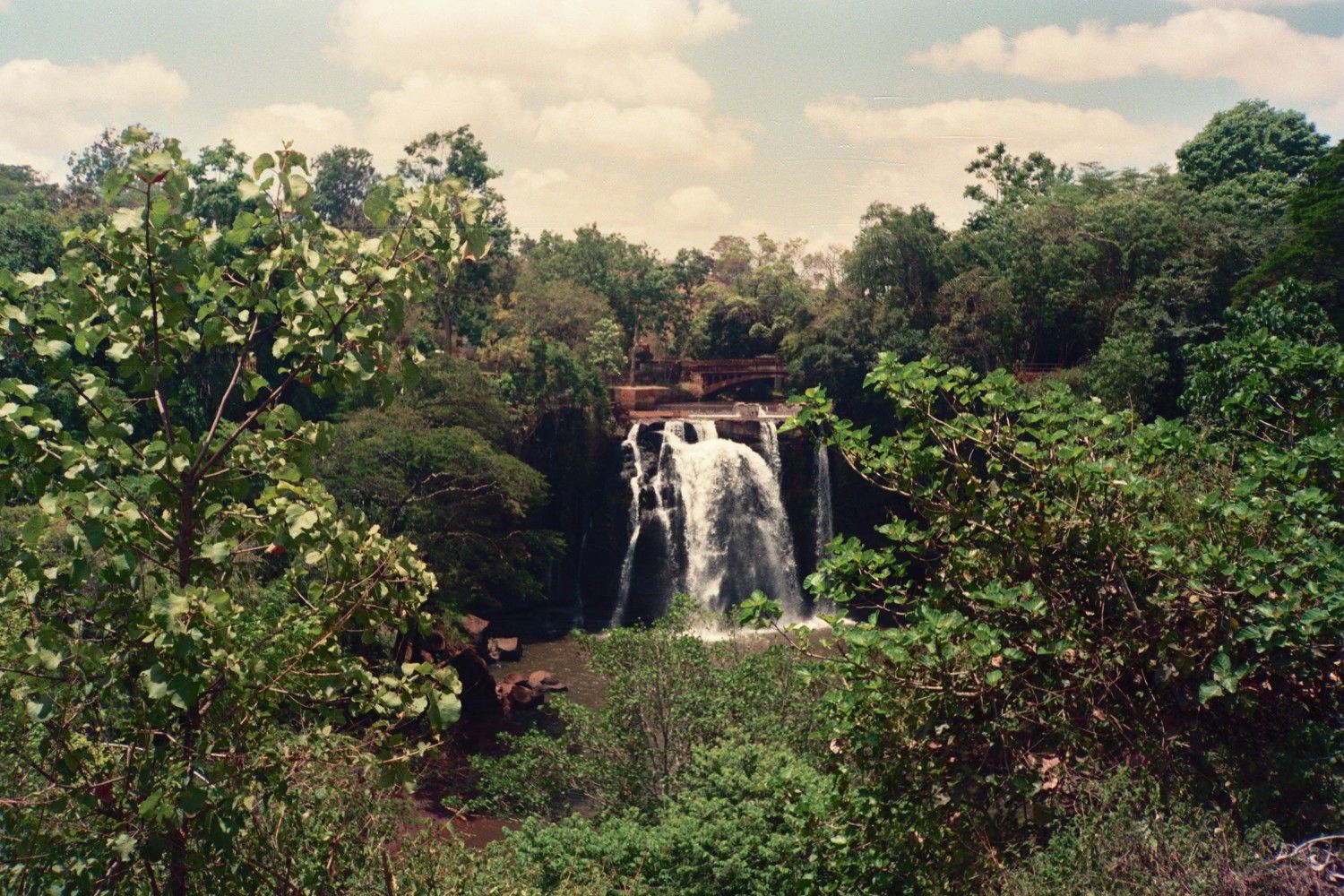
I will definitely miss the people and the beauty of this country, but I doubt I’ll miss the work. It has been an amazing, if not always a pleasant, experience. It will be interesting to see how I feel about it 6 months, or a year from now.
